The best camera for beginners: your photography journey starts here
Forget your smartphone – my guide to the best beginner cameras
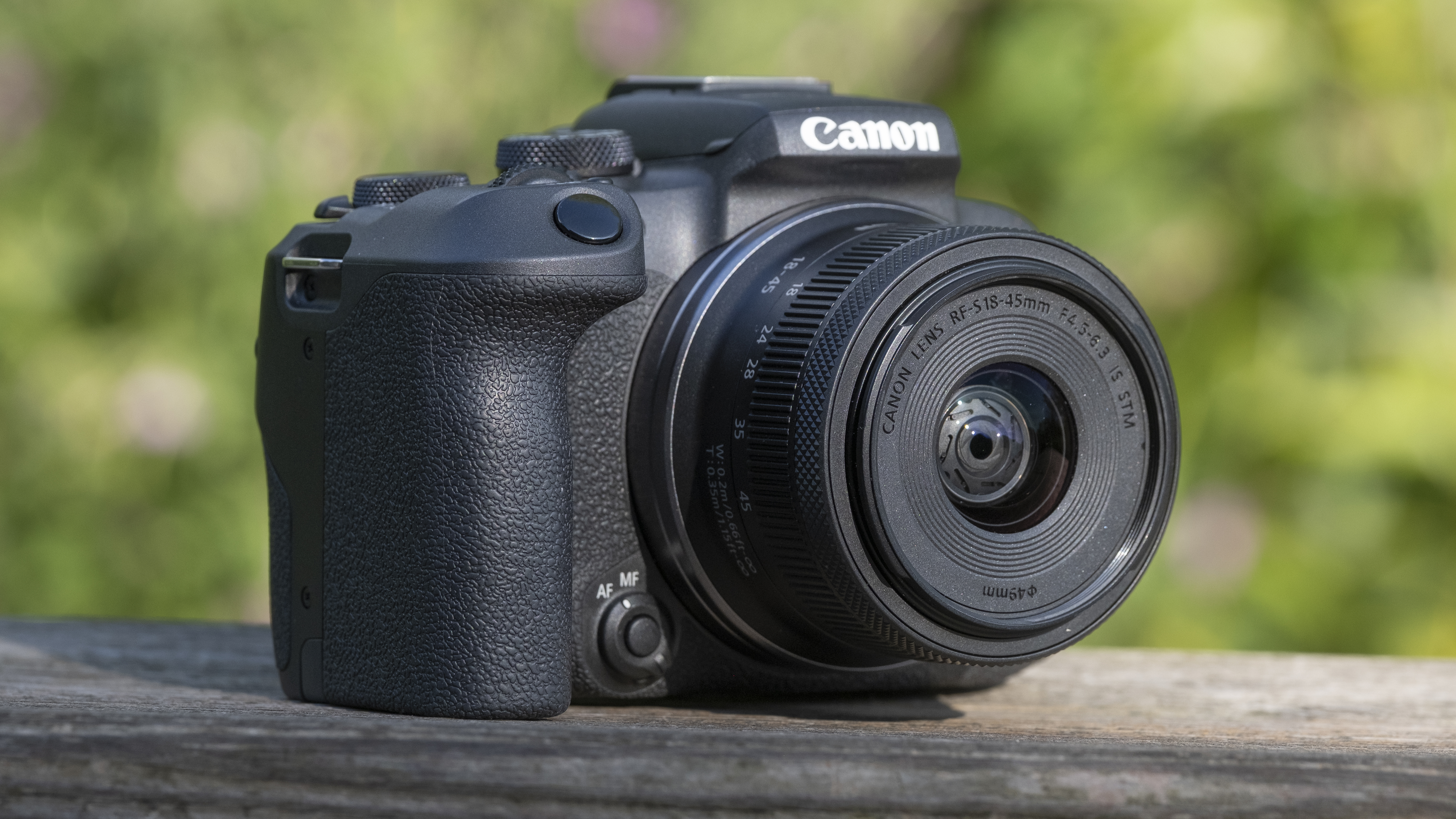
Are beginner cameras still relevant today, considering just how powerful smartphone cameras are? I believe the answer remains a resounding yes! I've poured 15 years of hands-on experience with the best beginner cameras into this guide, and each handpicked model offers novices something unique. They're easy to get to grips with, and offer the tools to build your confidence as a photographer, with room to grow.
One camera I consistently recommend for beginners is the Canon EOS R10. There much to like, from its accessible handling to reliable autofocus and decent image quality. It offers the right amount of control for learning the ropes, without overwhelming first-time users. It’s also relatively compact for a camera with interchangeable lenses. If it's beyond your budget, then the EOS R100 offers a watered-down user experience – you won't find a cheaper mirrorless camera elsewhere.
Whether you’re stepping up from a smartphone or starting your photography journey from scratch, all of the cameras below are beginner- and budget-friendly. Each one has gone through extensive real-world testing by me or one of our experienced reviewers, so you know that these recommendations can be trusted.

I'm TechRadar's Cameras Editor and started my own photography journey as a student some 25 years ago (and counting). Since then, I've turned professional, working as a photographer and journalist for more than 15 years. I've reviewed countless cameras of all kinds from all of the leading camera makers. Beginner cameras come all kinds of shapes and sizes and there's no one size fits all. So I've covered all bases in this guide, from smartphone-beating compacts to mirrorless models and DSLRs. Each option offers something unique and can set you on the right path to learn and to grow your skills.
Why you can trust my judgement
Every beginner camera in this guide has been extensively tested, either by me or one of my team. Between us, we have reviewed 100s of cameras since TechRadar launched in 2008, covering everything from simple point-and-shoots to advanced mirrorless hybrids.
☑️ 100s of cameras reviewed
☑️ 15 years of product testing
☑️ Over 16,000 products reviewed in total
☑️ Nearly 200,000 hours testing tech
When I test cameras for beginners, I focus on the features that matter most to new photographers and budding filmmakers. That includes how easy a camera is to use straight out of the box, how intuitive the user interface is, how the controls feel and how much creative flexibility it offers as your skills improve. I also consider build quality, battery life and image quality, as well as overall value for money.
⭣ Read more
These days, real-world tests are the most revealing way to understand a camera's performance and character, so I focus heavily on those, along with standardized tests for factors like start-up speed, battery life, burst shooting (using a formatted memory card and shooting in both JPEG and raw, if available, with regular camera settings dialled in and stopwatch at the ready), autofocus skills, metering accuracy, ISO performance, color profiles, and more. For video, I shoot with the various frame rates and resolutions on offer for each model.
I take everything I've learned about the camera and factor in its price to get a sense of the value-for-money it offers, before reaching a final verdict. I also compare each camera against similarly priced rivals to help you find the best option for your experience level and budget, ensuring each model has the capacity to grow with you. Whether you’re just starting out or getting more serious about photography, every camera in this guide has earned its spot through genuine field use, so you can buy with confidence.
Meet the team
My reviews team has amassed many years of camera experience and testing, covering all of the latest and greatest cameras in the last 20 years. We all come from humble beginnings and have developed our skills, and can all appreciate the benefits of a dedicated camera like a digital compact versus simply using a smartphone.
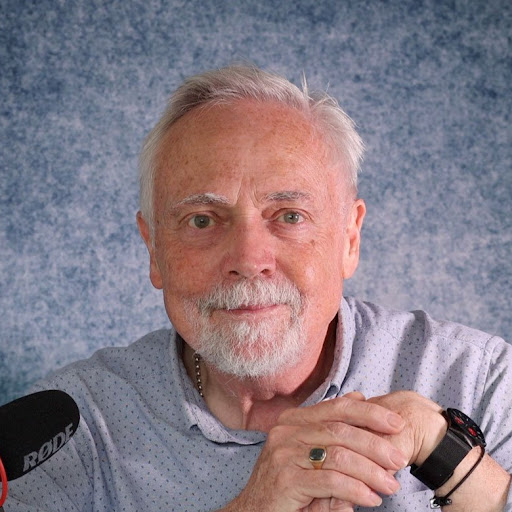
Rod is an independent photographer and photography journalist with more than 30 years' experience. He's previously worked as Head of Testing for Future’s photography magazines, including Digital Camera, N-Photo, PhotoPlus, Professional Photography, Photography Week and Practical Photoshop, and as Reviews Editor on Digital Camera World.

Jon Devo is a seasoned professional with 20 years of experience in photography and videography. After studying Journalism and Psychology at City University London in 2009, he transitioned into presenting and journalism. Jon is the founder of Devoted Creatives, a photo and video studio based in West London.

Mark is TechRadar's Senior news editor and has been a technology journalist since 2004. Formerly Trusted Reviews and TechRadar's cameras editor, Mark has tested cameras over many years from all of the leading brands.

James Abbott is a professional photographer and freelance photography journalist. He contributes articles about photography, cameras and drones to a wide range of magazines and websites where he applies a wealth of experience to testing the latest photographic tech.
The best beginner cameras
Why you can trust TechRadar
Below you'll find full write-ups for each of the best beginner cameras in my list. We've tested each one extensively, so you can be sure that our recommendations can be trusted.
The best beginner camera overall
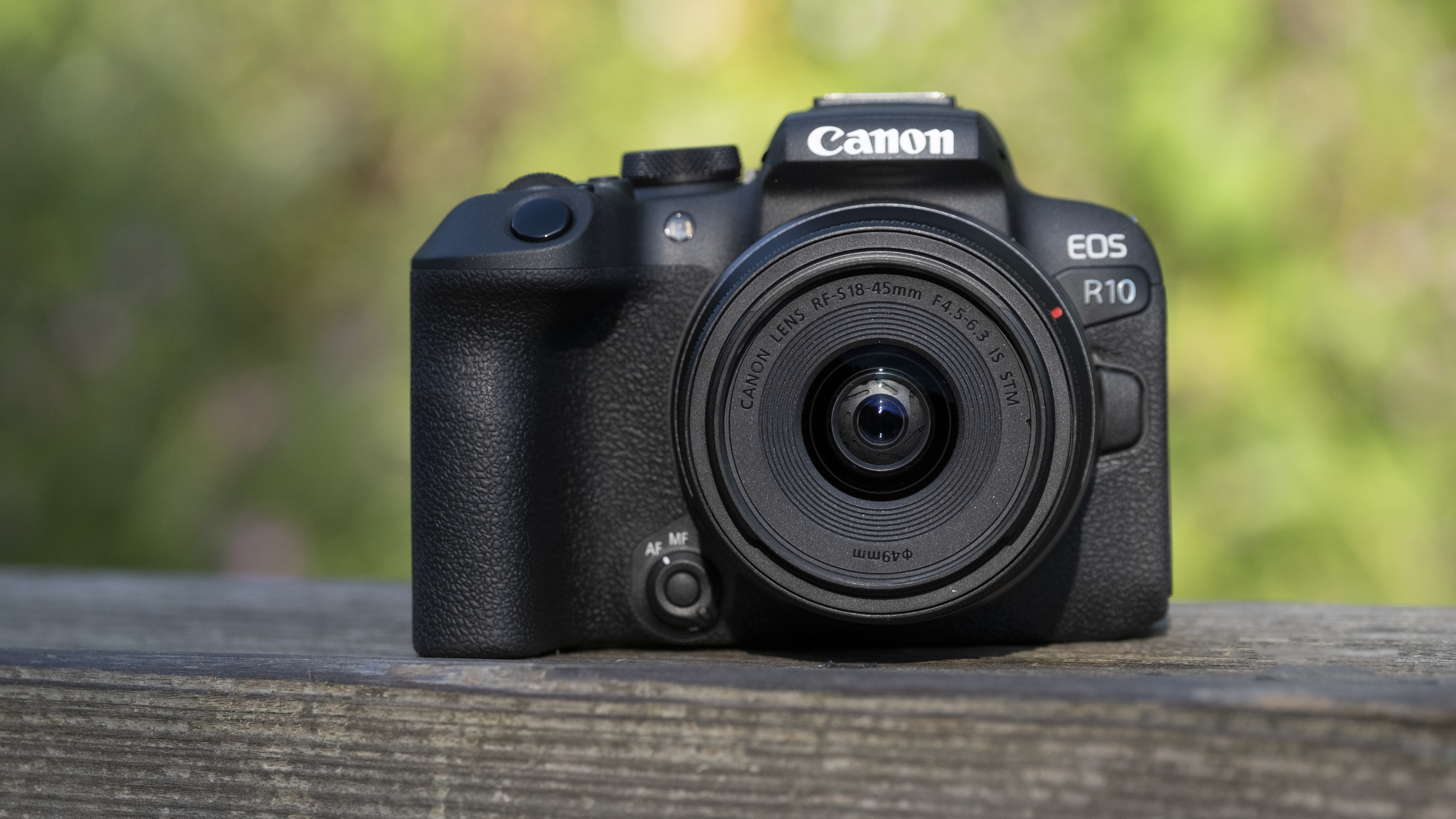
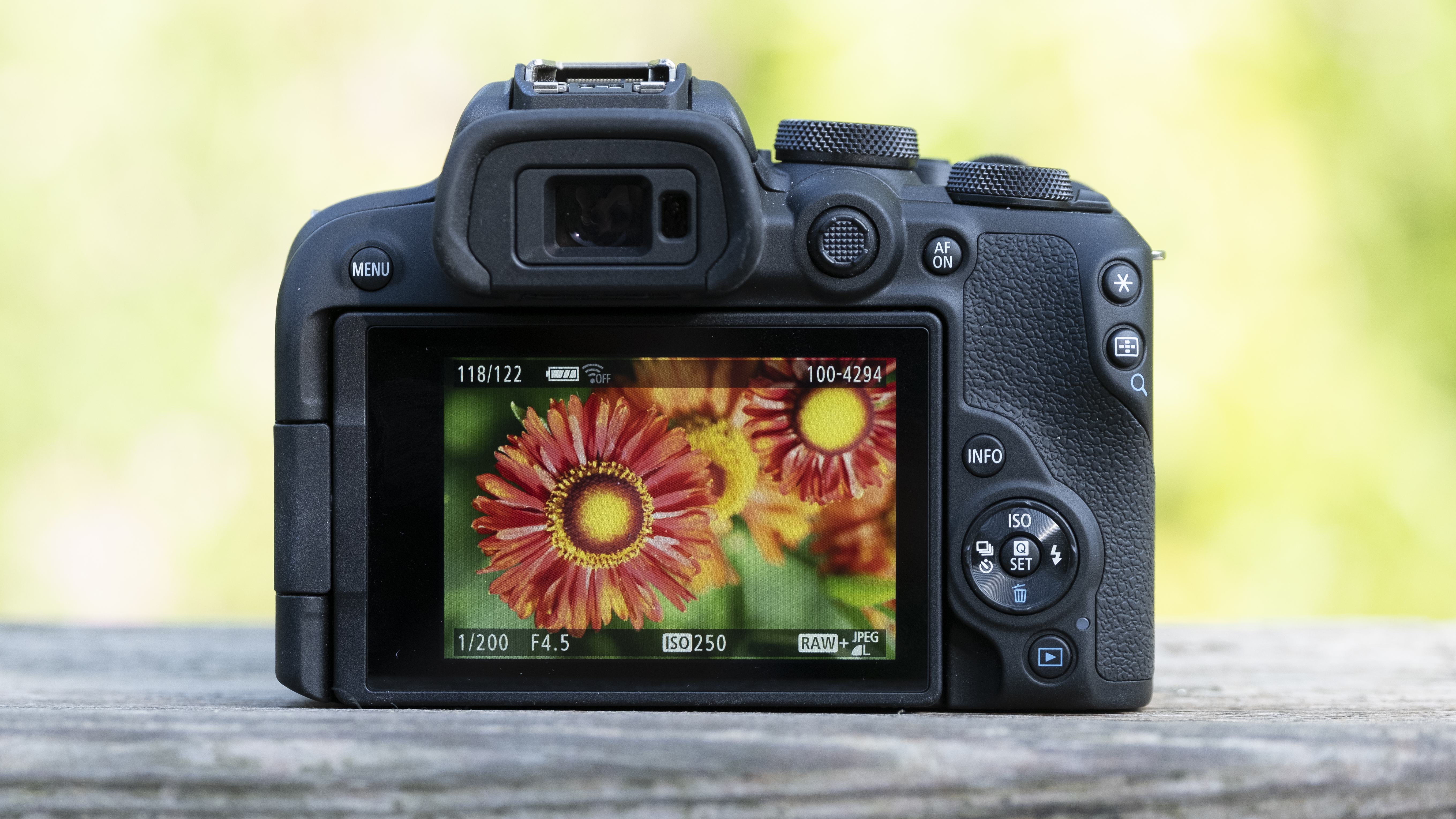
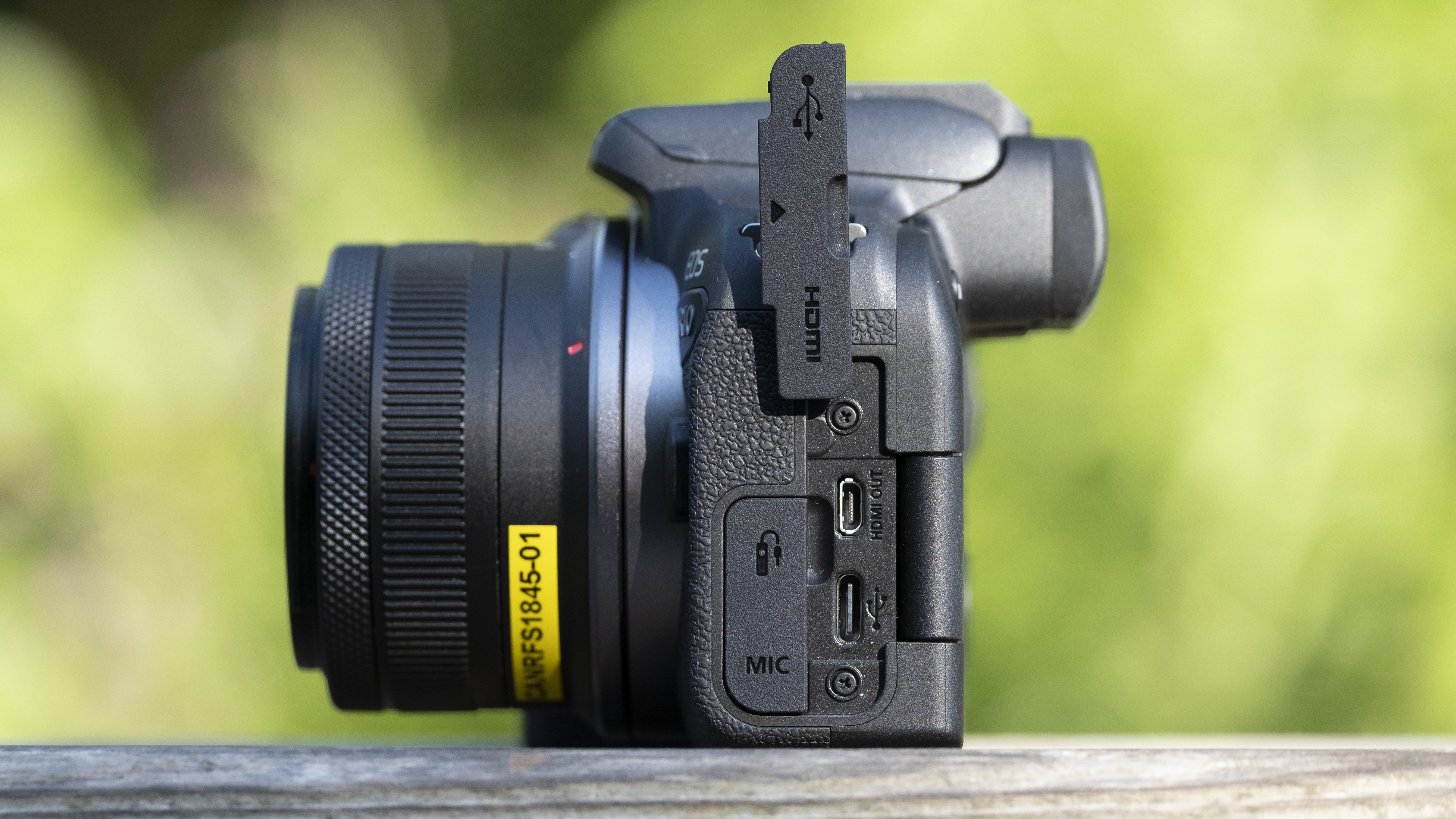
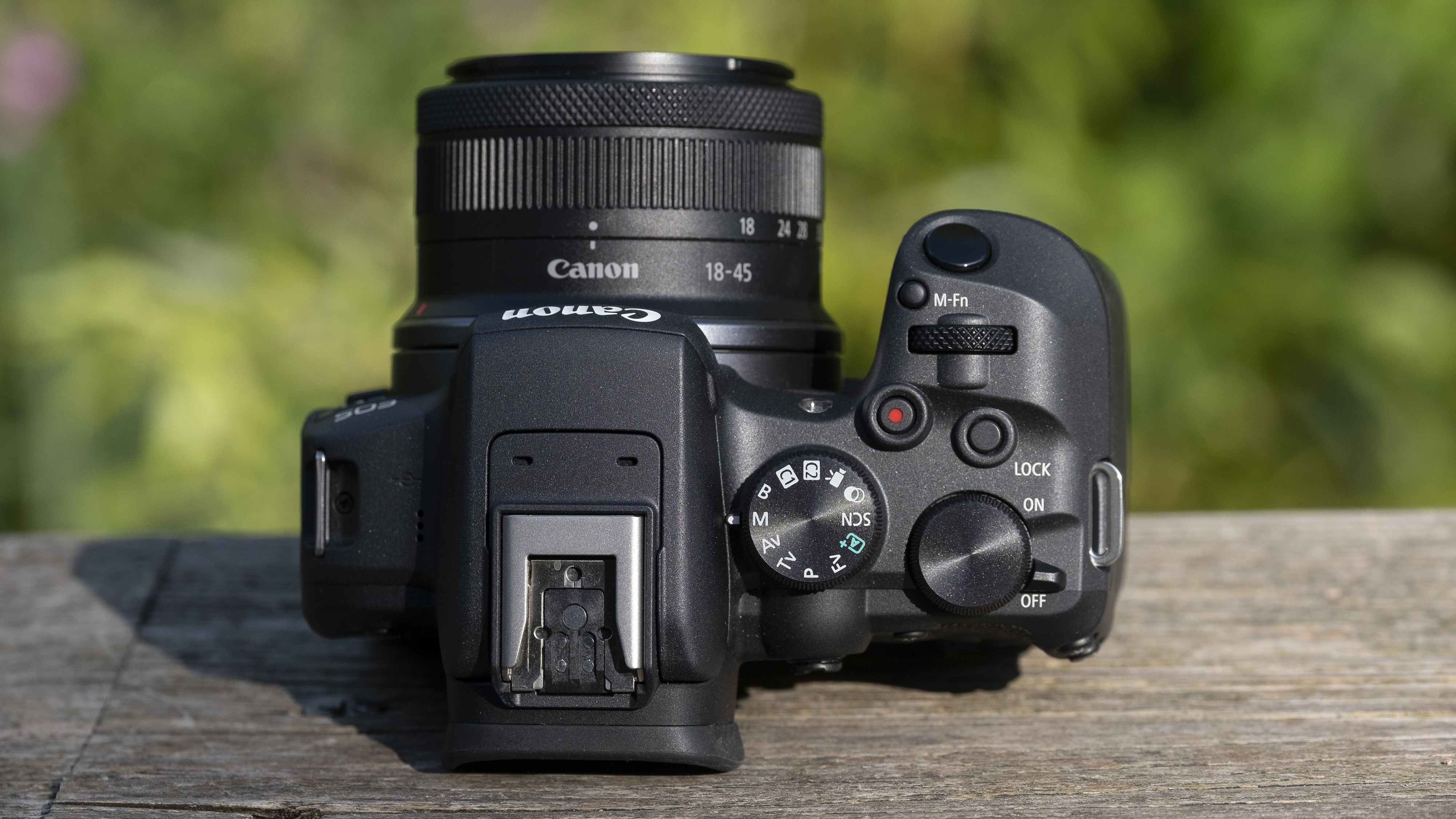

Specifications
Reasons to buy
Reasons to avoid
Canon EOS R10 sample images

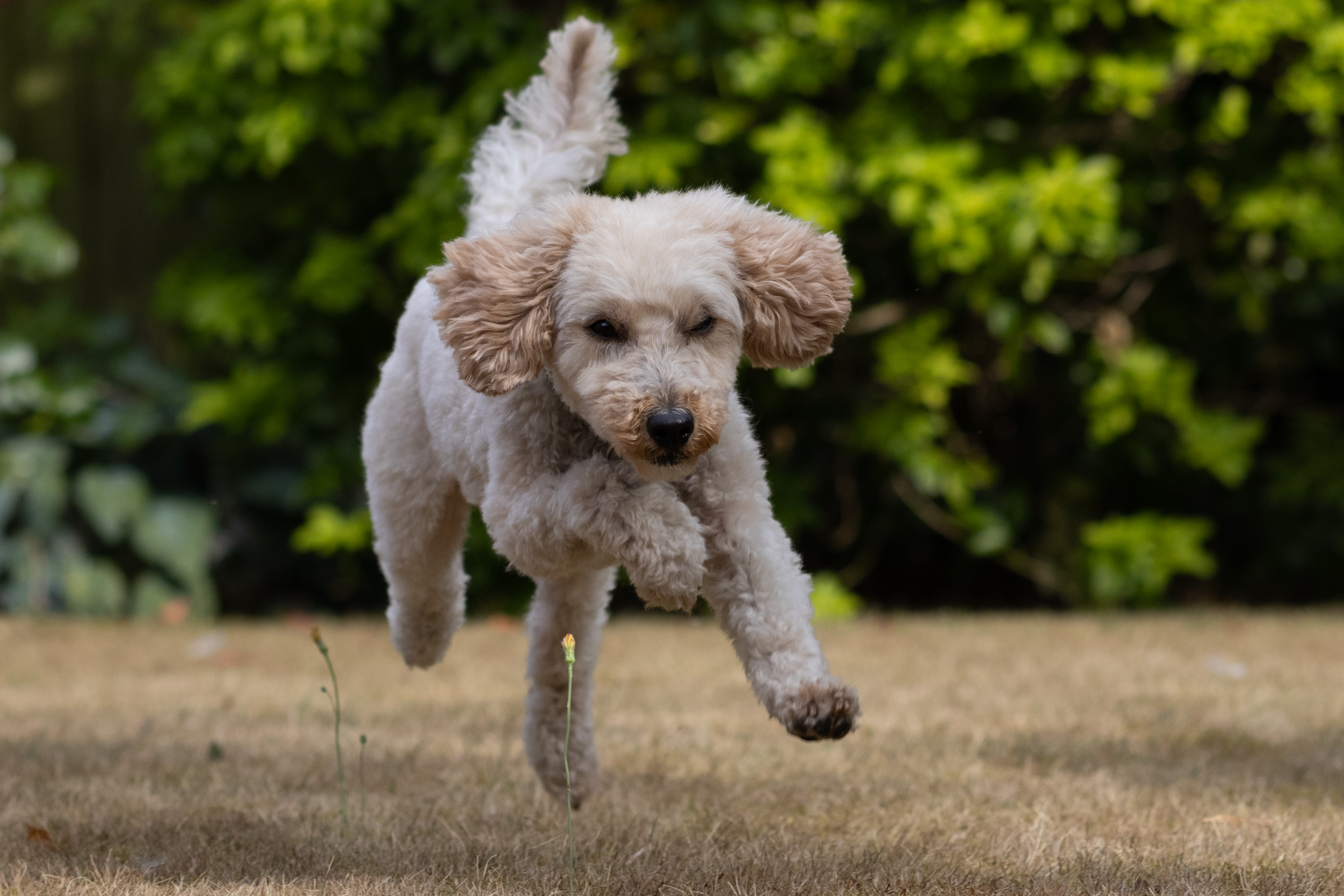
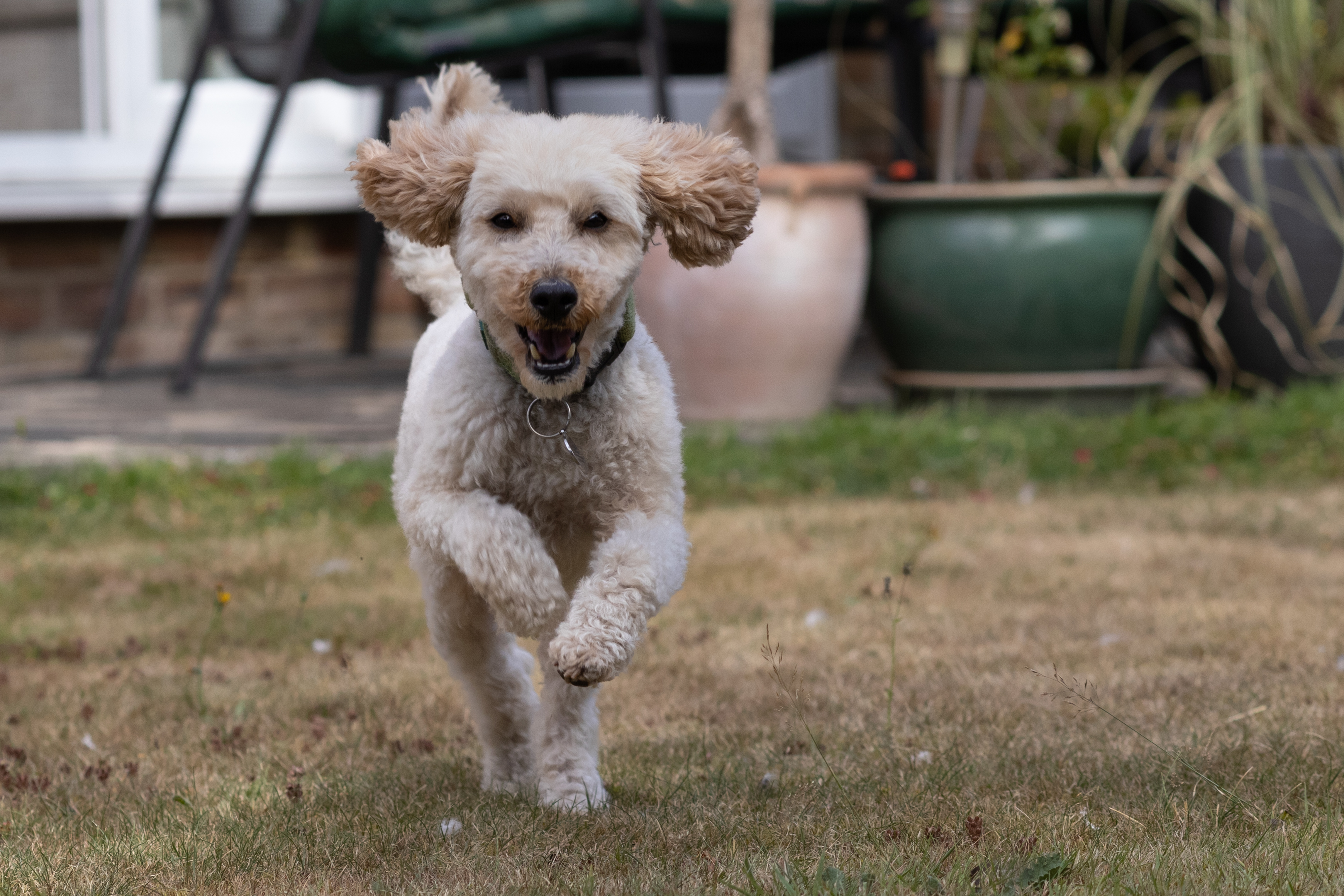
✅ You like photographing sports and wildlife: It's a pricier option in this list but the R10 comes with impressive action specs and autofocus performance.
✅ You want decent video quality too: Primarily a a stills camera, the EOS R10 also shoots crips 4K video with auto color.
❌ You want a good choice of lenses: Years after Canon's first RF-S cameras and there's a distinct lack of native APS-C lenses.
❌ You want a vlogging camera: The EOS R10 shoots lovely video, but the Sony ZV-E10 is a better choice if vlogging is a priority.
Setting a fresh bar for entry-level camera performance, the Canon EOS R10 comfortably eclipses contemporary smartphones. Equipped with a speedy Digic X processor, this mirrorless model benefits from the latest autofocus abilities.
In testing, I found its AF tracking impressively intelligent and intuitive for beginners. Claimed burst speeds of 15fps with the mechanical shutter also proved accurate during my time with the R10. Together, those skills mean it’s fast enough to capture fleeting action, which you can’t say of every beginner camera. What’s more, the lightweight chassis is comfortably familiar even for novices, with an articulating touchscreen offering useful accessibility.
The compact form factor makes it easy to wield when trying new techniques, while dual control dials mean it’s simple to tweak settings. A lack of in-body image stabilization does limit the R10’s abilities after dark, but image quality is decent enough, with plenty of detail to pull out of the shadows. So it’s not a revolutionary model, but its specs and control setup put the R10 top of my list for beginners. Here’s hoping Canon adds more native APS-C lenses to sweeten the deal.
Save on top-quality cameras and accessories with our latest Canon discounts. Find great deals on gear for every shot.
Read our in-depth Canon EOS R10 review
The best budget beginner camera

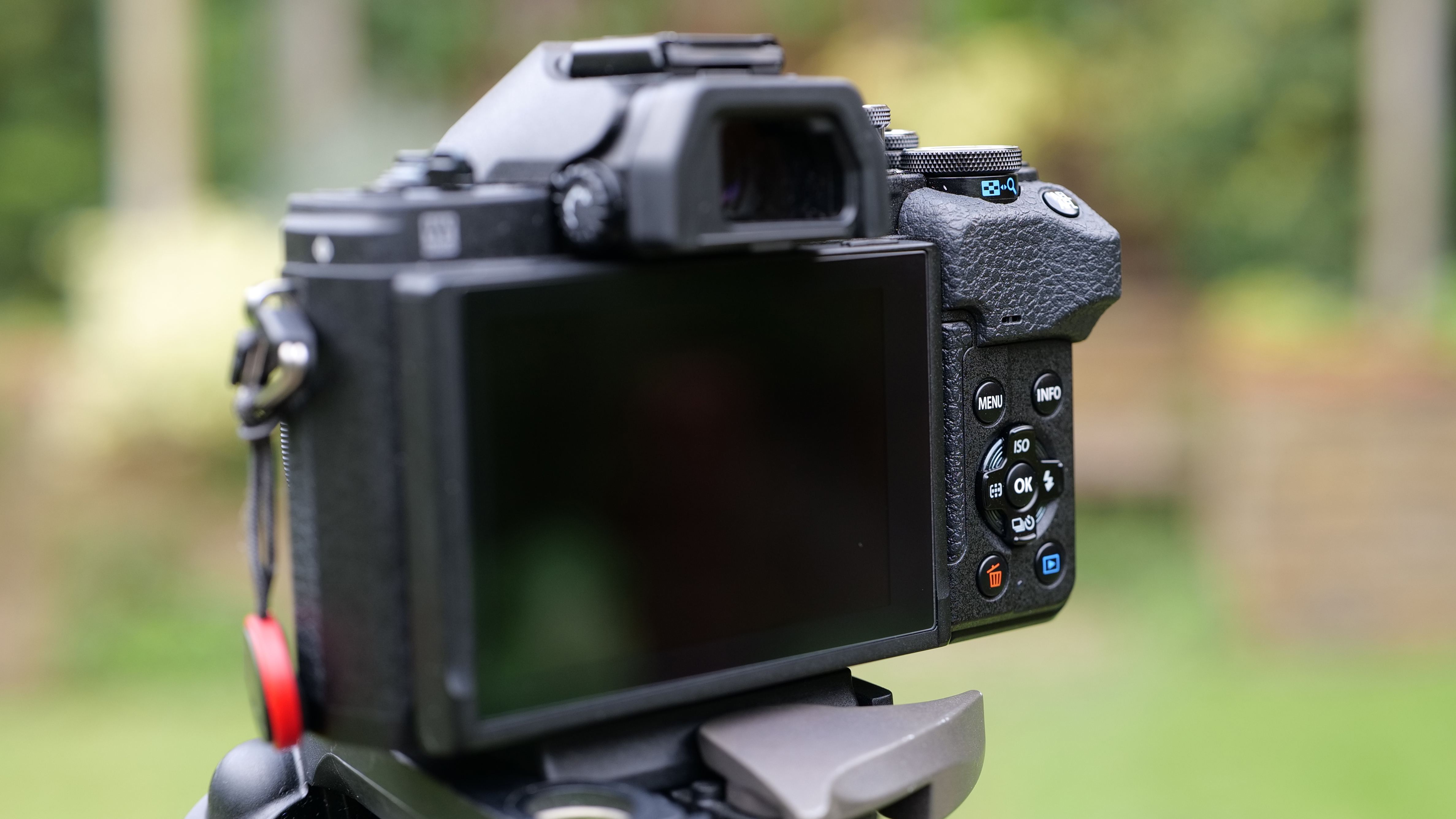

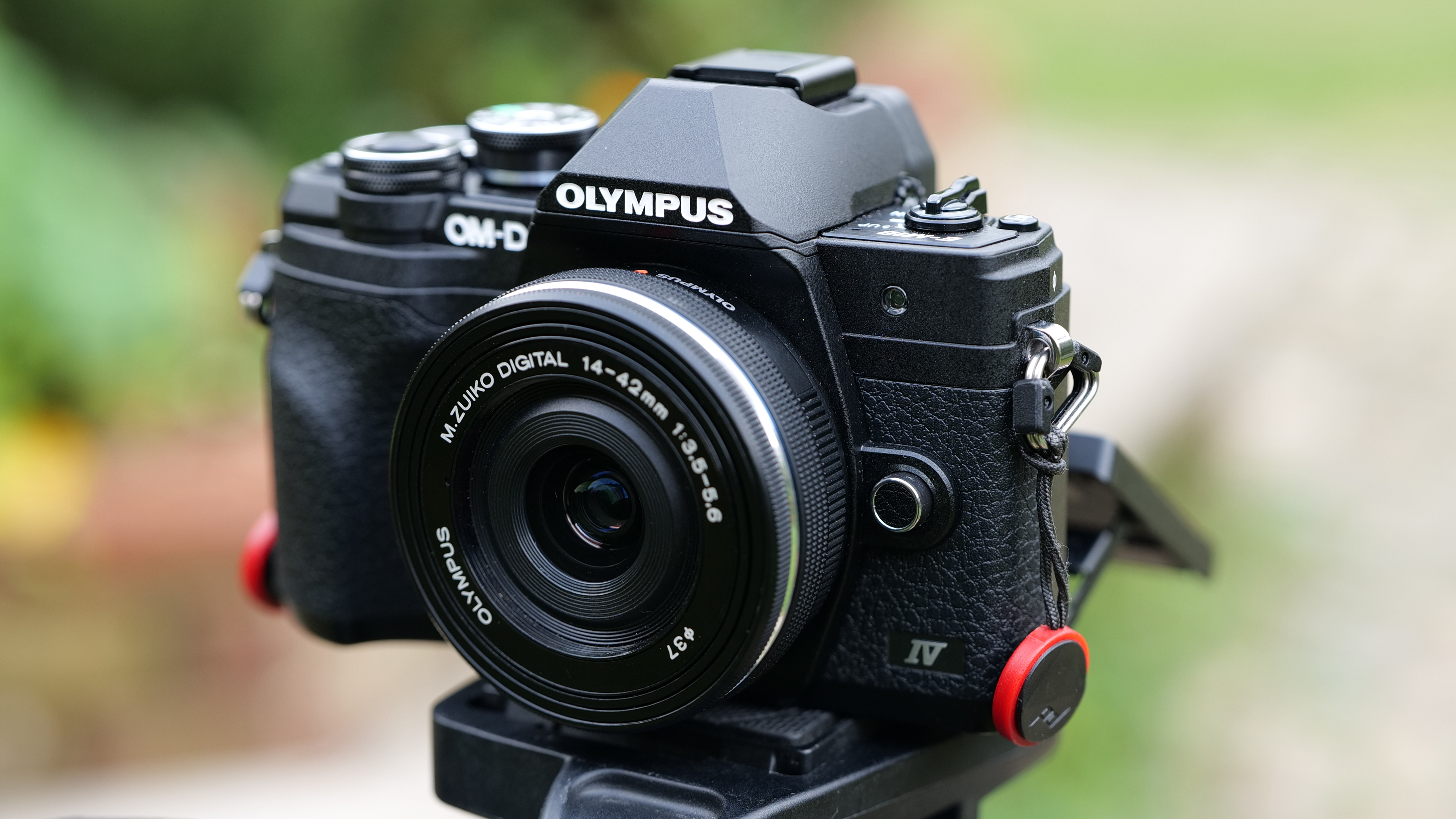
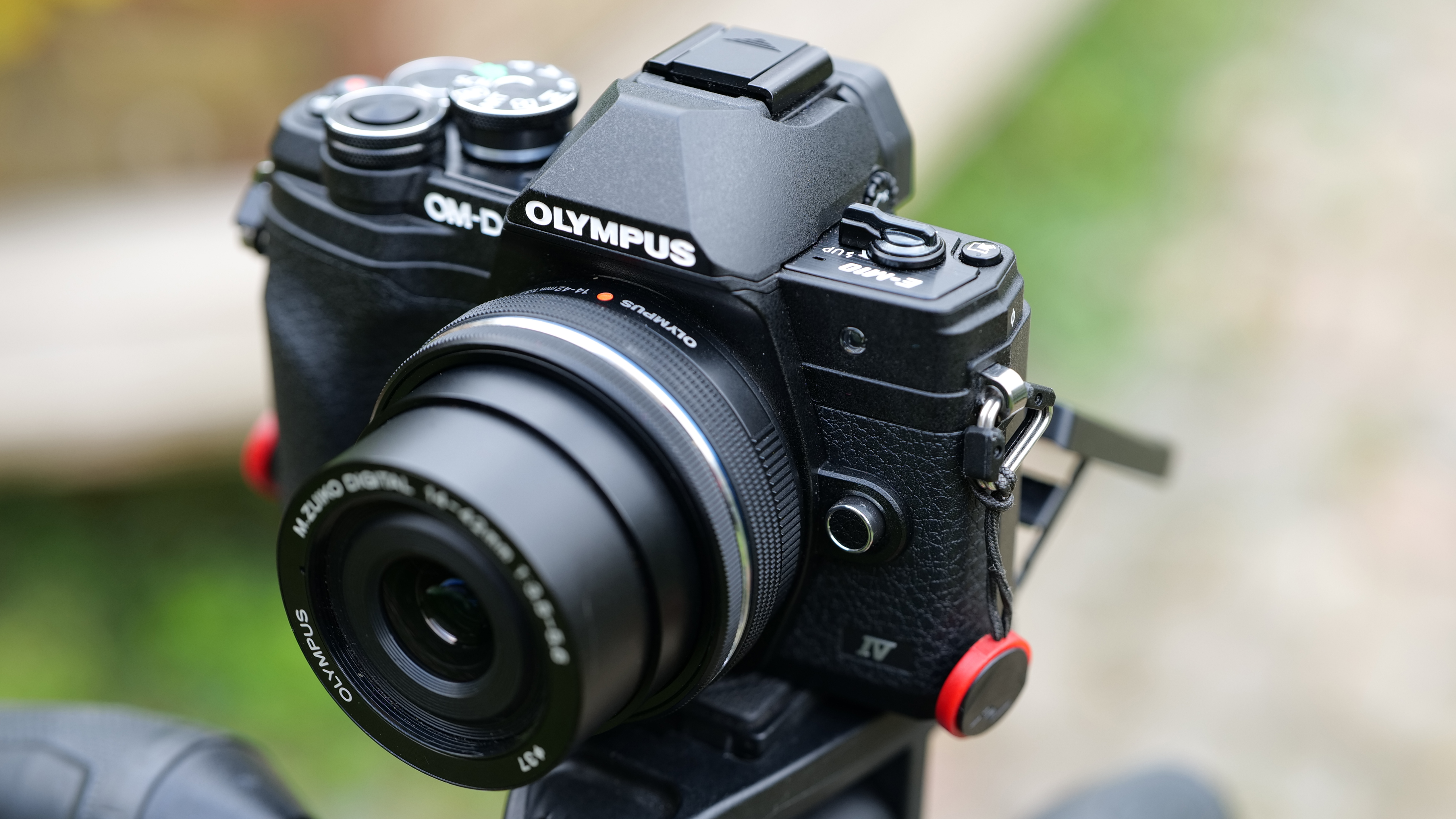
Specifications
Reasons to buy
Reasons to avoid
Olympus OM-D E-M10 Mark IV sample images
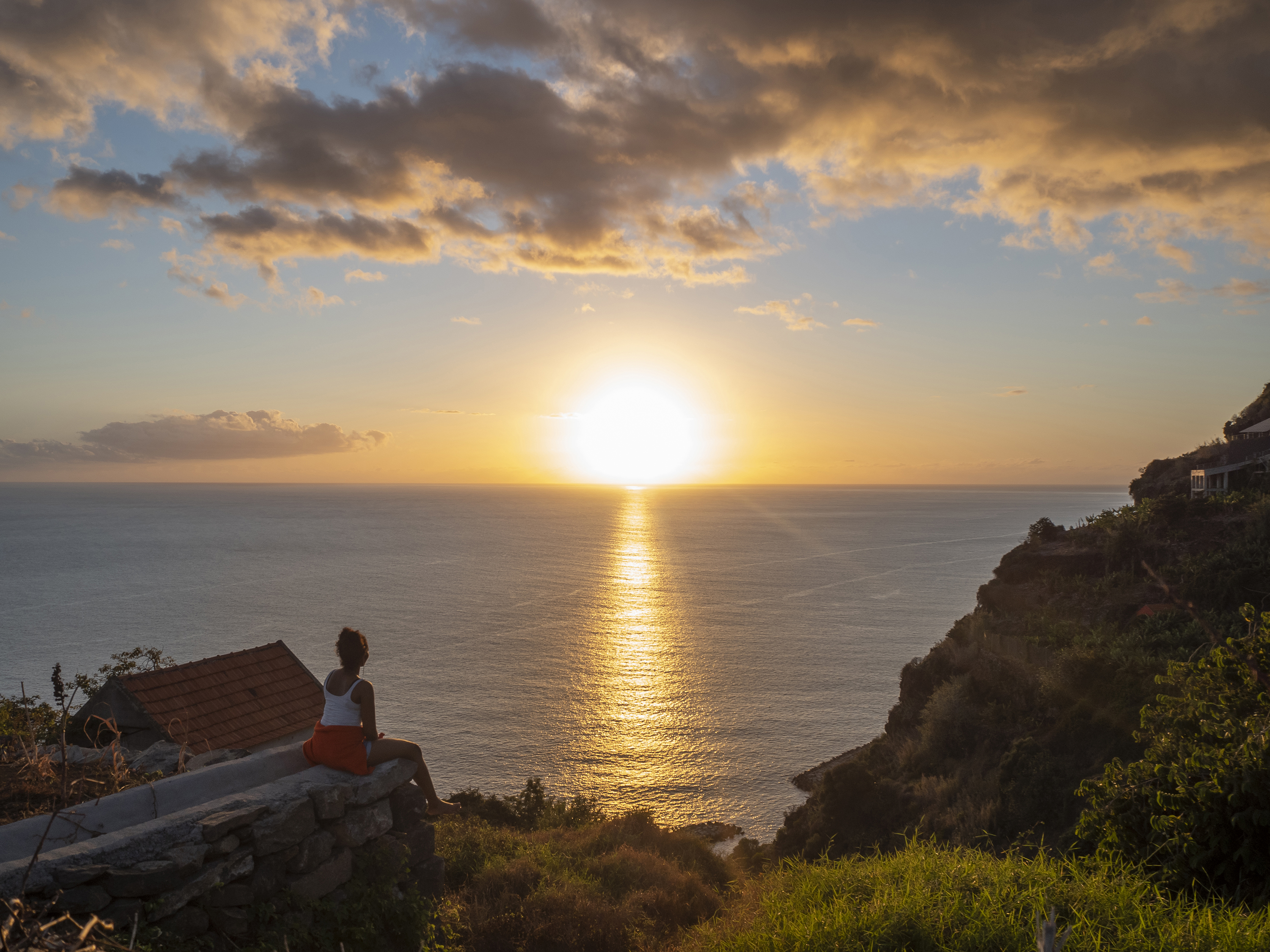
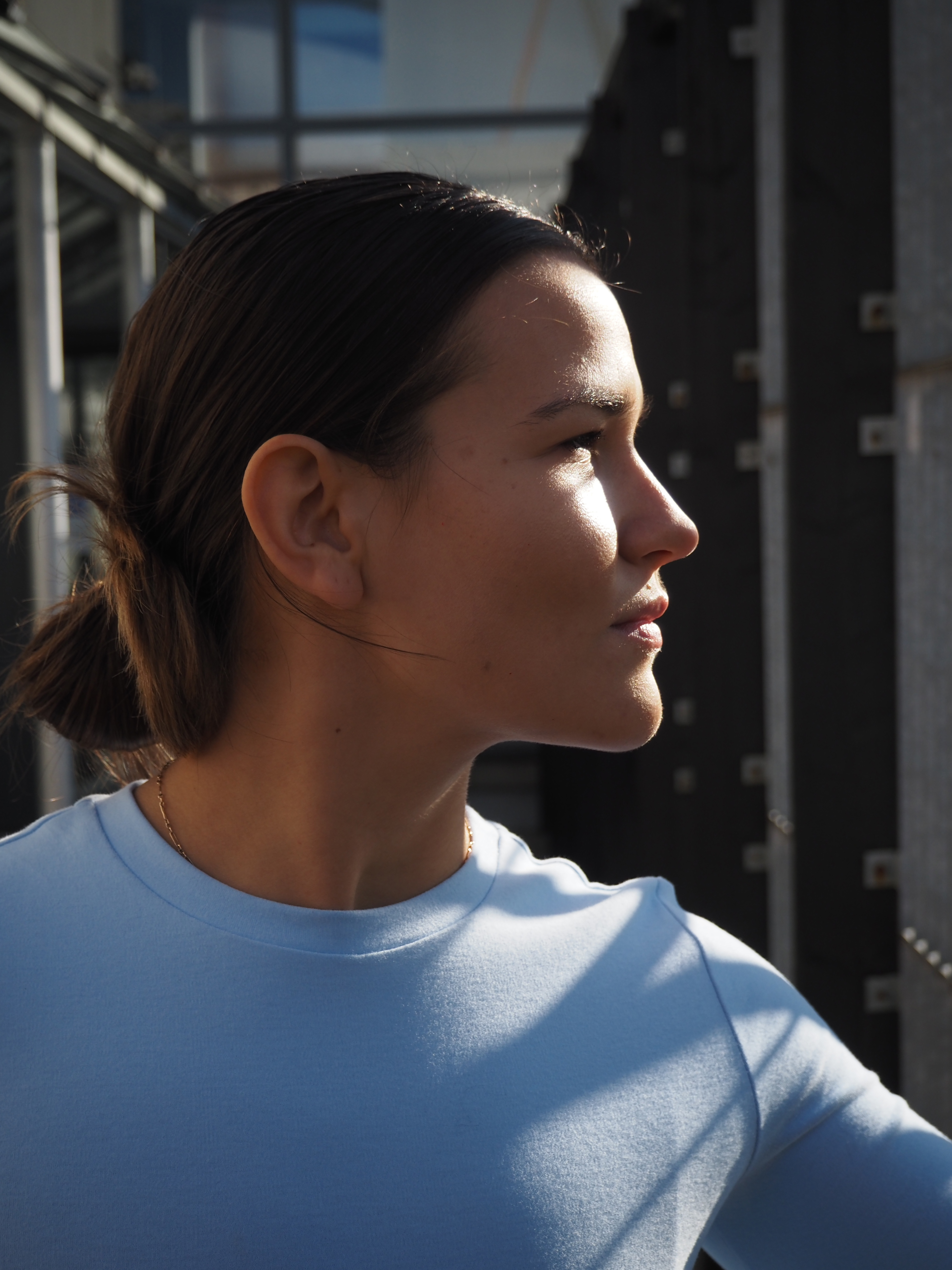



✅ You're going to buy accompanying lenses: With more than 10 years of investment there's literally hundreds of native micro four thirds lenses to choose from.
✅ You don't like the idea of a tripod: Decent in-body image stabilization can keep your handheld shots sharp even in low light.
❌ You want a truly hybrid camera: You'll get decent video quality from the E-M10 IV, but there's a few missing features for vlogging.
❌ You want the very best autofocus: Phase detect autofocus, found on the likes of the Fujifilm X-T30 Mark II, is better than the contrast system used here.
If you’re looking for a simple, compact mirrorless camera that consistently captures attractive images, the OM-D E-M10 Mark IV definitely deserves a spot on your shortlist. Designed primarily for smartphone switchers, its ergonomic grip, approachable button layout and handy flip-down touchscreen give it good versatility, without cluttering the classically styled shell.
It might lack some of the more advanced features of its pricier rivals – including microphone and USB-C ports – but it does a brilliant job as a stills camera. In fact, I found that it's the most photo-centric camera in its category, delivering great stills during our tests.
An Advanced Photo mode makes it easy to have a go at advanced techniques such as long exposures, while the in-body image stabilization system – borrowed from the flagship E-M1 – is superb. The sensor resolution is decent at 20.3MP and, because it’s a Micro Four Thirds camera, it has one of the widest lens catalogues on the market. It might not grab headlines, but the Mark IV is a fantastic first camera for beginners.
Read our in-depth Olympus OM-D E-M10 Mark IV review
The best premium camera for beginners
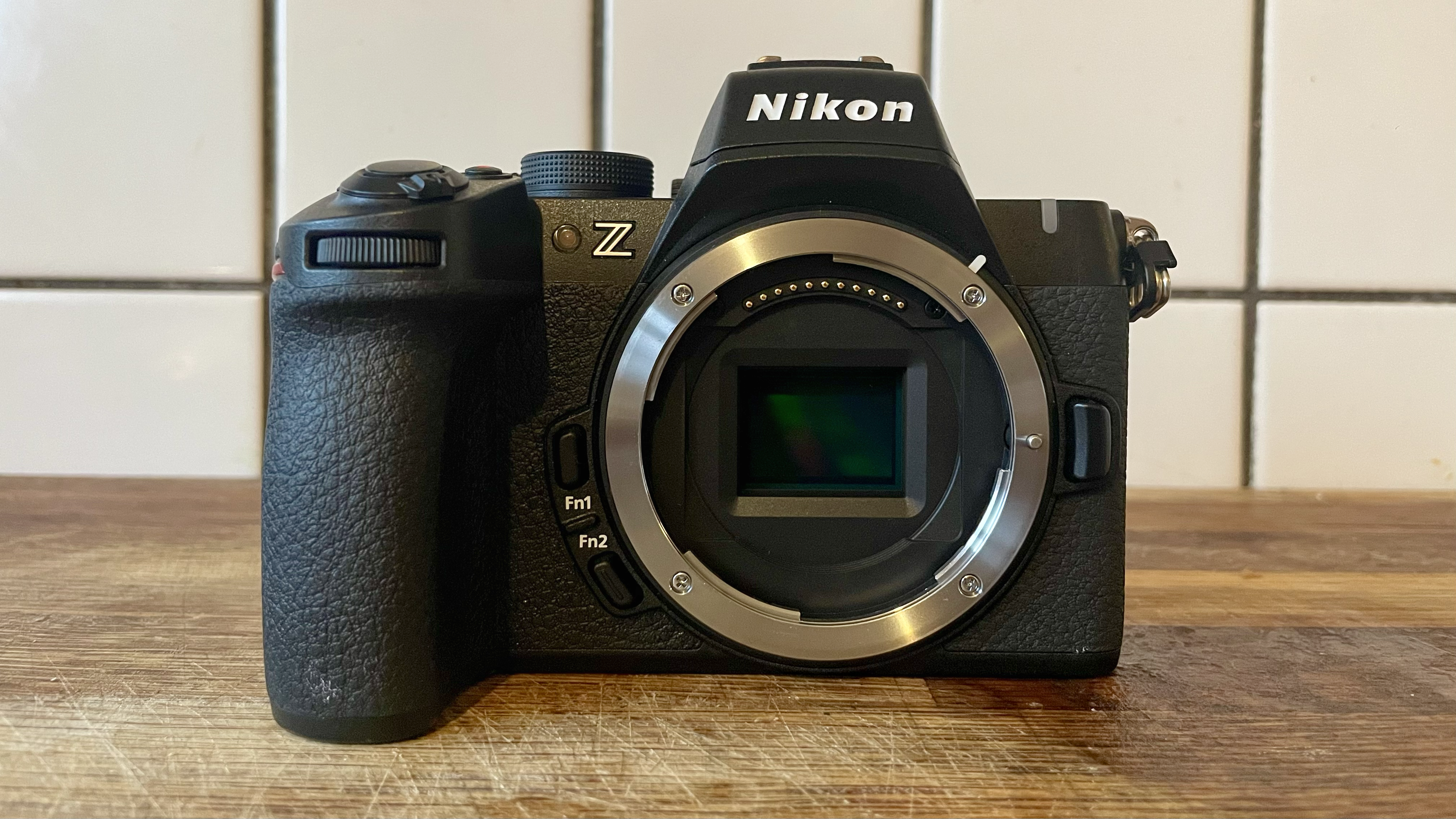
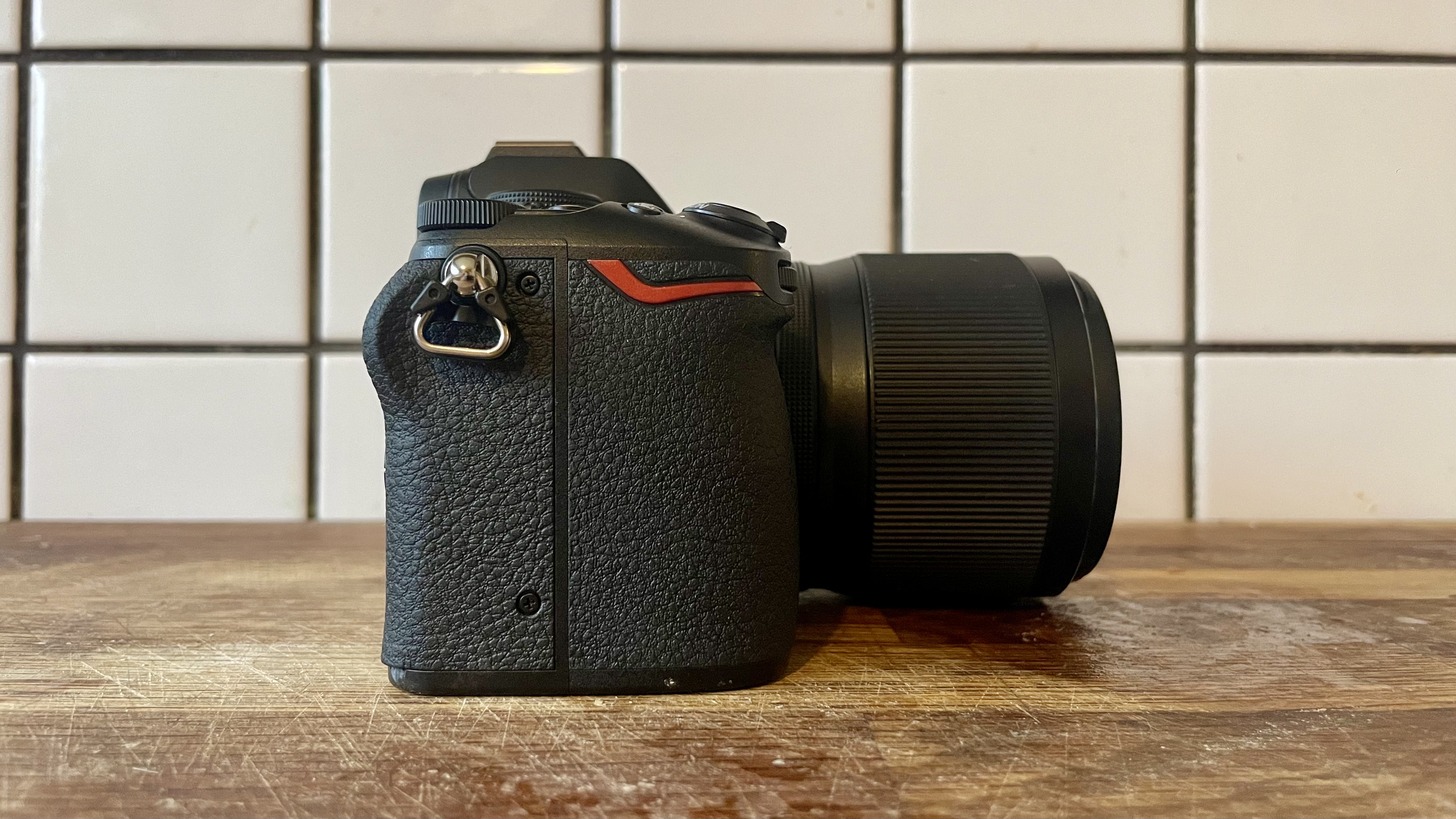
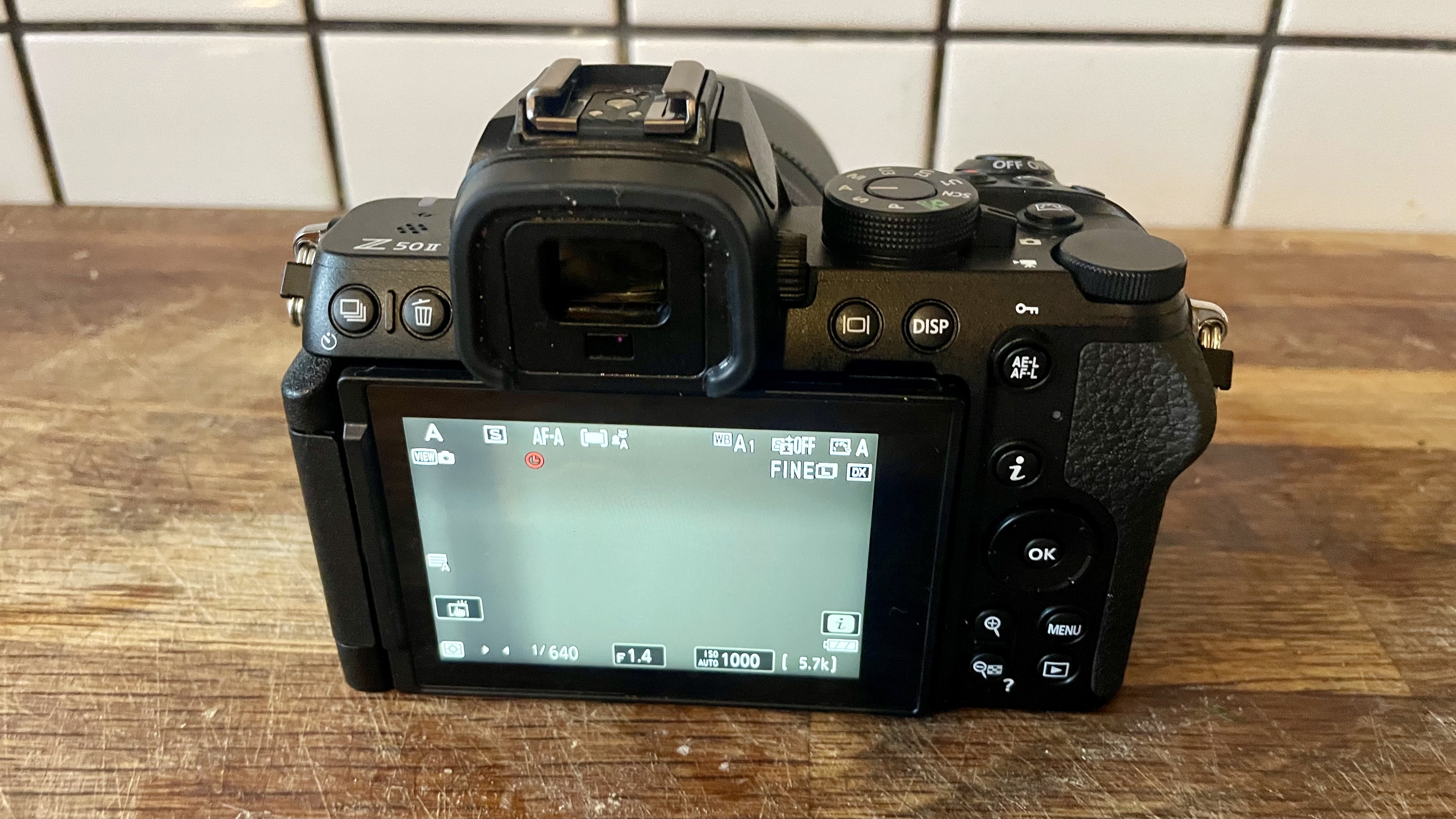
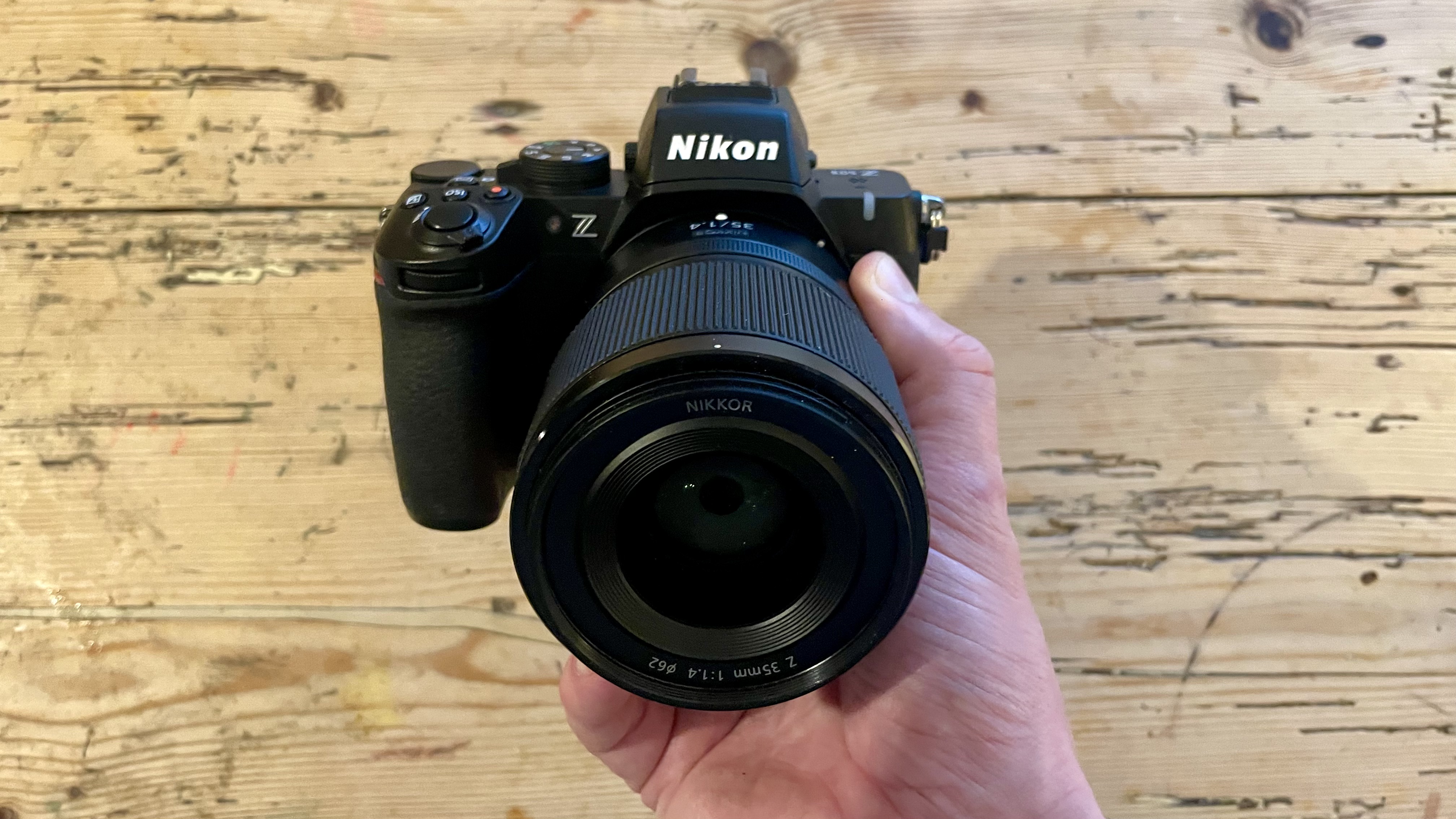
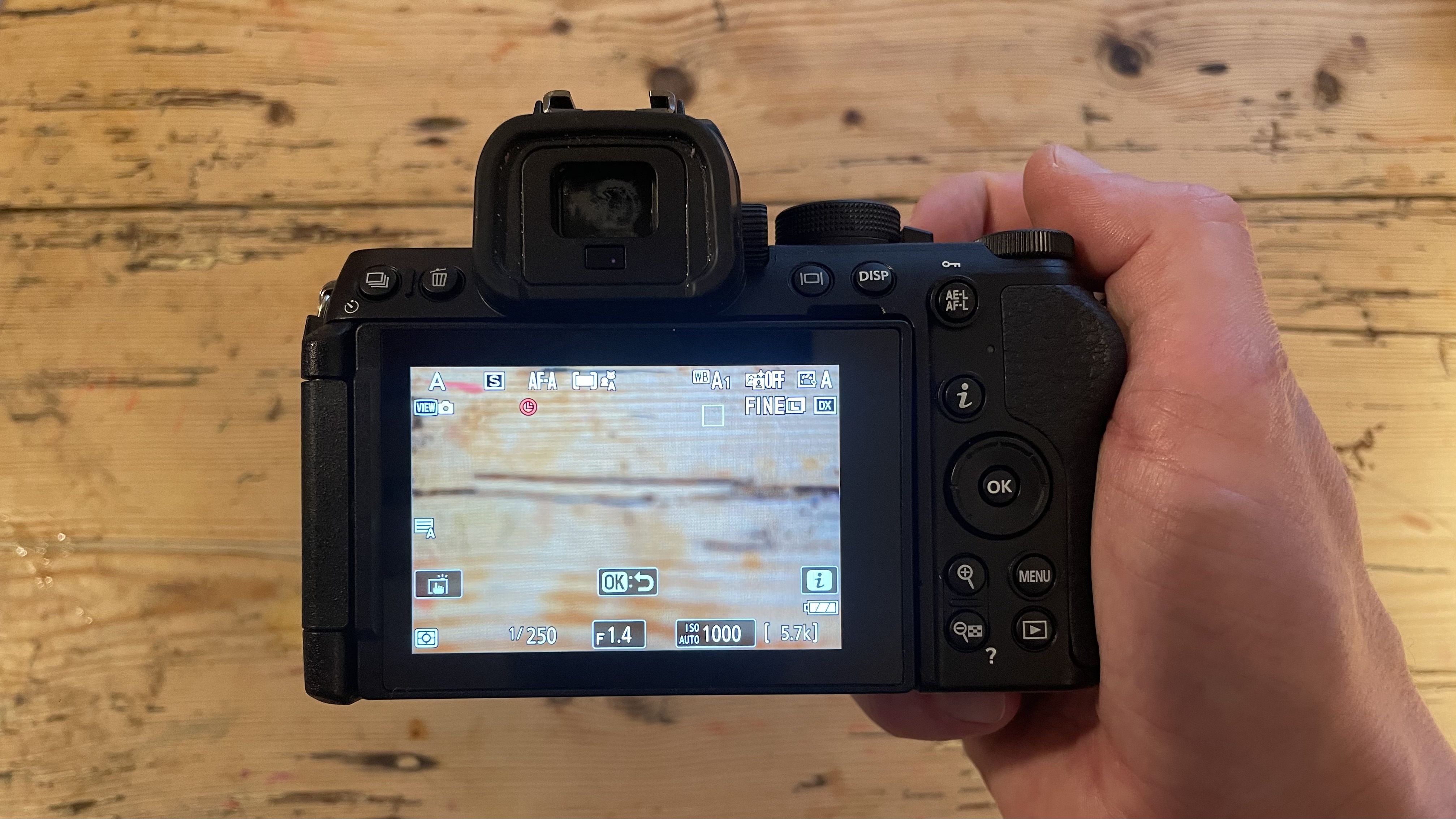
Specifications
Reasons to buy
Reasons to avoid
Nikon Z50 II sample images
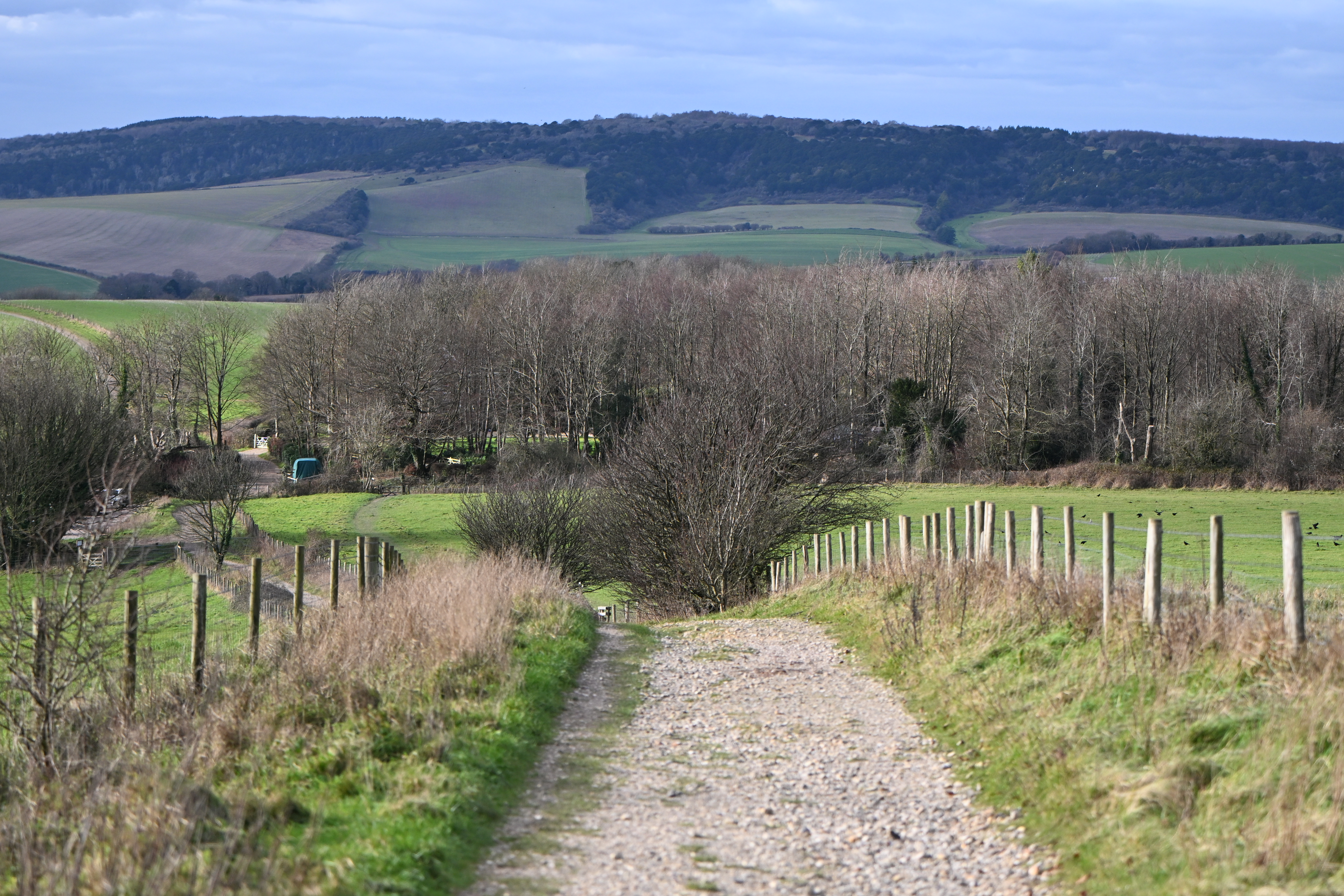
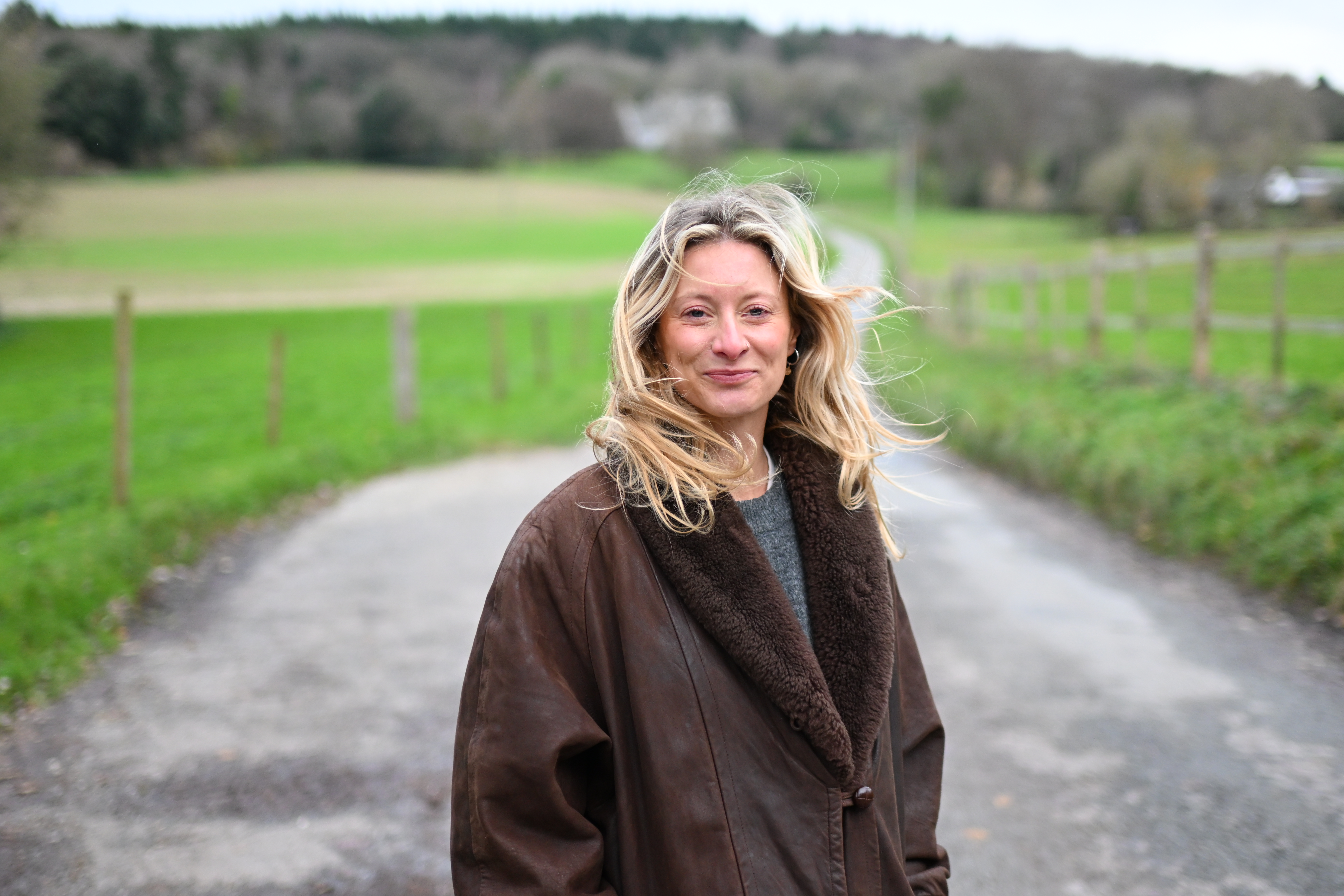


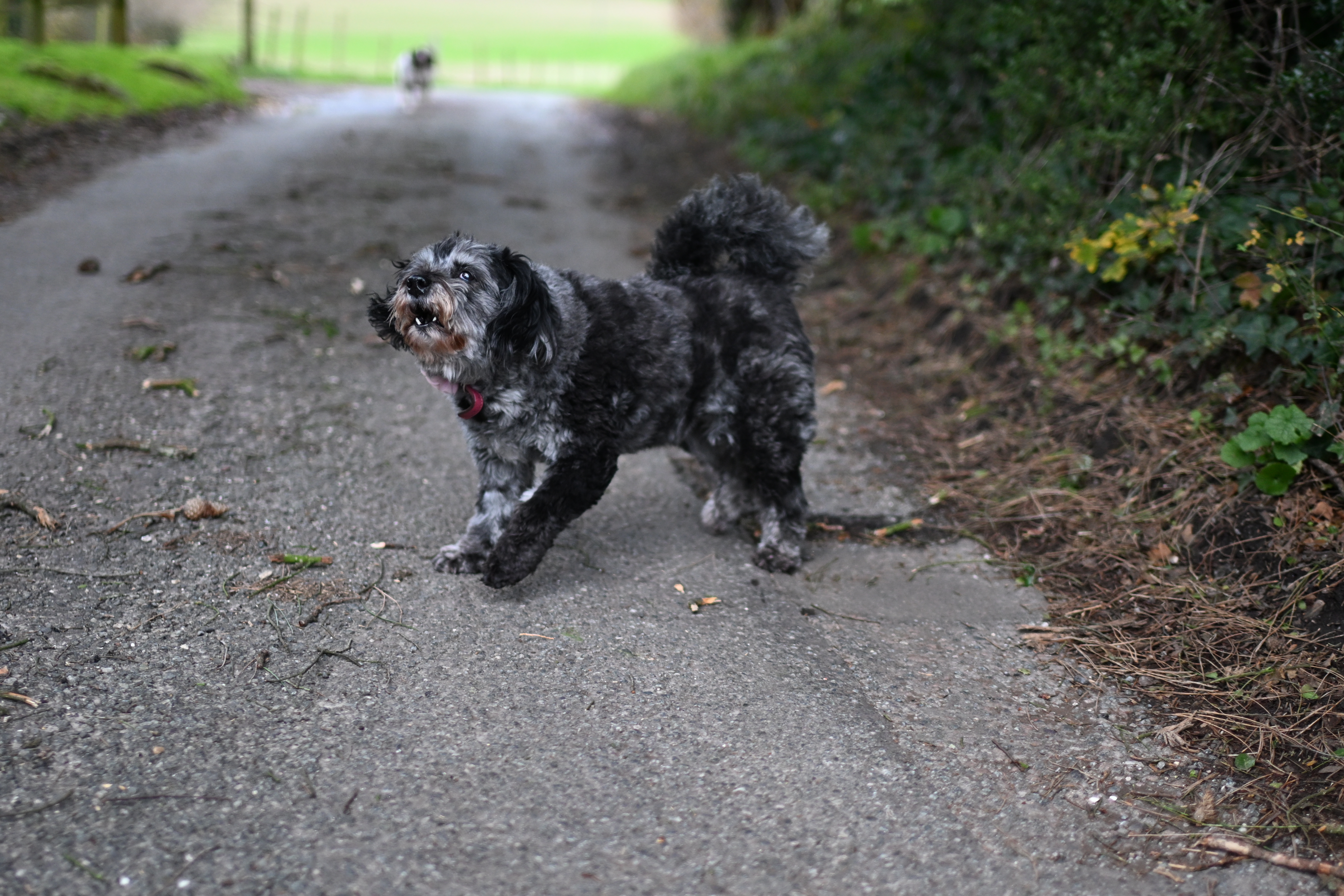
✅ You want flagship autofocus: Driven by an Expeed 7 processor, the Z50 II has subject detection autofocus performance to match the top-shelf Nikon Z9.
✅ You plant to shoot some video: Hybrid specs include 4K/30p footage oversampled from 5.6K, plus support for N-log 10-bit recording.
❌ You want the most detailed images: While the Z50 II is capable of sharp stills, its 20.9MP resolution is bettered by others, including the Canon EOS R10.
❌ You need in-body image stabilization: Like most entry-level cameras, there’s no optical image stabilization built-in, so you’ll need a VR lens for shake reduction.
An entry-level camera with enthusiast aspirations, the Nikon Z50 II impressed in testing with its supercharged performance: thanks to an Expeed 7 processor, it offers flagship subject detection skills. While its 20.9MP resolution isn’t the sharpest out there, its fast, accurate autofocus gives beginners a good chance of snagging sharp stills.
In my review, I also commented on how nice the Z50 II feels in the hand. It balances tidy dimensions with a deep grip and the right amount of controls, plus a useful vari-angle touchscreen. The result is a camera that makes it easy and comfortable for beginners to learn the ropes of photography. It helps that the interface is quick. A Picture Control shortcut also gives quick access to a library of preset profiles, making it easy for newbies to experiment.
This is also a capable hybrid, with support for uncropped 4K/30p video and 10-bit N-log recording, as well as a Product Review mode for influencers. I think this makes the Nikon Z50 II a great camera to improve with: it’s capable of quality stills and video straight out of the box, while also offering the legroom for users to develop their creative skills.
Read our in-depth Nikon Z50 II review
The best beginner camera for video
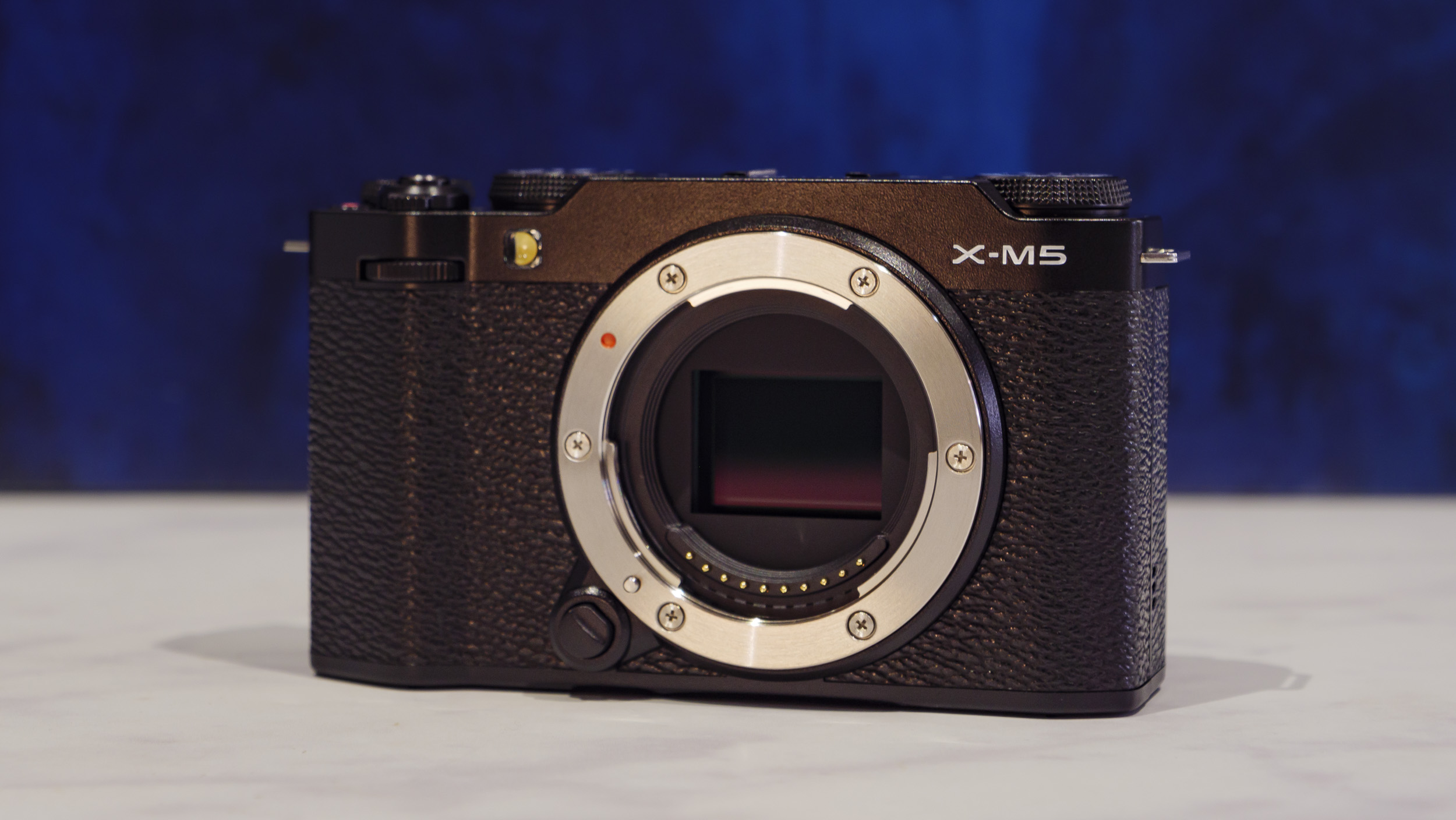
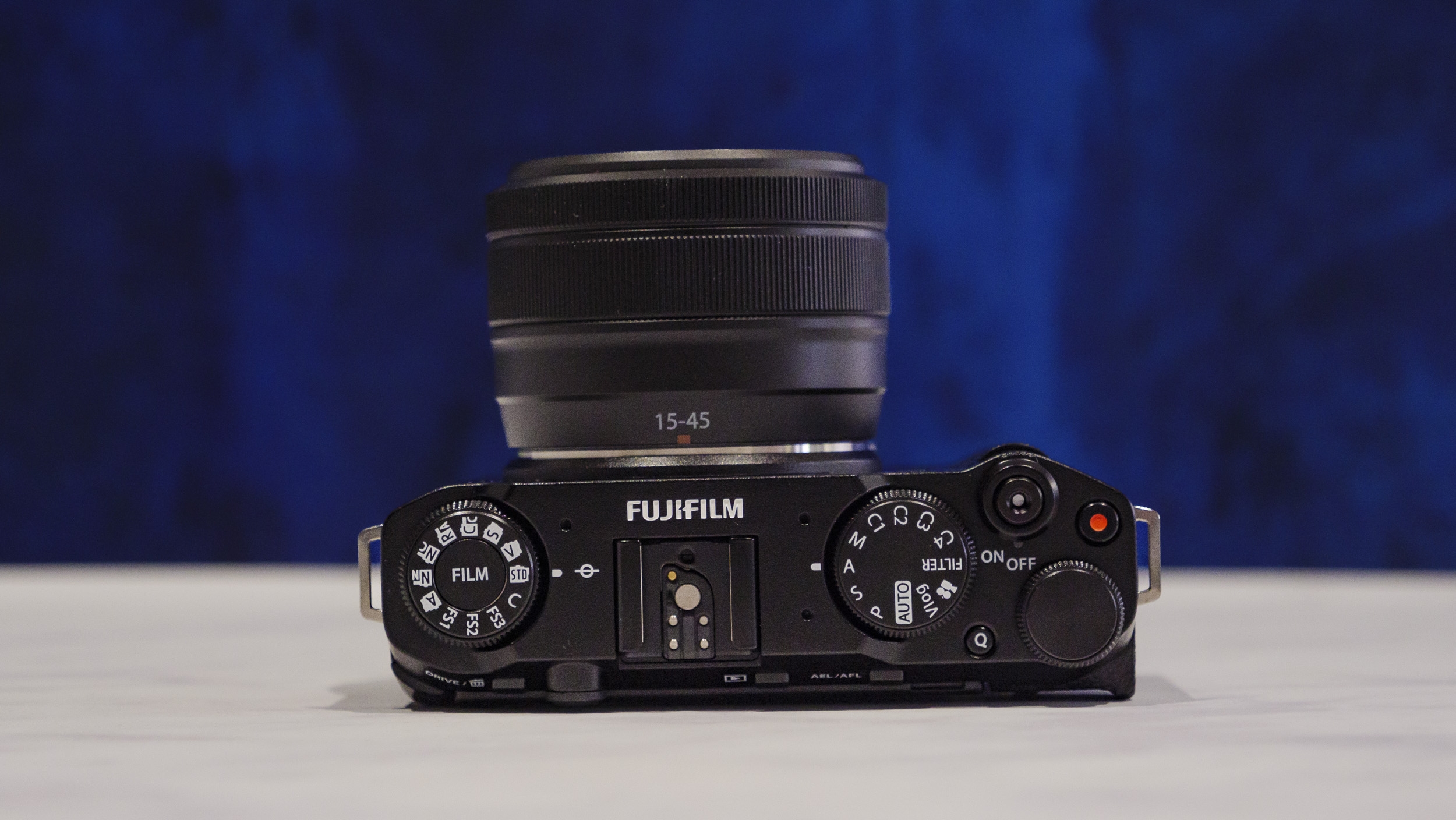
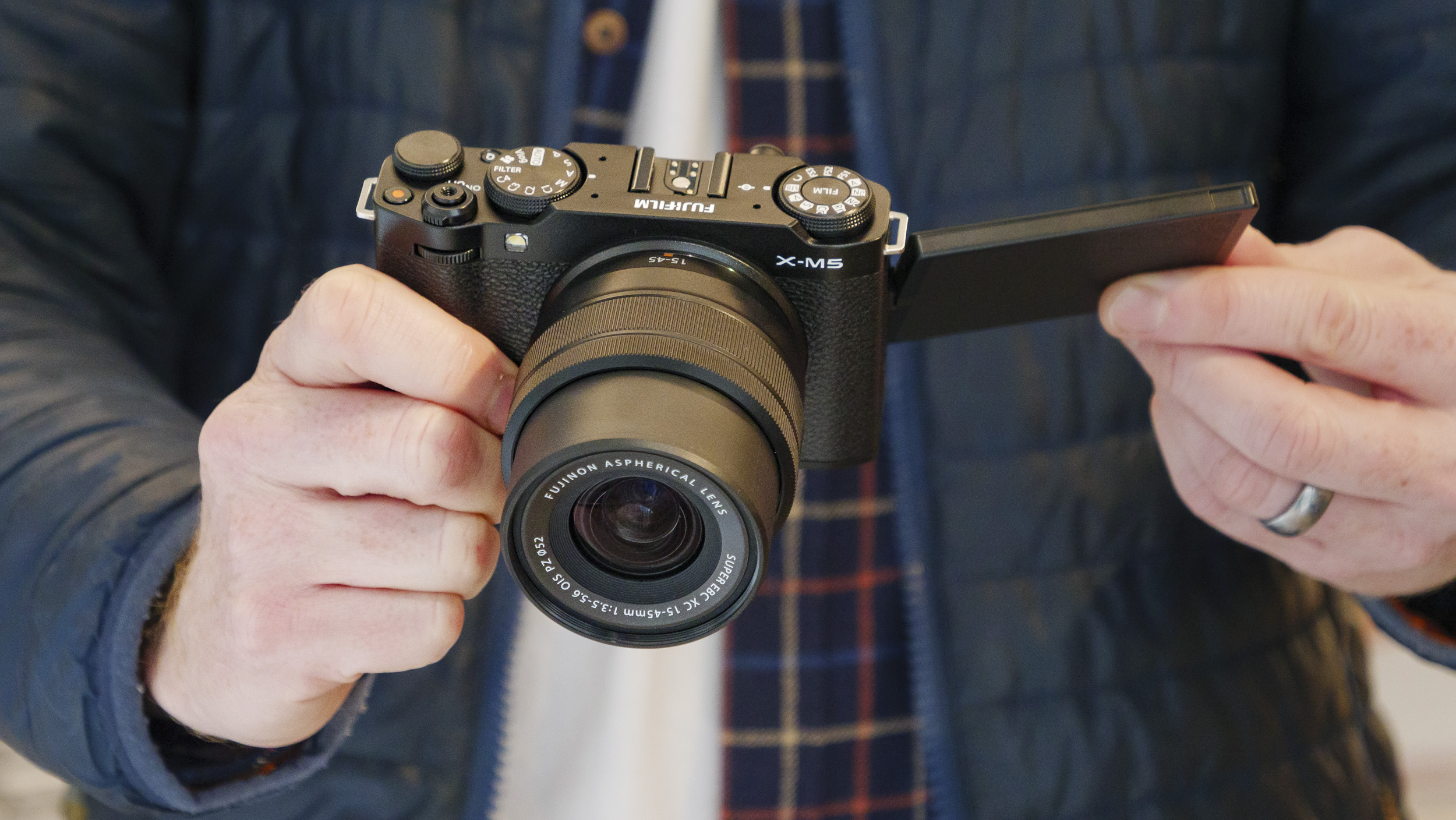
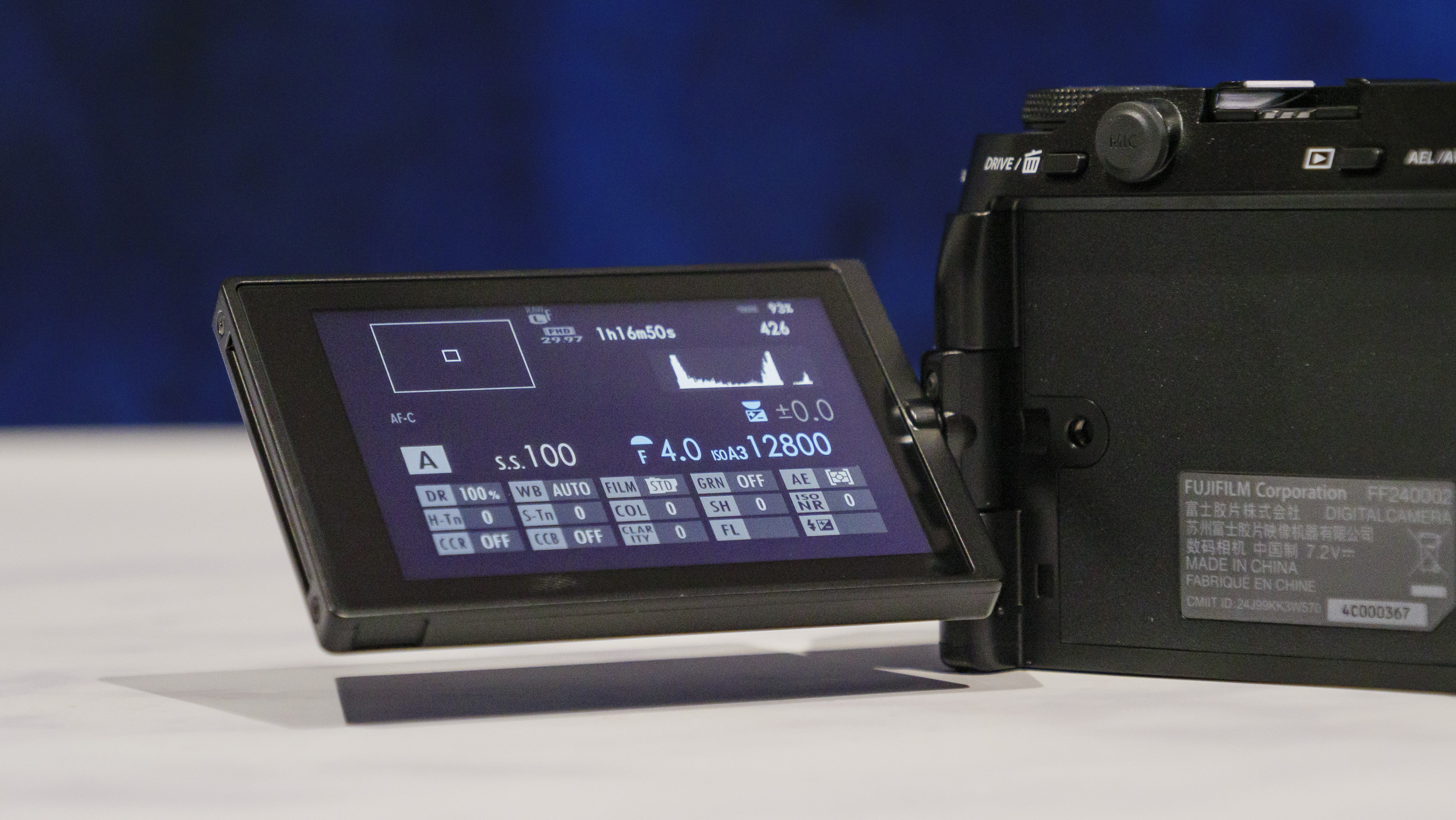
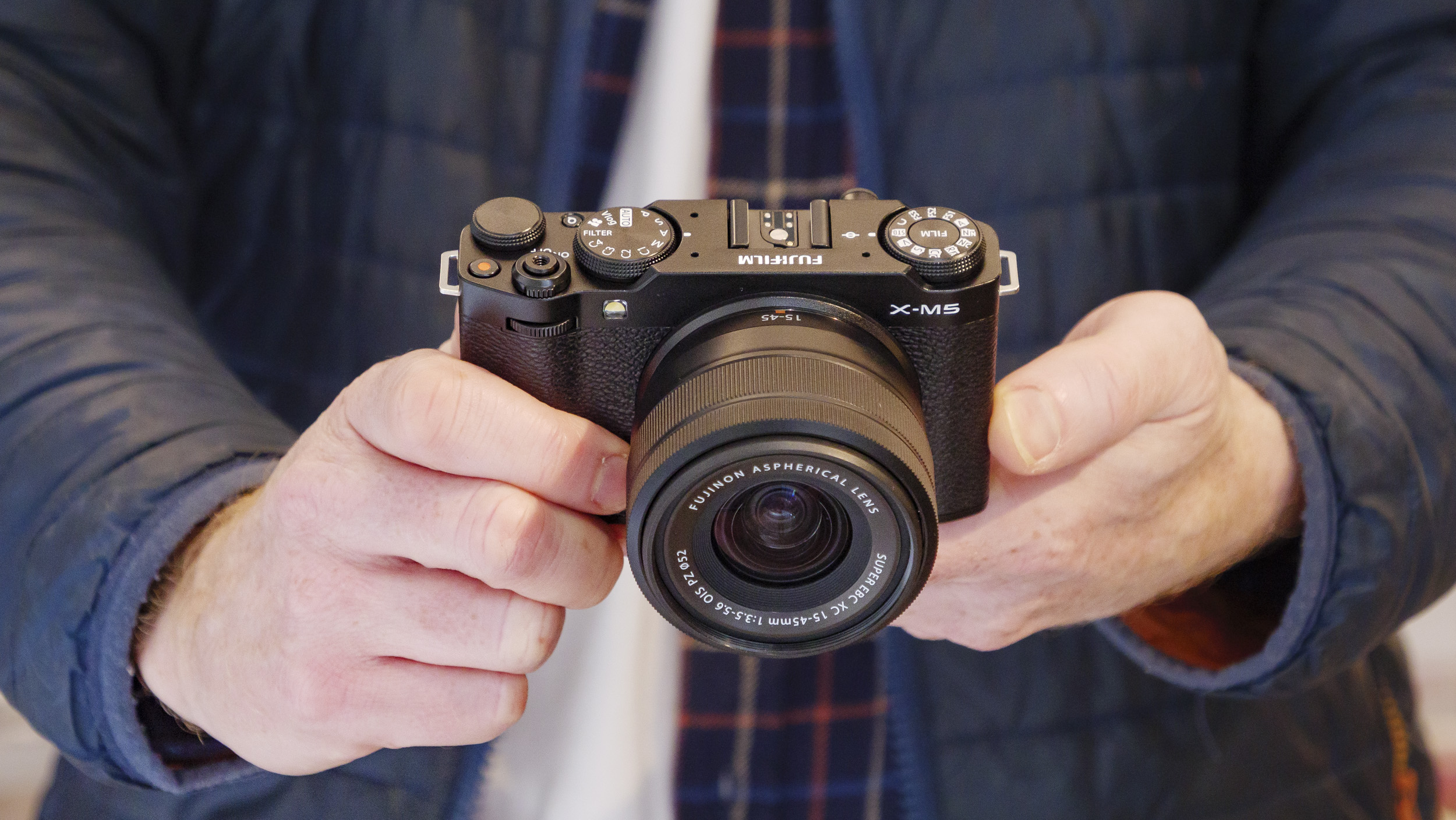
Specifications
Reasons to buy
Reasons to avoid
Fujifilm X-M5 sample video
✅ You want budget-friendly 6K: Despite its entry-level price tag, the X-M5 offers an impressive video feature set, including open gate 6K recording in 10-bit.
✅ You want a compact camera: The X-M5 is one of the lightest mirrorless cameras. Paired with a pancake lens, its dimensions make for a tiny package.
❌ You want a proper hybrid: The X-M5 is primarily designed for video. With no viewfinder, this is a camera for occasional stills rather than regular photography.
❌ You have large hands: Its dimensions might make the X-M5 pocketable, but they also mean its controls are too tightly packed for big hands to easily use.
If you fancy getting into videography, you won’t find a camera with better specs for the price of the Fujiiflm X-M5. Despite its entry-level status, this is a camera that can record sharp 6K video using the full sensor, with 10-bit color depth. Its features are also filmmaker-friendly: the ports are positioned away from the flip-out touchscreen, for example, with the mic input right beneath the hot-shoe. There’s also a mode for capturing 9:16 vertical video without rotating the camera, perfect for creating social content.
With compact dimensions and a lightweight build, this is a properly tiny camera. Based on our review, this makes it a very easy one to travel with, even if tightly packed controls can be tricky for big hands to navigate. While there’s no viewfinder, I think it also works for occasional street photography with a lens like the XF 27mm f/2.8.
Some areas do signal cost-cutting. You don’t get in-body image stabilization, while the touchscreen resolution is lower at 1.04m dots than other Fujifilm models like the X-S20. Still, if it’s video that you’re into, I think this is very capable little camera for content creators.
Read our in-depth Fujifilm X-M5 review
The best DSLR camera for beginners
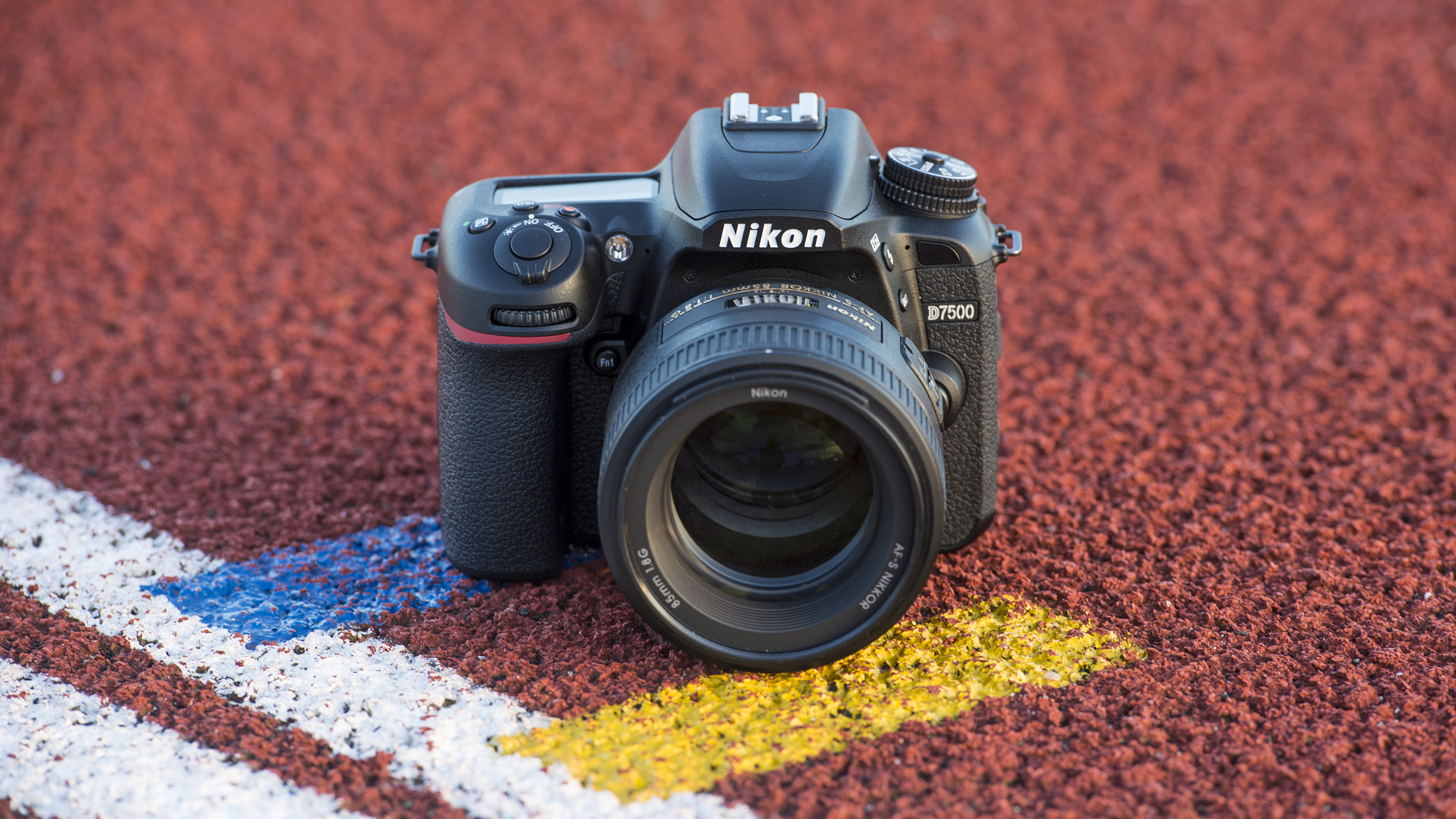
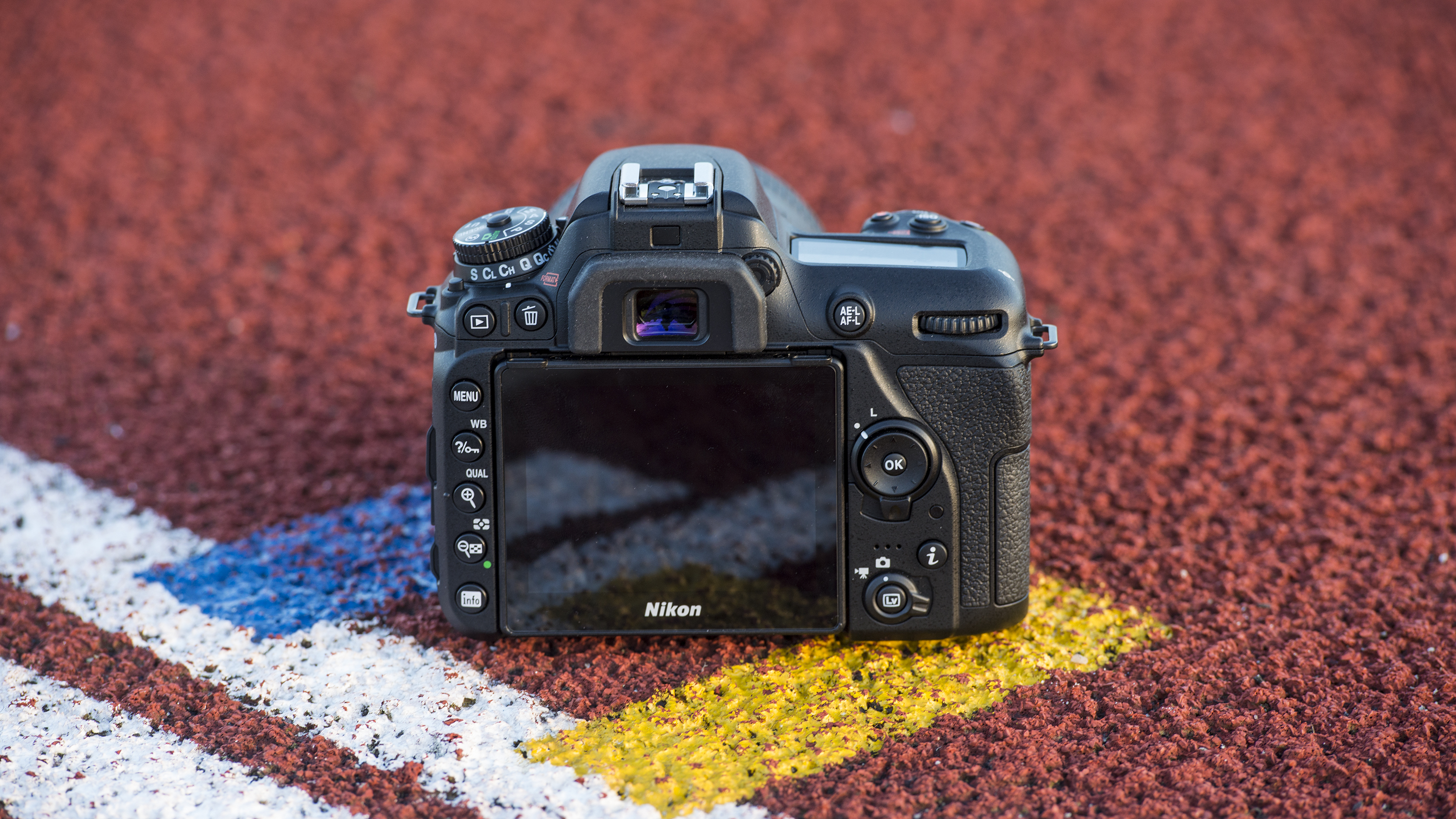
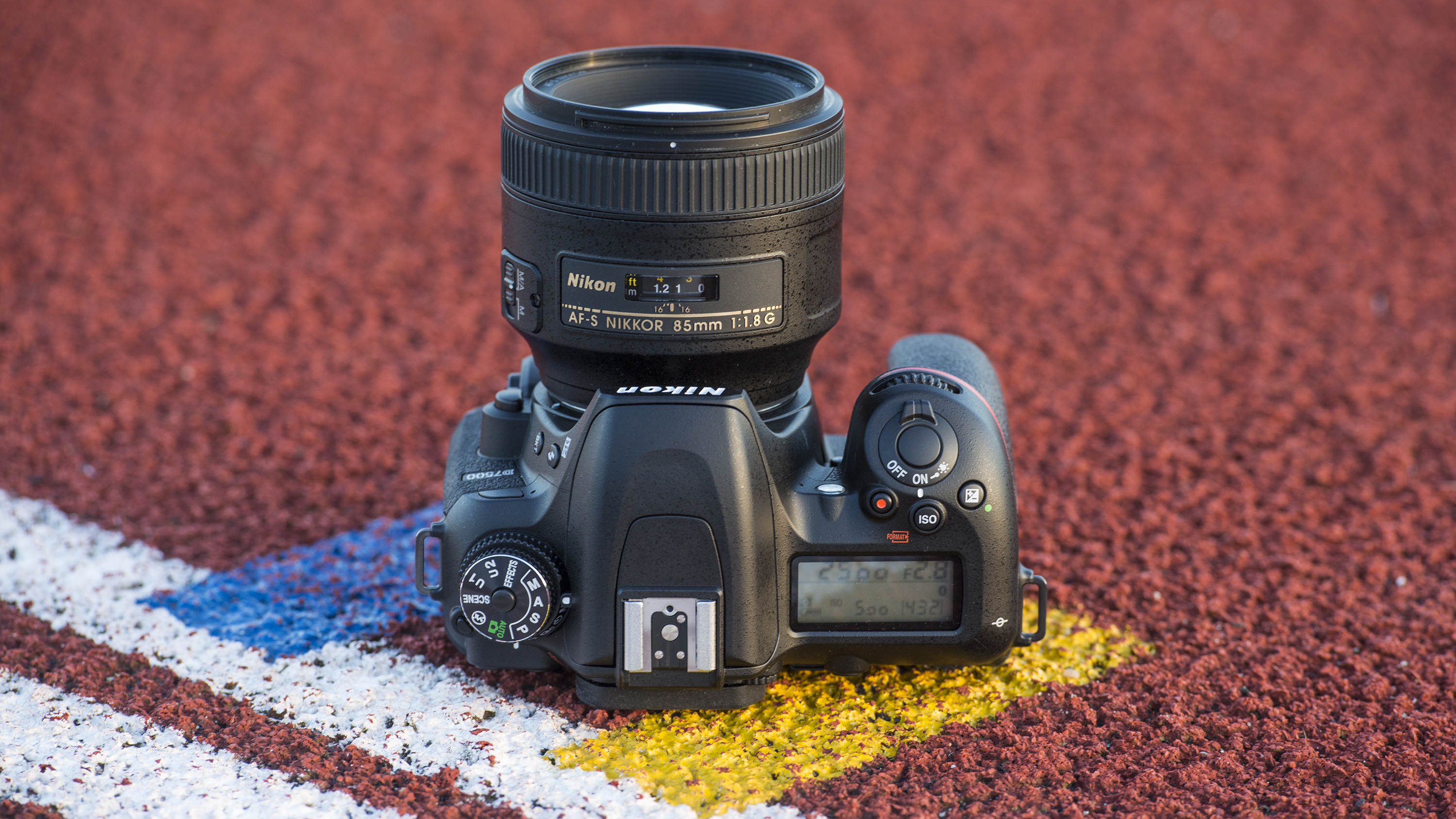
Specifications
Reasons to buy
Reasons to avoid
Nikon D7500 sample images
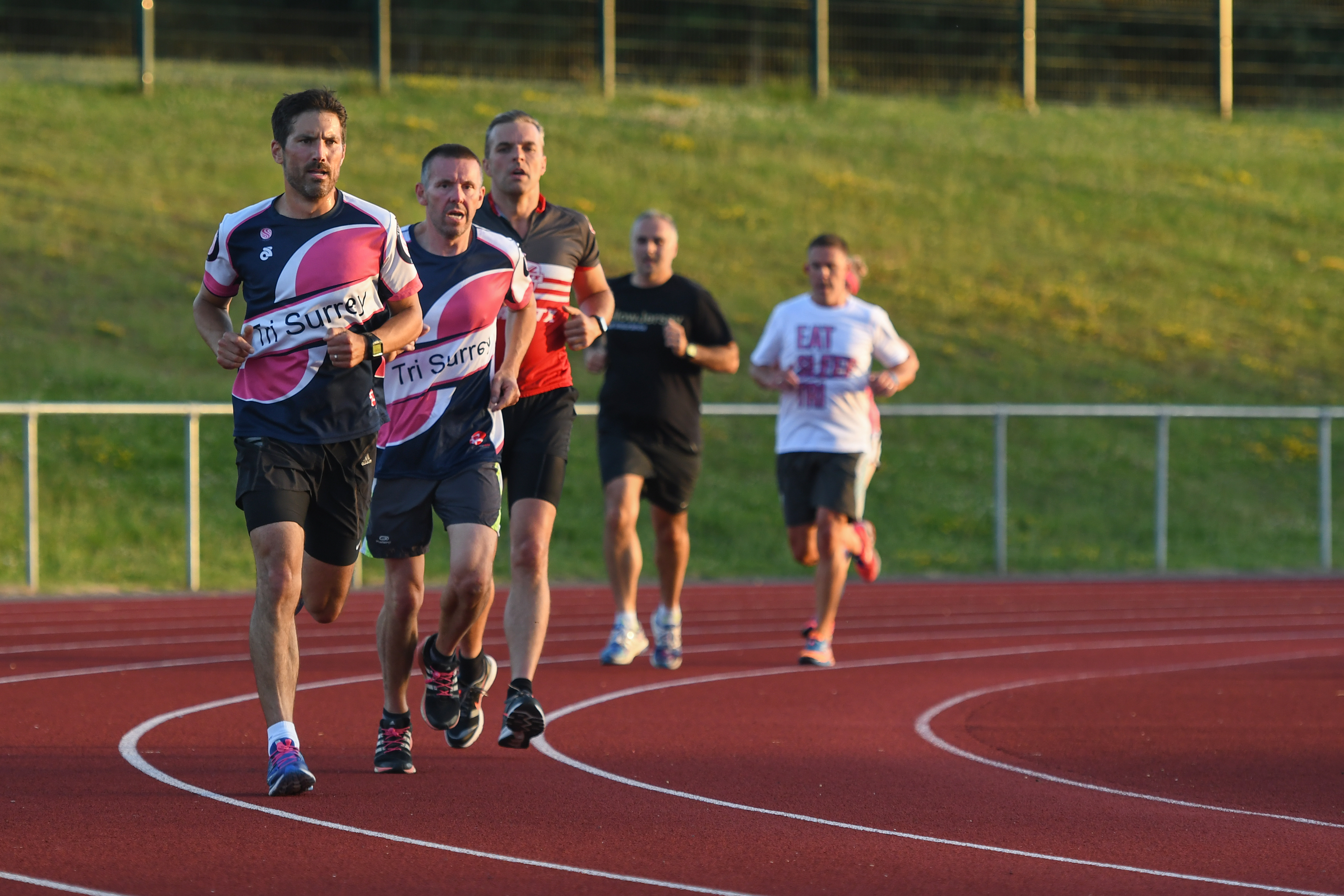



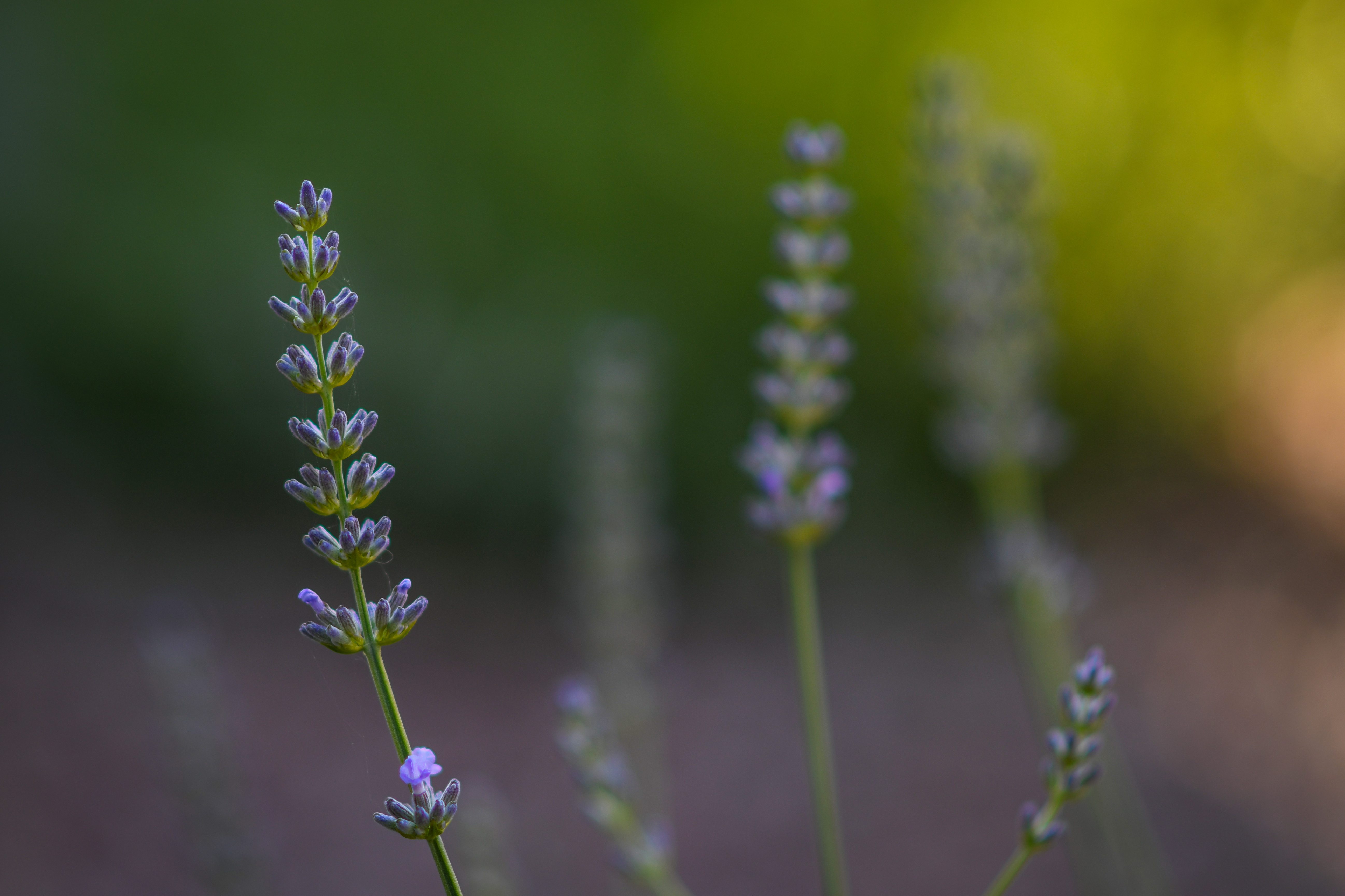
✅ You want chunky DSLR handling: With a deep grip, good ergonomics and rugged build, the D7500 offers all the hallmarks of classic DSLR handling.
✅ You want a DSLR to grow with: Thanks to reductions since its launch, you’re getting an enthusiast-grade shooting experience at an entry-level price.
❌ You need the cutting-edge autofocus: Its 51-point system does well enough, but it can’t compete with the latest subject-tracking skills of mirrorless rivals.
❌ You want a pocket-friendly camera: DSLR cameras like the D7500 are great in the hand, but large dimensions mean they’re less portable than others here.
DSLRs might be a dying breed, but I think the format still has a lot to offer for beginners who want to get their hands around a chunky camera with good ergonomics. That’s exactly what you’re getting with the D7500. With a weighty frame and weather-sealing, it’s a robust camera to learn with.
When it launched in 2017, the D7500 was pitched firmly at enthusiasts. Since then, its price has dropped to beginner-friendly territory, yet it’s still got the performance to keep up with newer models. It uses the excellent sensor from the D500 to shoot detailed stills at 20.9MP. Together with a capable autofocus system and burst speeds of up to 8fps, my review found the D7500 a DSLR that can comfortably compete with the best entry-level cameras of today.
I did note a few reservations in my review. While its tilt-angle touchscreen is useful, the resolution is low by modern standards. You’re also limited to just a single SD card slot. Its 51-point autofocus system doesn’t have the latest AI-powered subject tracking smarts, either. Even so, with an ever-falling price, I think the D7500 is the best DSLR camera for beginners.
Read our in-depth Nikon D7500 review
The best retro camera for beginners
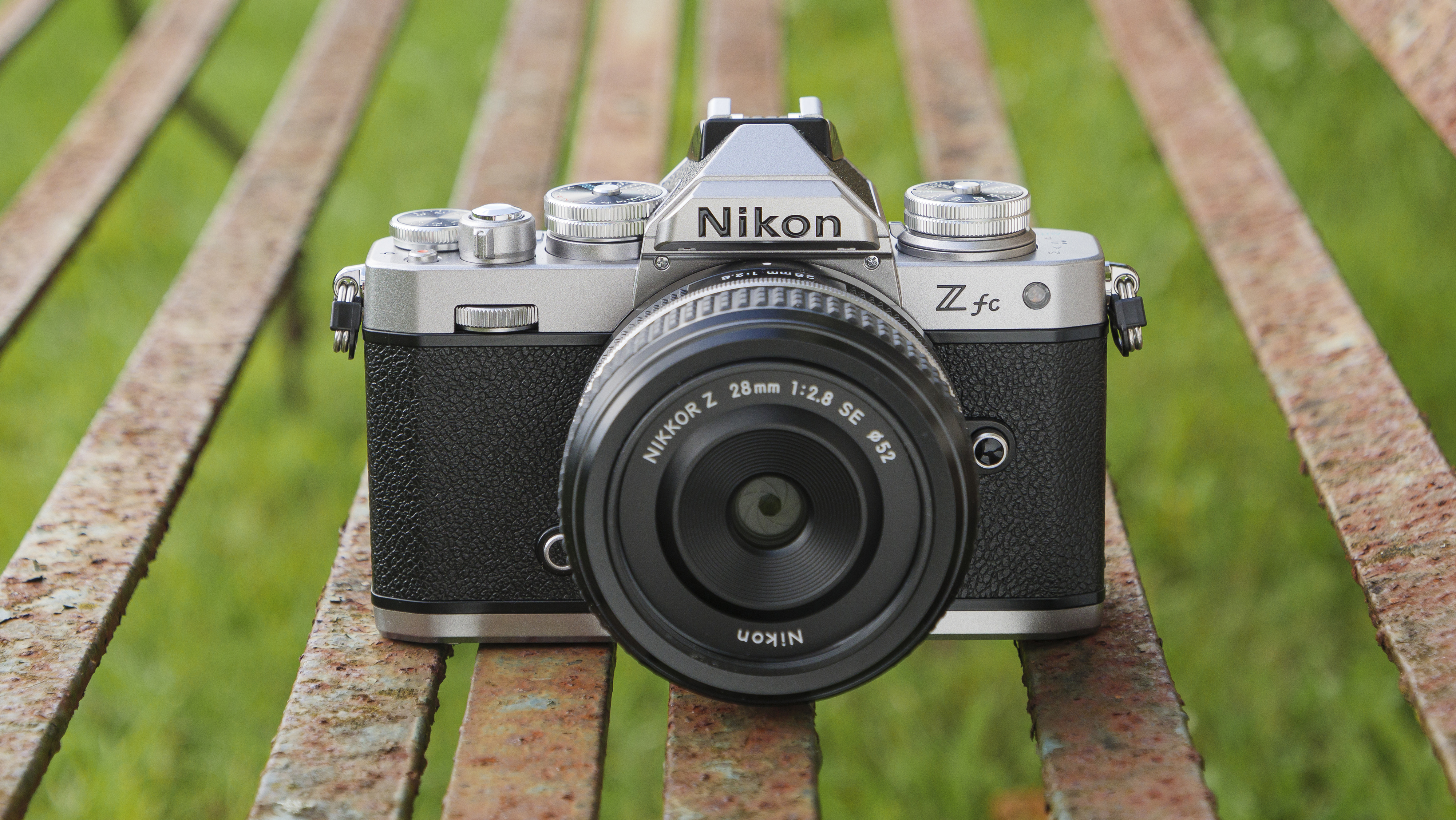

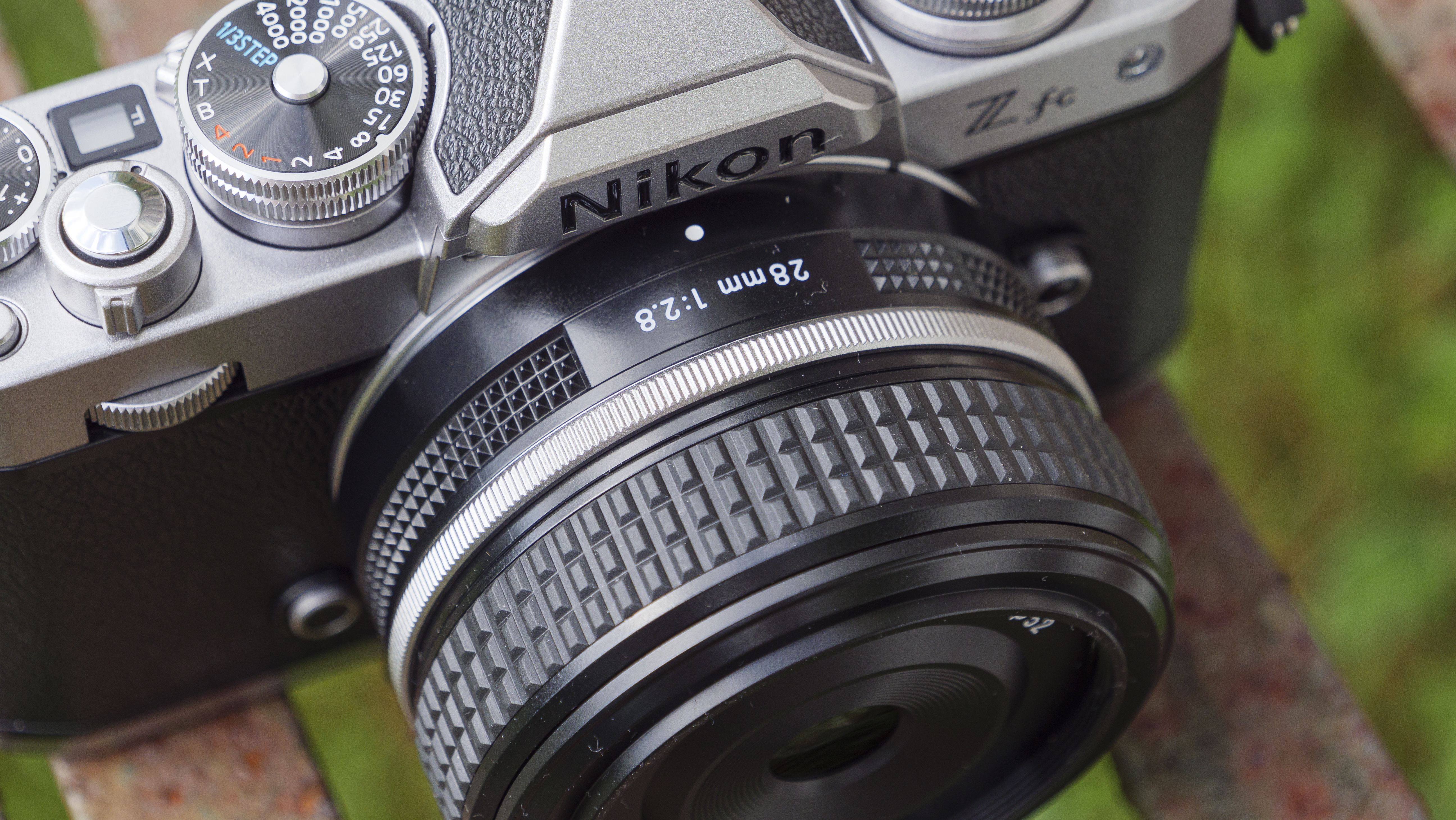


Specifications
Reasons to buy
Reasons to avoid
Nikon Z fc sample images
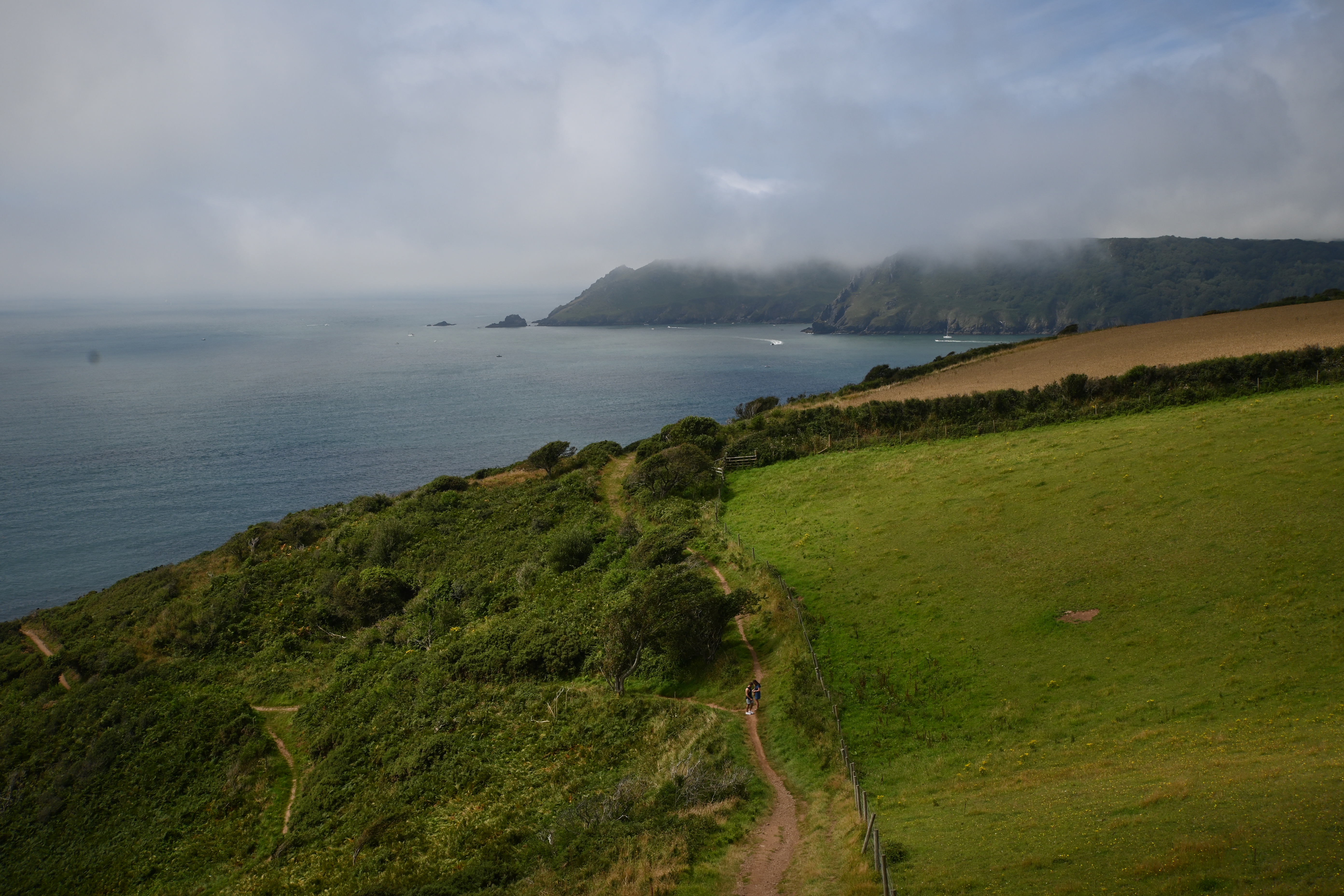
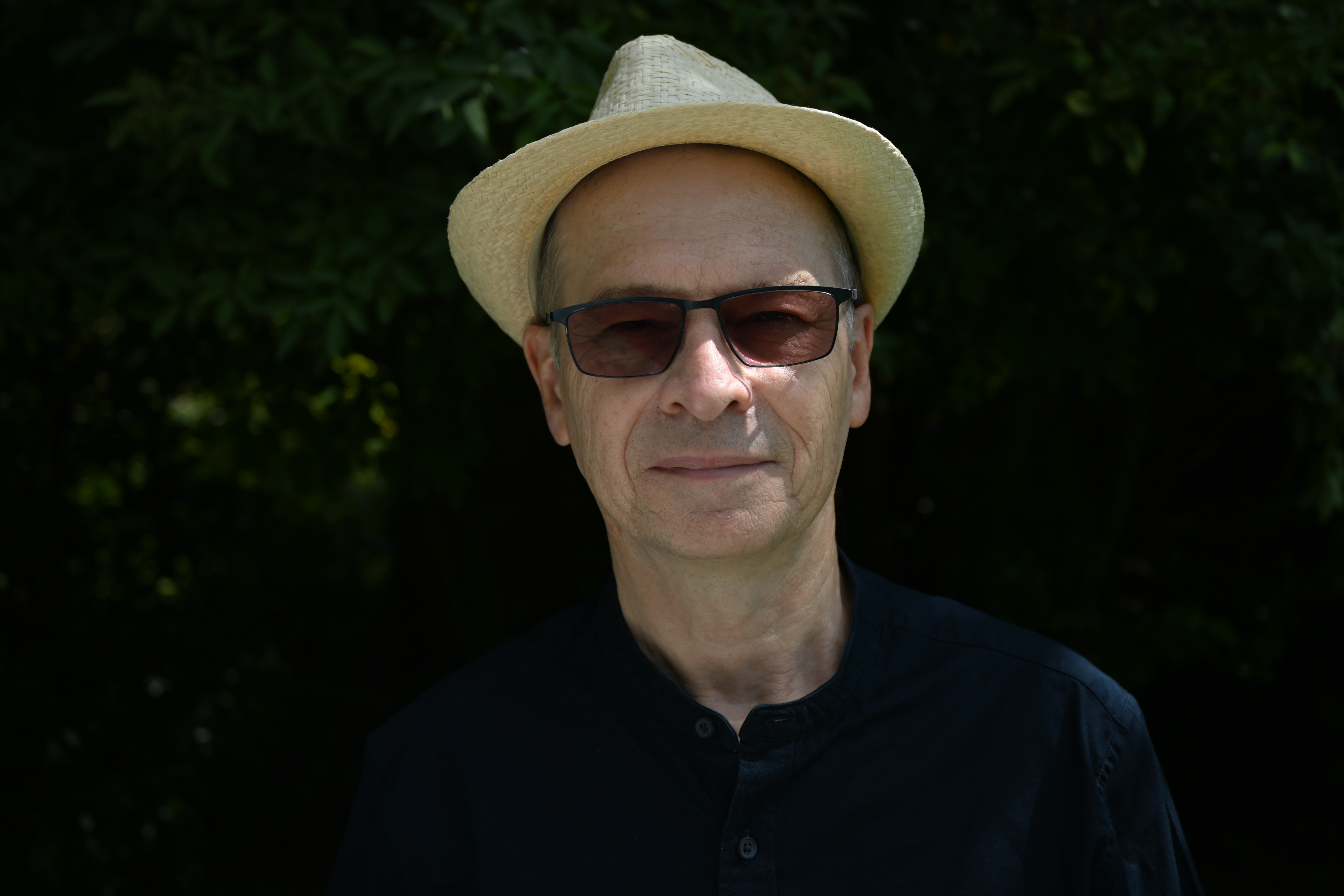



✅ You want the best-looking beginner camera: The Z fc is head-turning gorgeous. Enough said.
✅ You'd like to eventually take manual control: For the price, no other mirrorless camera has the number of exposure dials for direct manual exposure control.
❌ You need a rugged camera: The Nikon Z fc isn't the toughest beginner camera; something like the Olympus OM-D E-M10 Mark IV feels sturdier.
❌ You'd like a developed system: Nikon hasn't put the same energy into developing its APS-C system with new lenses like it has full-frame.
At its heart, the Nikon Z fc is the same as the Nikon Z50. That’s good news, because its 20.9MP APS-C sensor and hybrid autofocus system are capable of producing detailed stills and solid 4K footage at 30fps. What sets the Z fc apart is its body, which has been designed in honor of the classic Nikon FM2. It has broadly the same dimensions as its analogue ancestor and no shortage of retro style to suit its Eighties origins.
Those thoughtful throwback cues mean the Nikon Z fc is a distinctive camera. It’s also even better for beginners than the Z50, thanks to a vari-angle display which makes creative framing more flexible. It’s not weather-sealed (not that you’d want to risk using such a stunning camera in inclement weather) and it also lacks the deep grip of the Z50.
If you regularly fiddle with exposure settings, I found the dedicated exposure dials to be a more intuitive method than generic command dials, once you have the hang of it. The dedicated dials for ISO, shutter speed and exposure compensation look great too – it's what has set Fujifilm apart before. Native lenses also offer a lens control ring that can be customized between focus and aperture control. Combine that with the Z fc's auto ISO with shutter speed control, you'll be good to go in no time, accommodated to your shooting style.
Read our in-depth Nikon Z fc review
The best compact camera for beginners
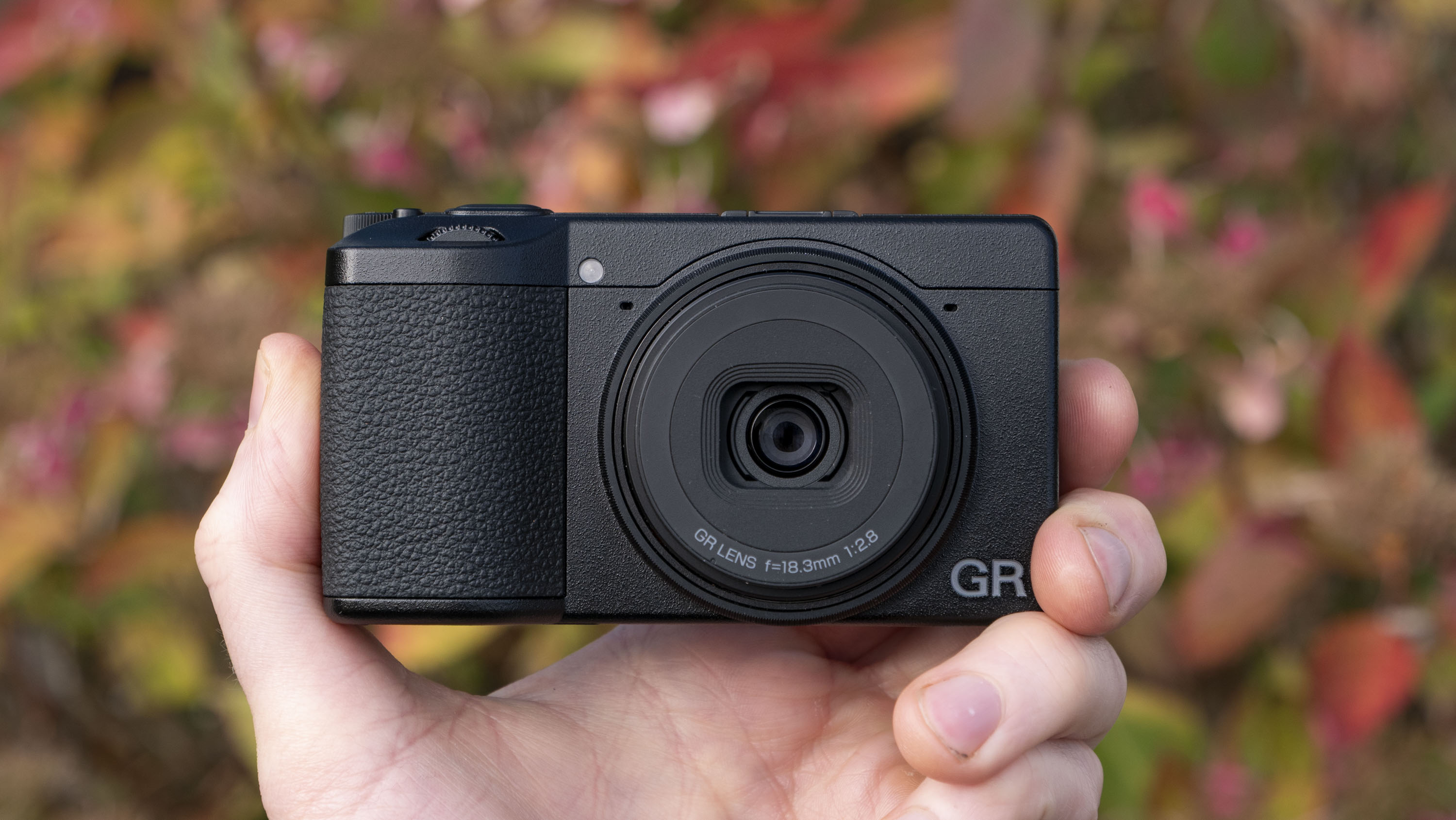
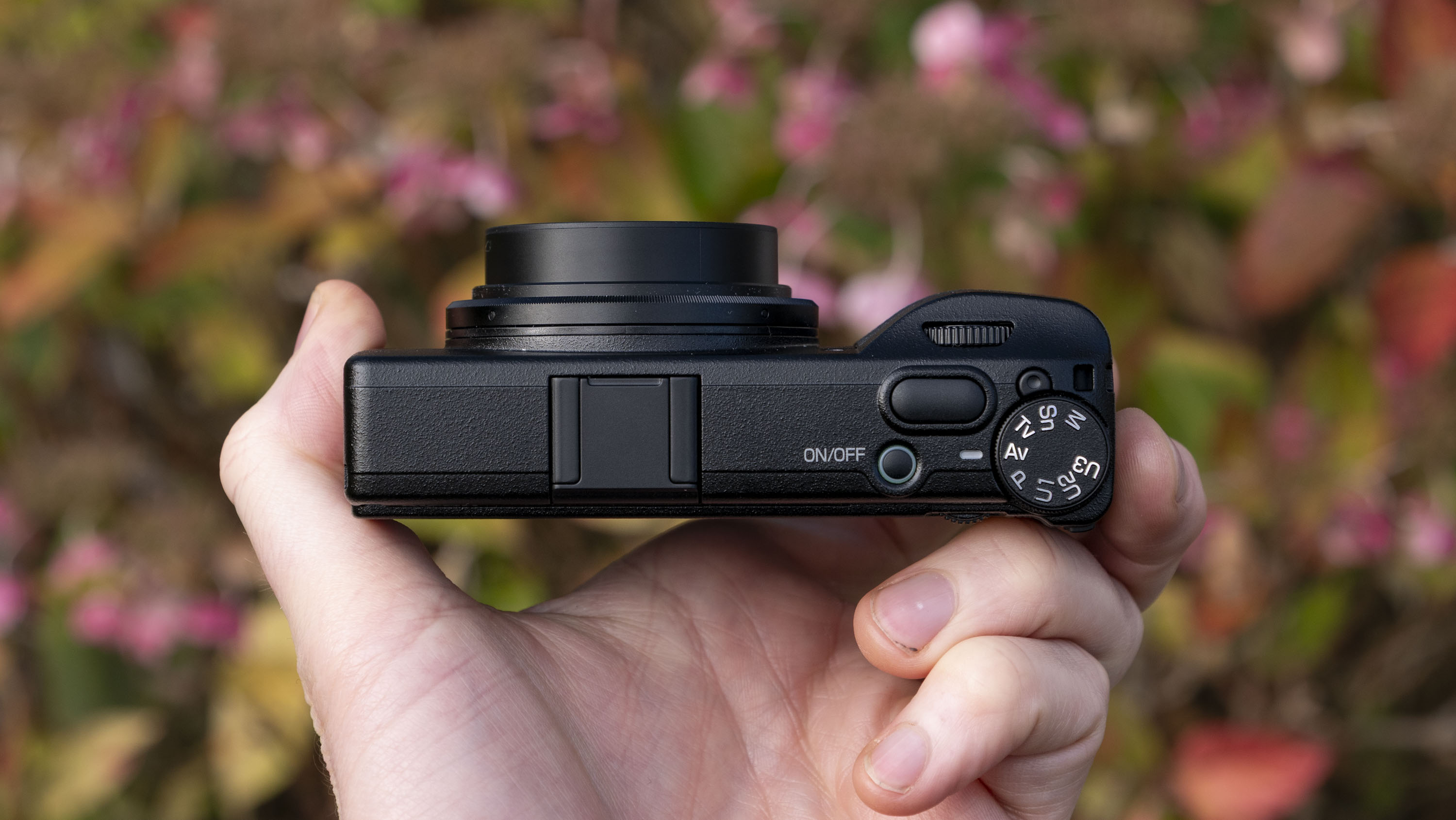
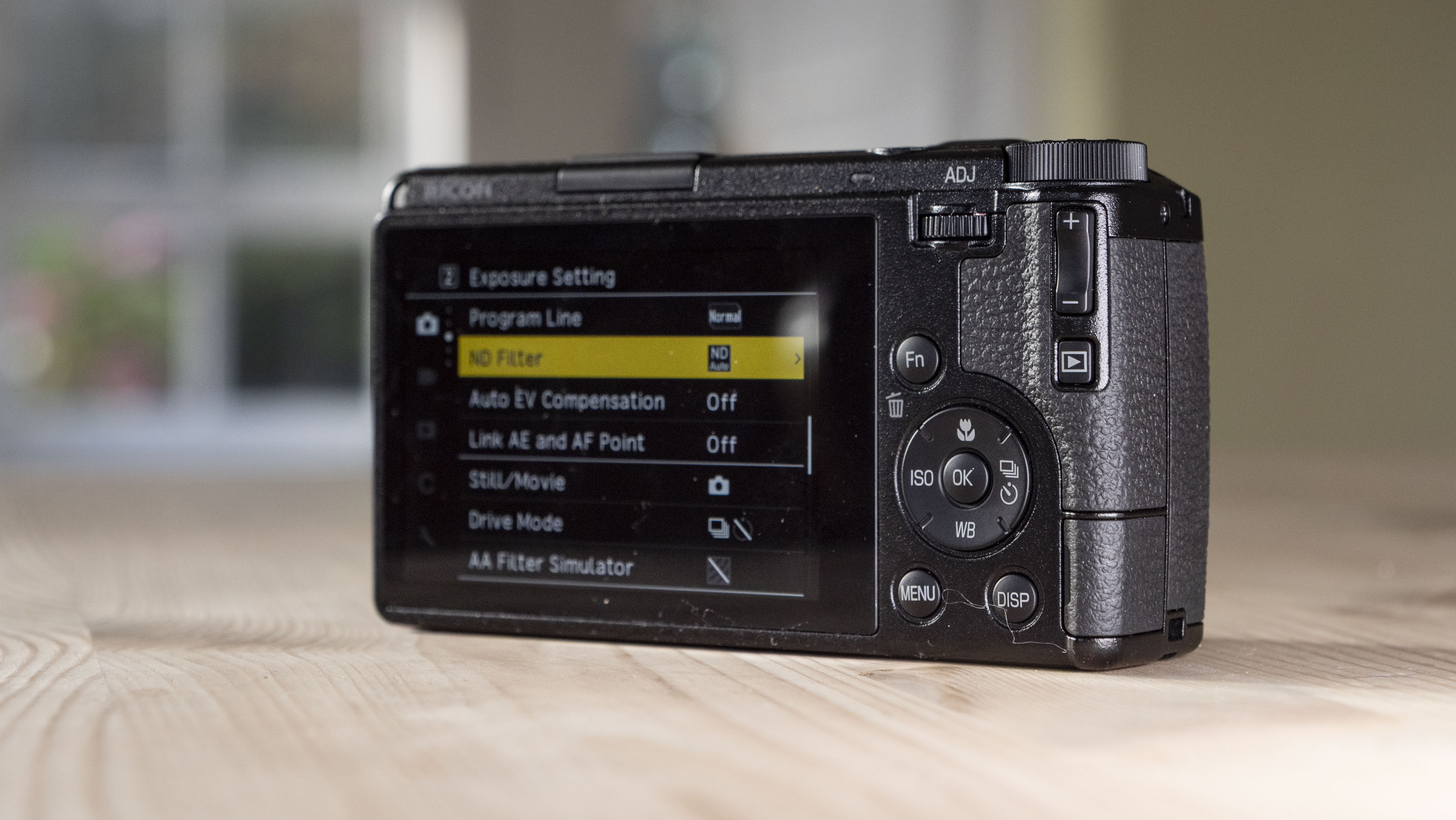
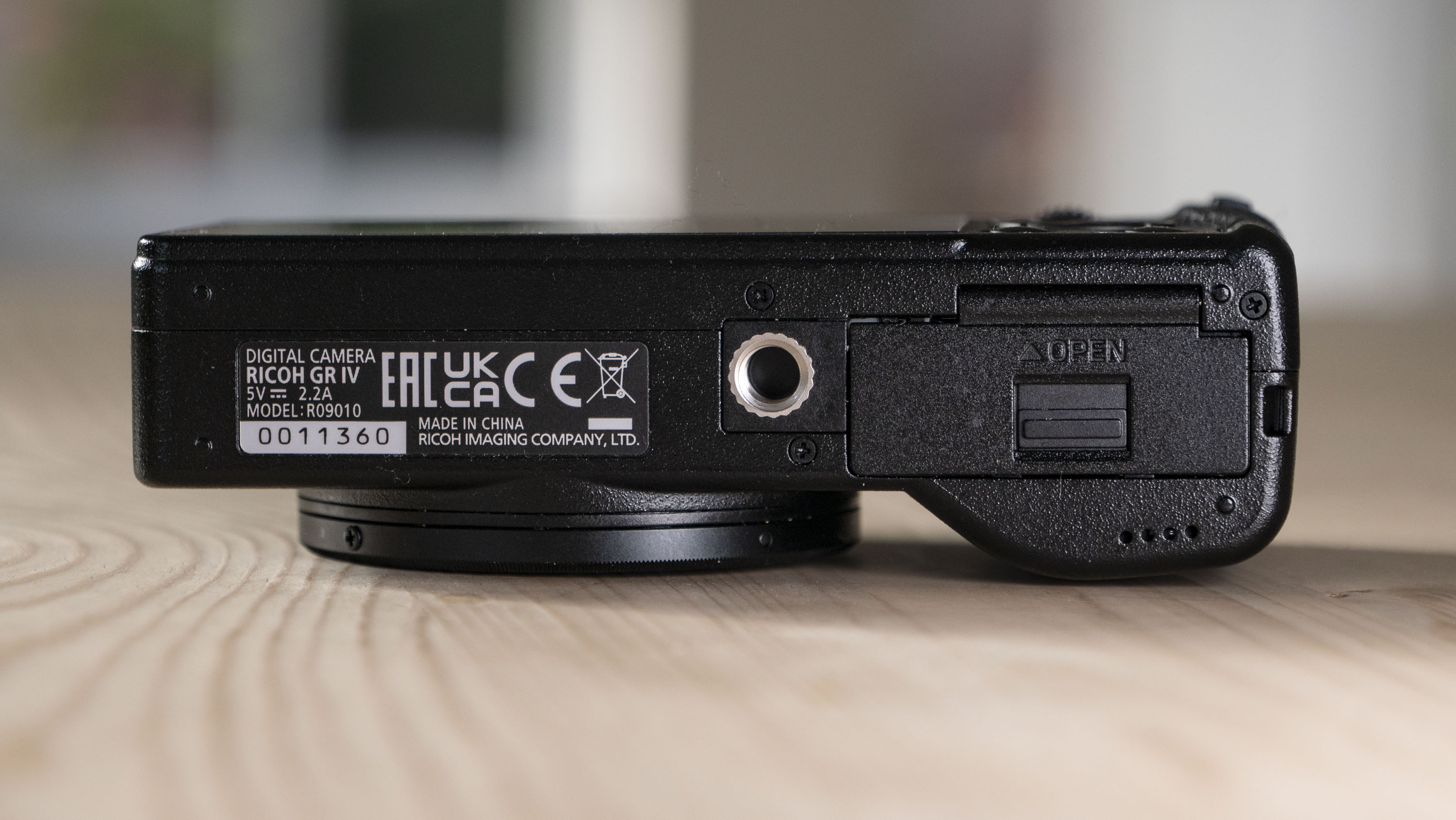
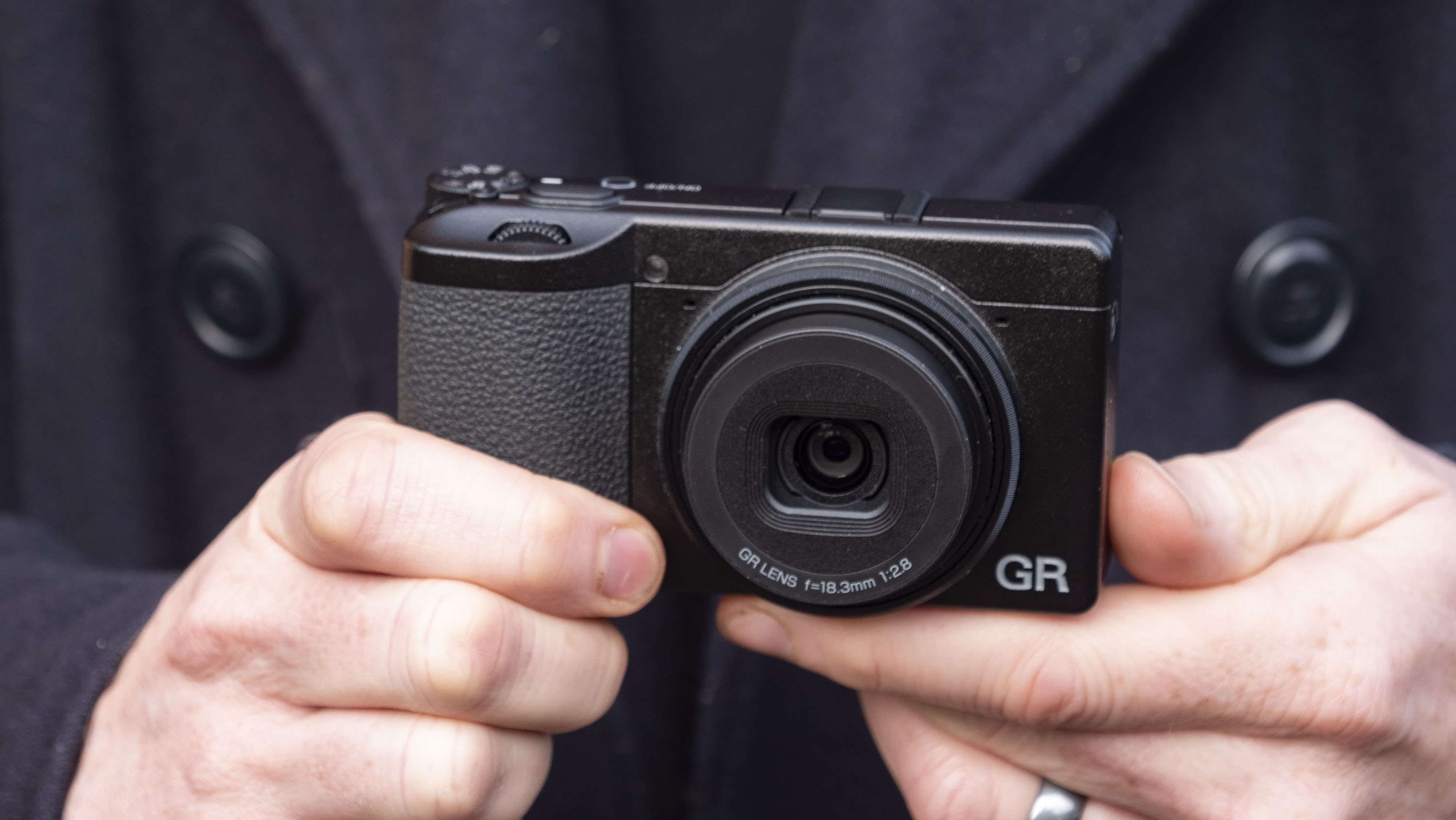
Specifications
Reasons to buy
Reasons to avoid
Ricoh GR IV sample images


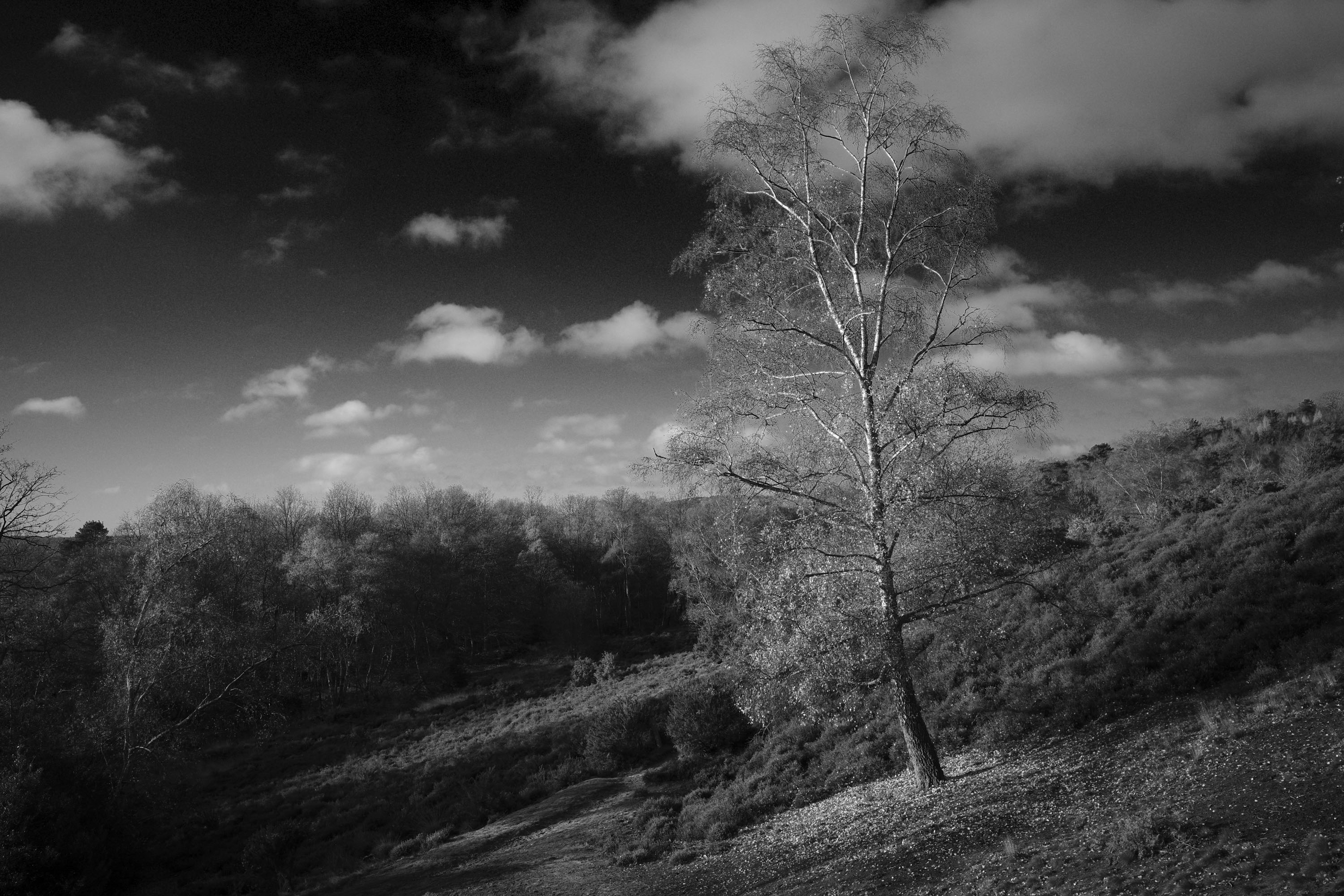
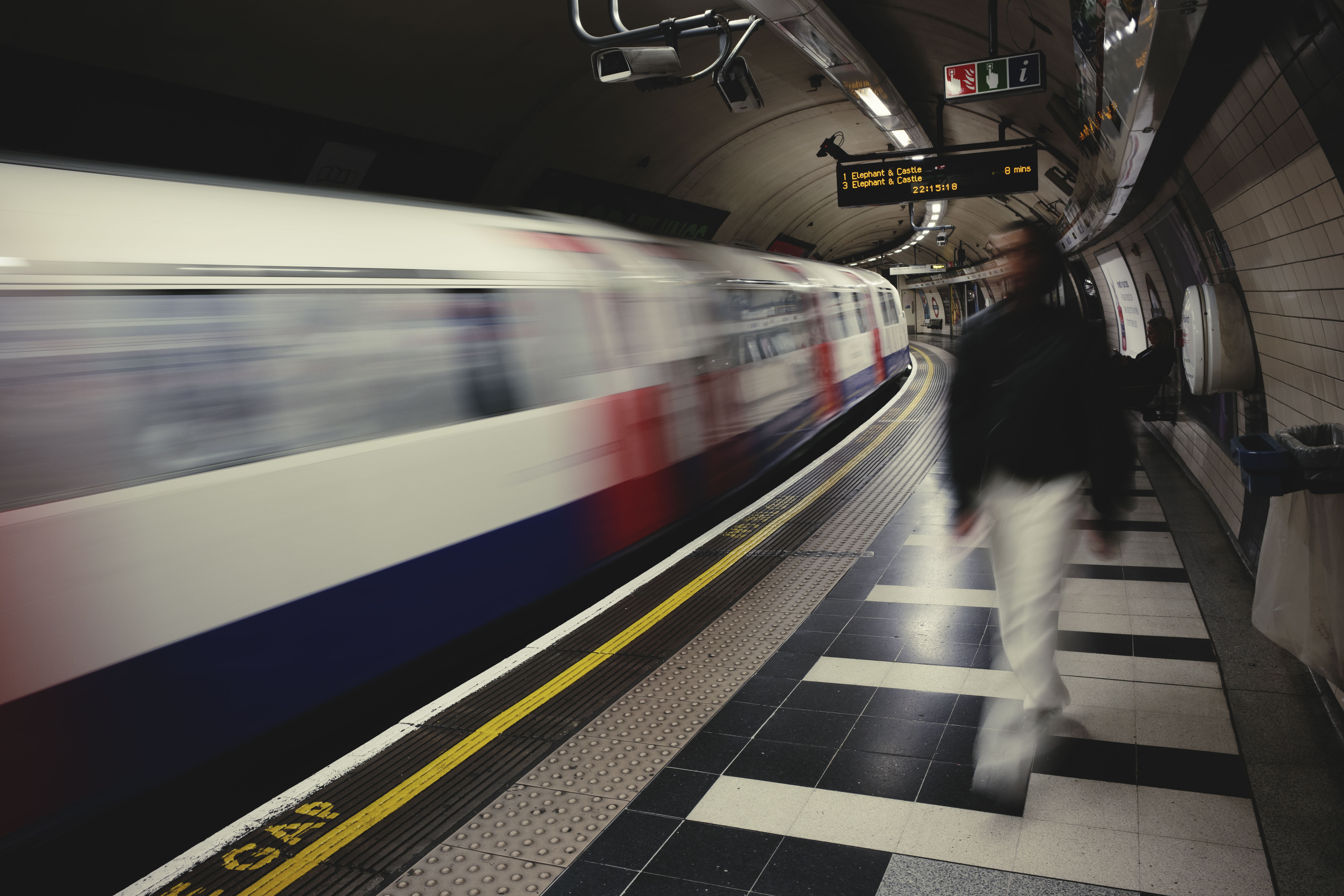

✅ You want a true pocket camera with superb image quality: The 5-axis stabilized 26MP APS-C sensor and refined 28mm lens are a superb combo for photo-philes.
✅ You want a smartphone step up: Slipping into a pocket, the GR IV is a camera that you can carry with you almost everywhere – just don't take it to the beach.
❌ You want a rugged camera: The camera isn't weather sealed, and as such you need to look after it – as I know from my experience with my GR III!
❌ You shoot video a lot: Maxing out at 1080p, video recording is very much an afterthought in the GR IV. It's nice to have all the same, but you'll be better off using your phone.
The GR point-and-shoot series has proven something of a cult classic for Ricoh, prized by photographers for its truly pocketable size and excellent photo quality. I'm happy to report that this latest version continues the tradition, squeezing a brilliant stabilized 26MP APS-C sensor into the tiny body while making improvements to battery life and the inclusion of 53GB of built-in storage space. With its fixed 28mm lens and lightning-quick startup time, it's a truly excellent everyday carry camera for street photography and travel snaps.
It's not going to suit everybody, mind you, because of its somewhat sluggish autofocus, lack of a built-in flash and the way it treats video as an inconvenient afterthought. It's also not weather sealed, which feels like an oversight in a camera that seems built to go everywhere. That said, the bottom line is that no other camera this small can shoot photos that look this good.
Read our in-depth Ricoh GR IV review
The best full-frame camera for beginners
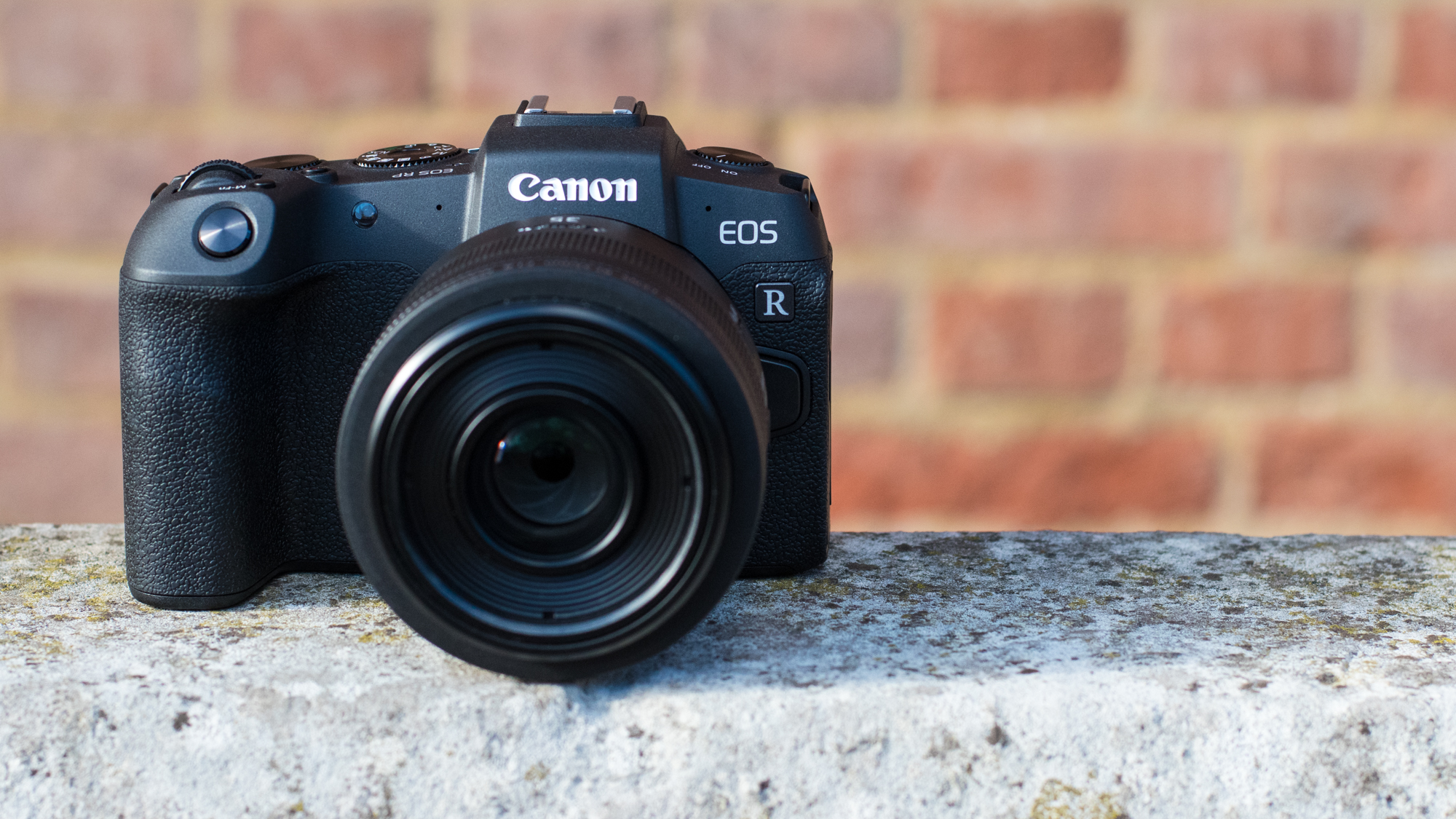
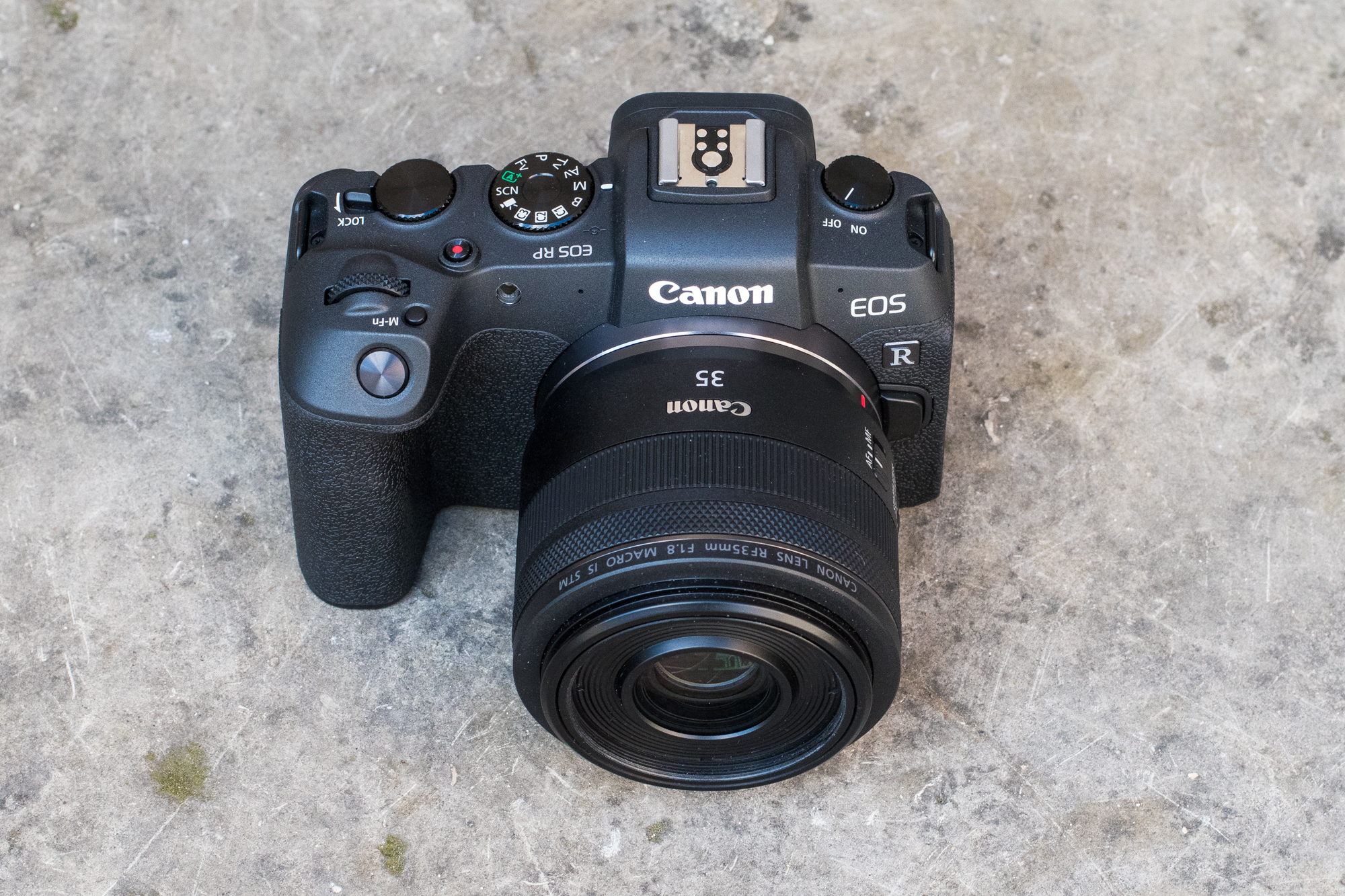
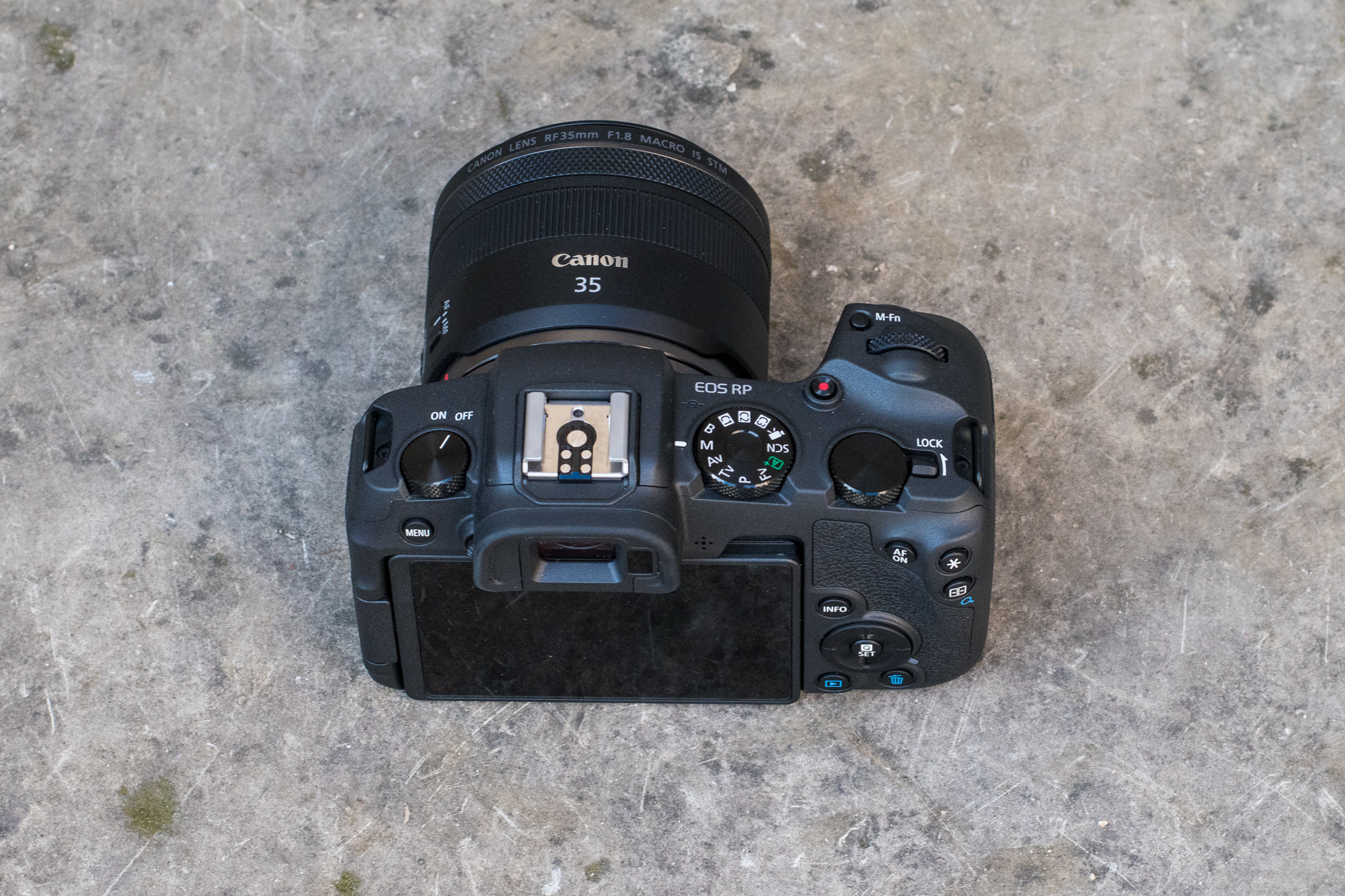
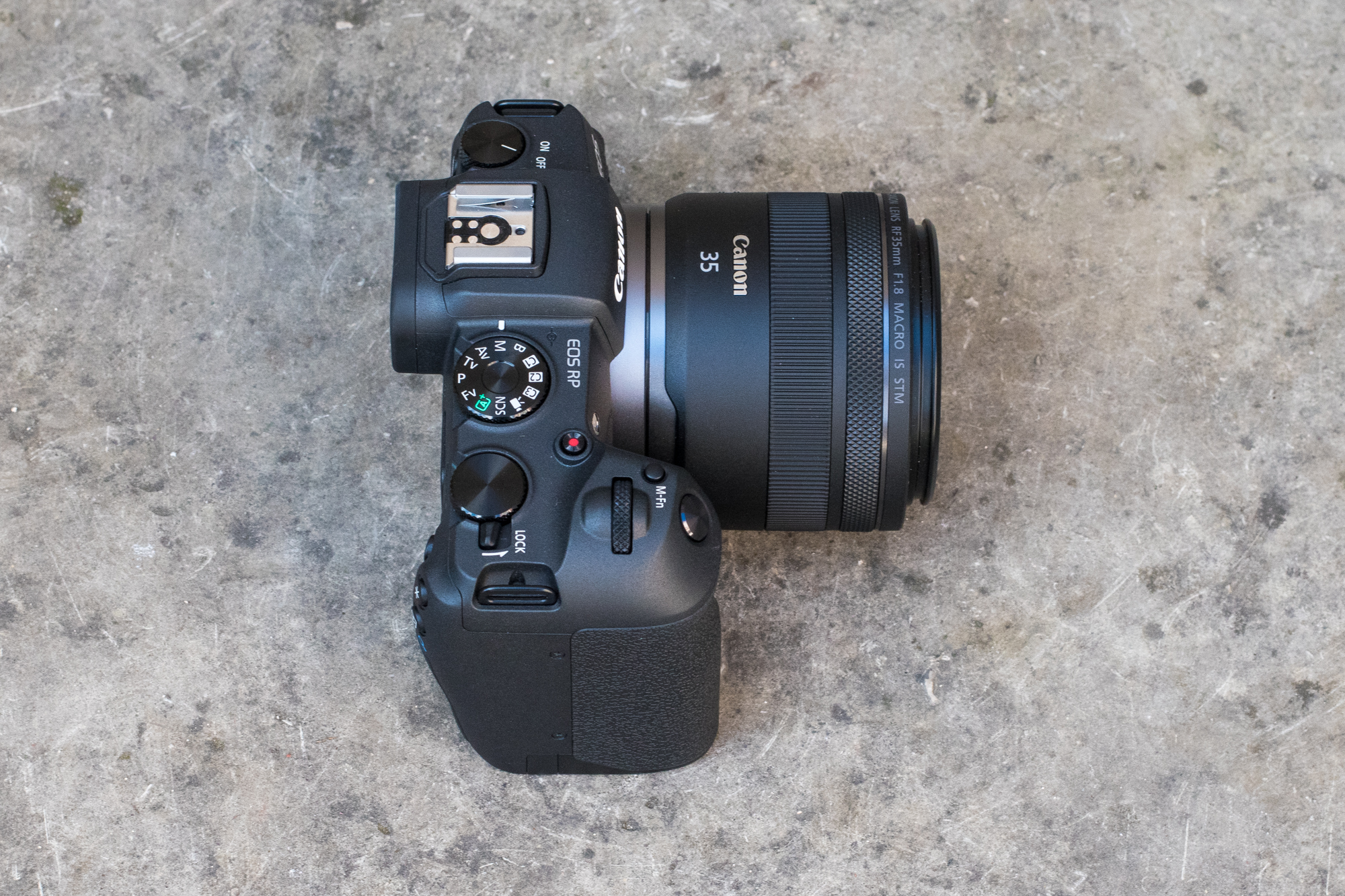
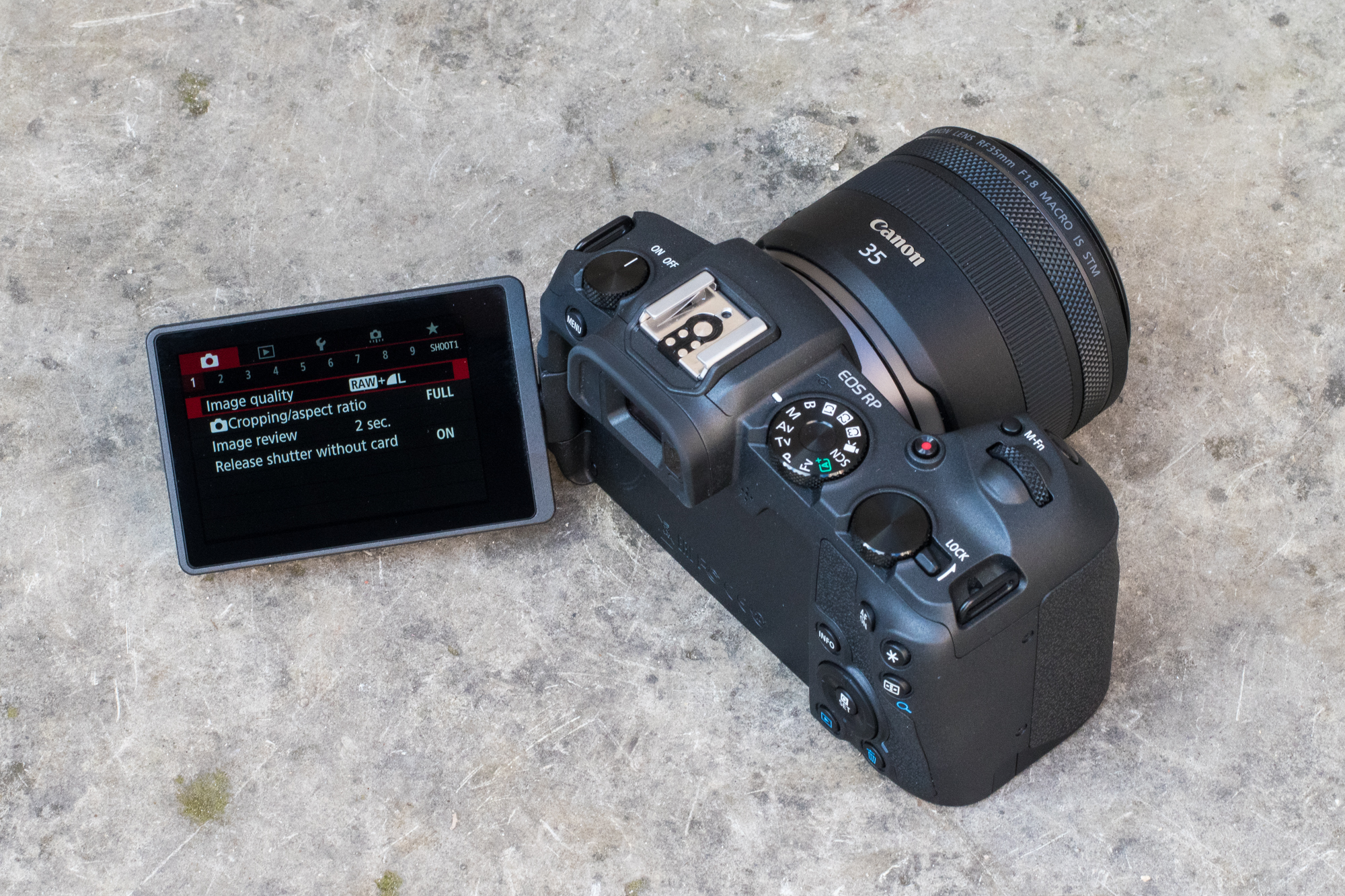
Specifications
Reasons to buy
Reasons to avoid
Canon EOS RP sample images



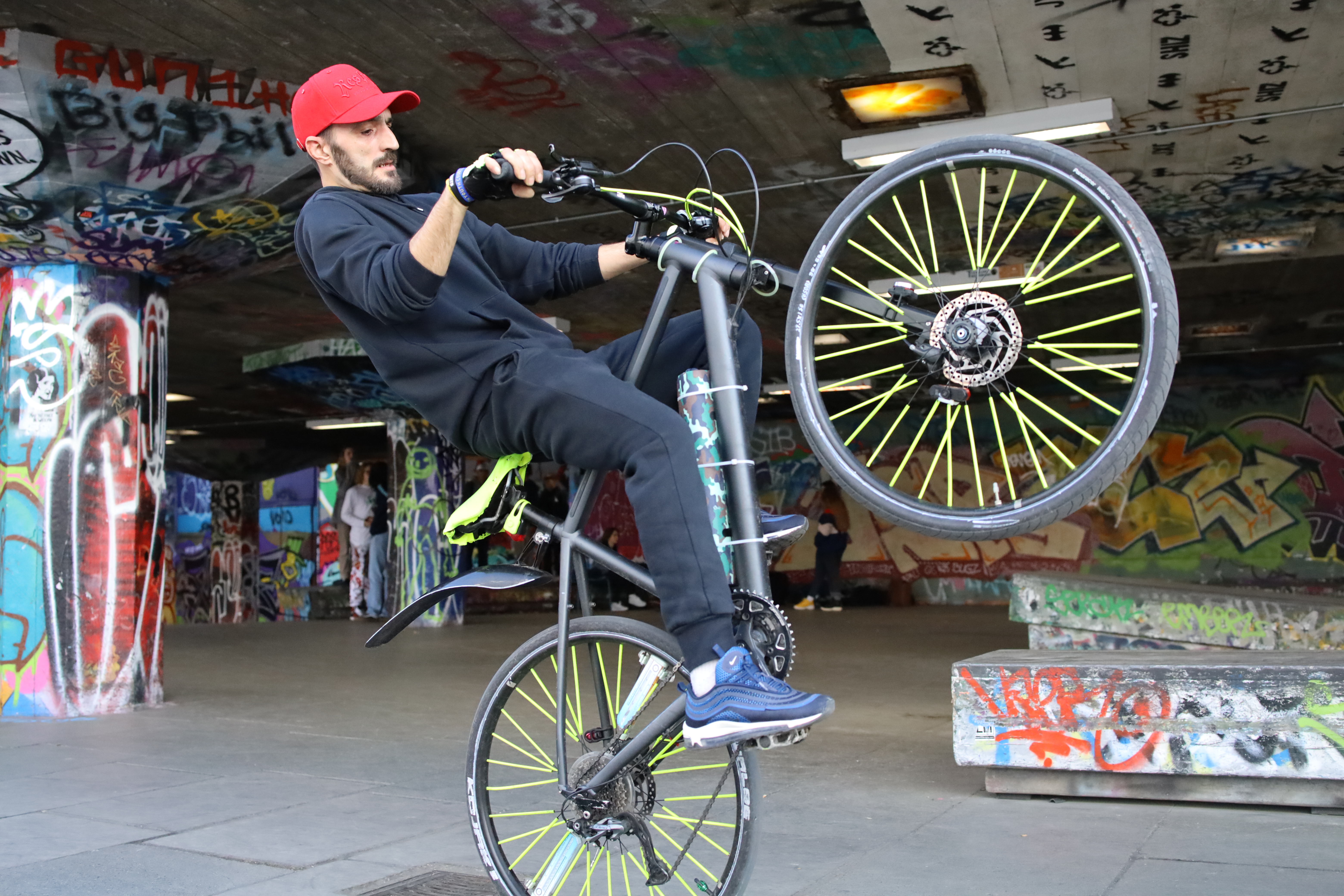

✅ You want to see what full-frame is all about: With next-level quality, there's a reason that full-frame is such a popular format with pros, and you won't find a mirrorless full-framer that costs less new, than the EOS RP.
✅ You're mainly wanting to try photography: Those big pixels, generous buffer and solid autofocus performance combine for superb stills, but the EOS RP's video skills now feel dated.
❌ You want a lightweight system: I'd hardly call the EOS RP weighty, but full-frame lenses are almost always bigger and heavier than smaller Micro Four Thirds / APS-C format equivalents.
❌ You need in-body image stabilization: The EOS RP doesn’t benefit from sensor-based image stabilization, so you’ll need a stabilized lens for pin-sharp shots.
Full-frame is now accessible to more people than just pros, especially with affordable models such as the EOS RP on the scene, which is probably the lowest price full-frame mirrorless camera available. And it's a logical choice for anyone who's used Canon before and familiar with the user interface, but keen to step up to mirrorless.
The EOS RP meets the core competencies that I’d look for in a beginner-friendly camera; it shoots decent 26MP stills, ably supported by a solid autofocus performance and a buffer that's better than expected for reasonable burst shooting skills. Design is pleasantly robust too, thanks to the lightweight magnesium alloy chassis.
Yes, it's a little long in the tooth now given its 2019 release, and you'll find newer full-frame cameras with better video performance; 4K video is cropped, while rolling shutter is particularly obvious, while battery life could be better. But if photography is your main focus, then I don't feel like the years matter – the RP remains a compelling option for the money, especially given the huge discounts it usually gets during seasonal sales. Canon has regularly released new lenses since the EOS RP, too, such as the impressively affordable RF 45mm F1.2 STM, meaning you have decent options to grow your skills and elevate your quality.
Read our in-depth Canon EOS RP review
The best point-and-shoot camera for beginners
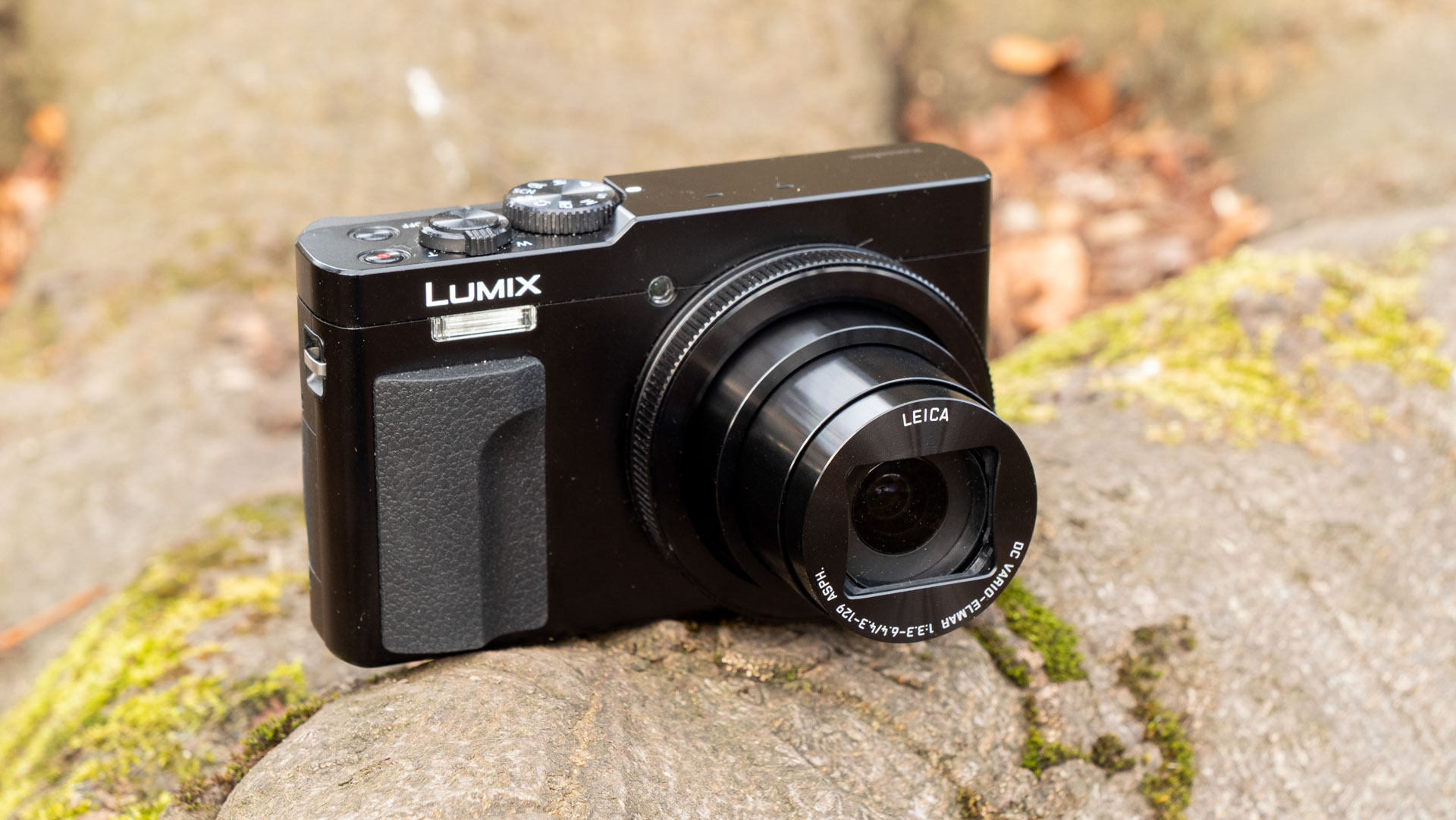
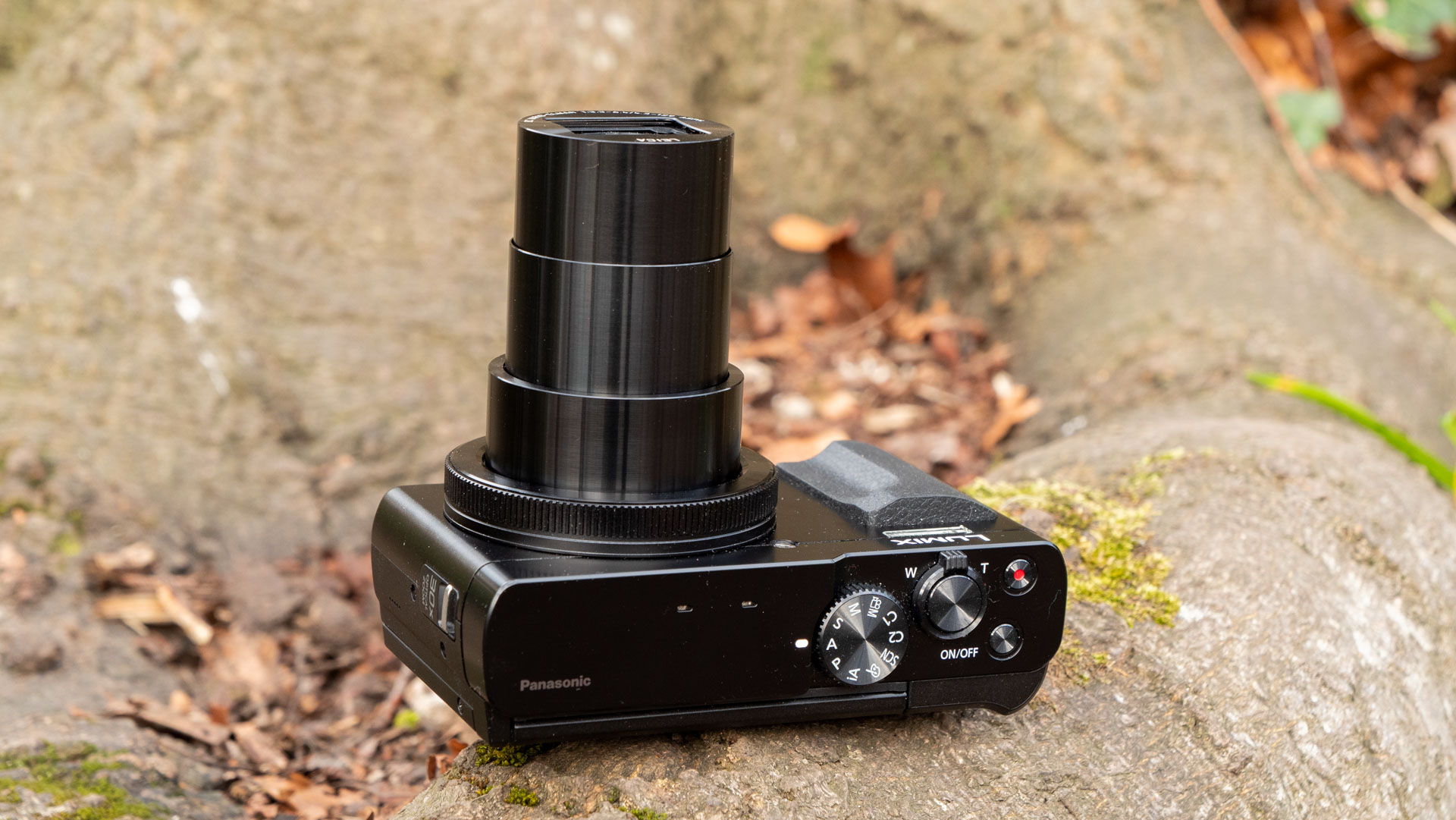
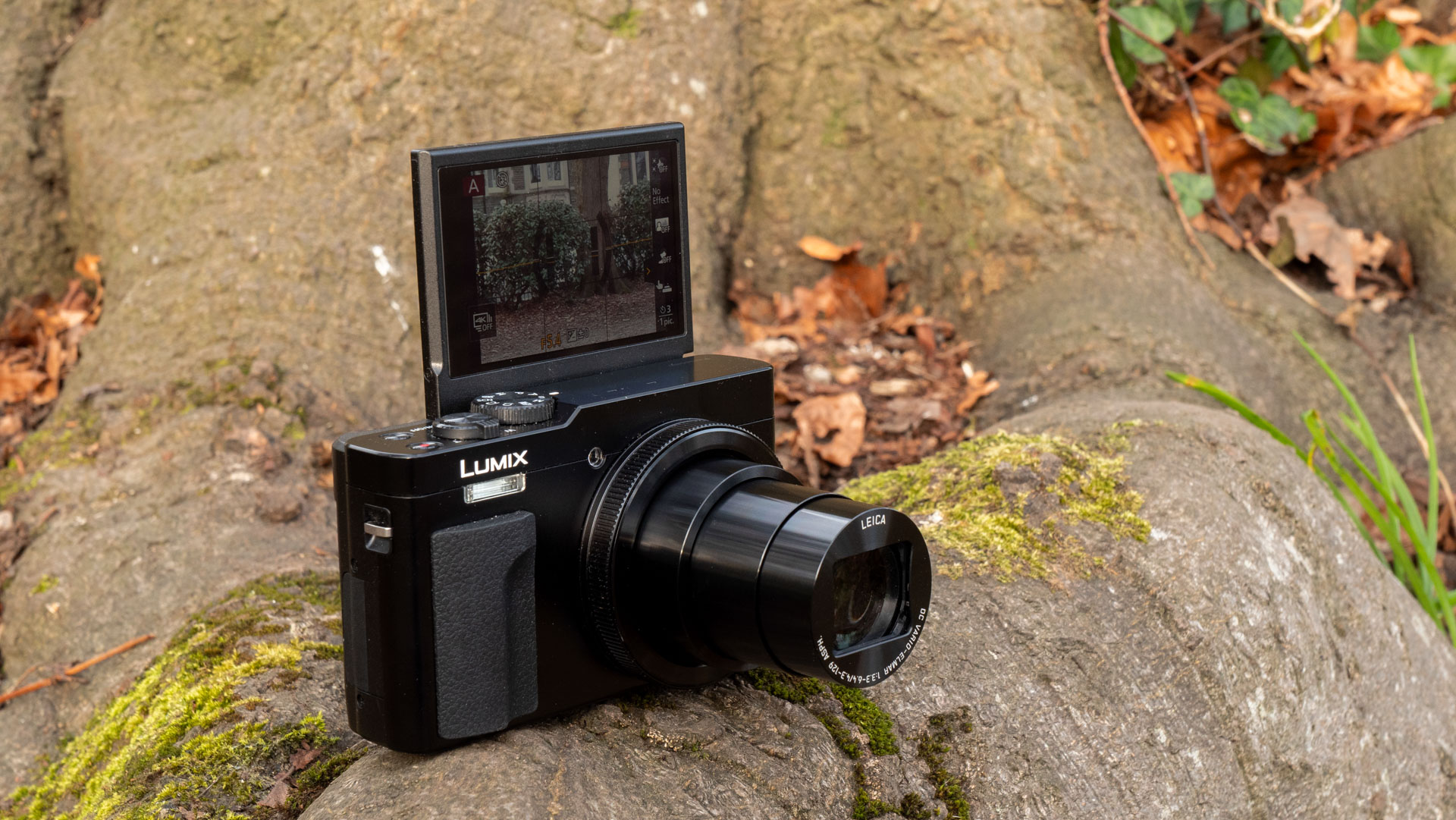
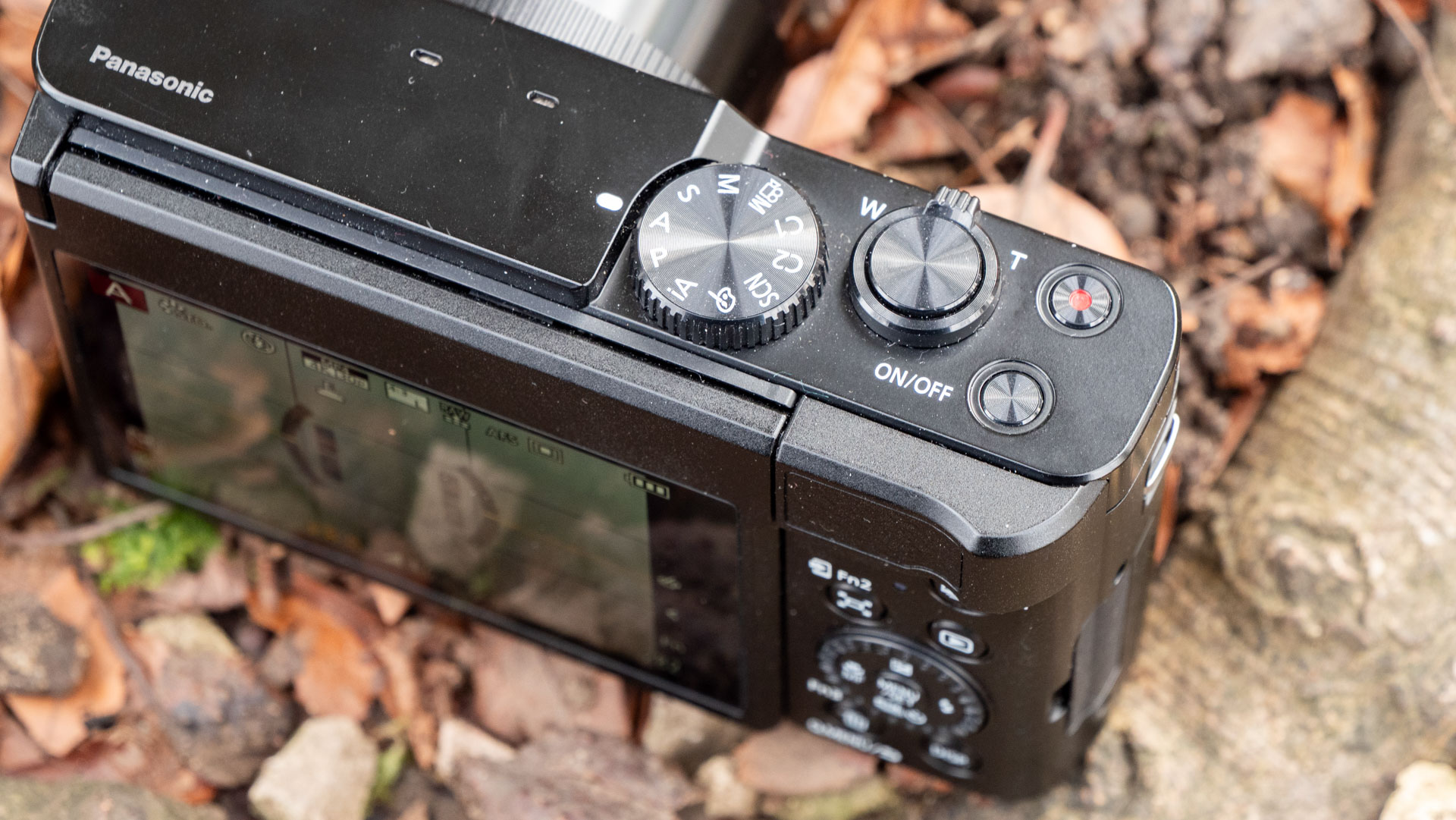
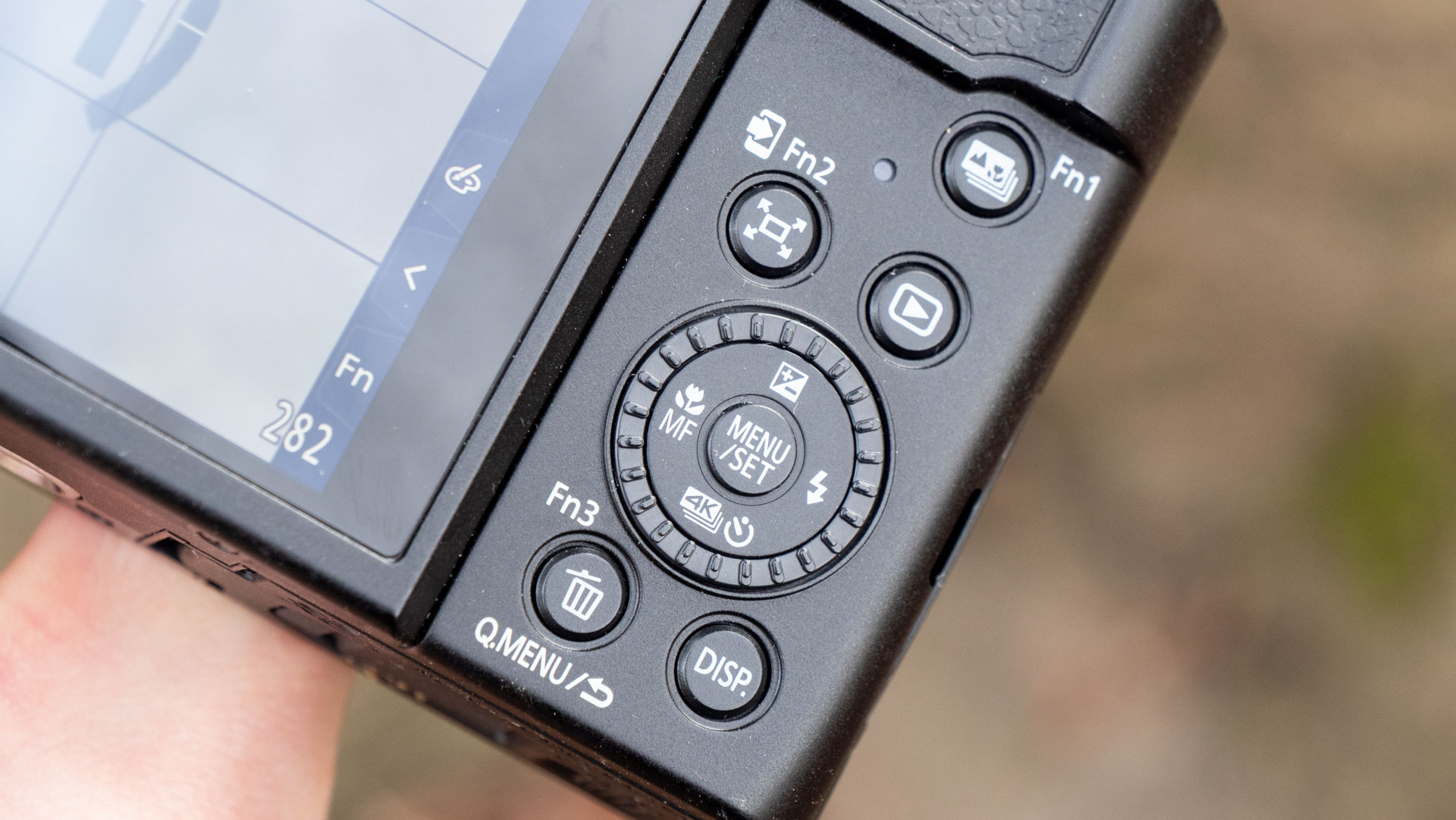
9. Panasonic Lumix ZS99 / TZ99
Our expert review:
Specifications
Reasons to buy
Reasons to avoid
Panasonic Lumix ZS99 / TZ99 sample images

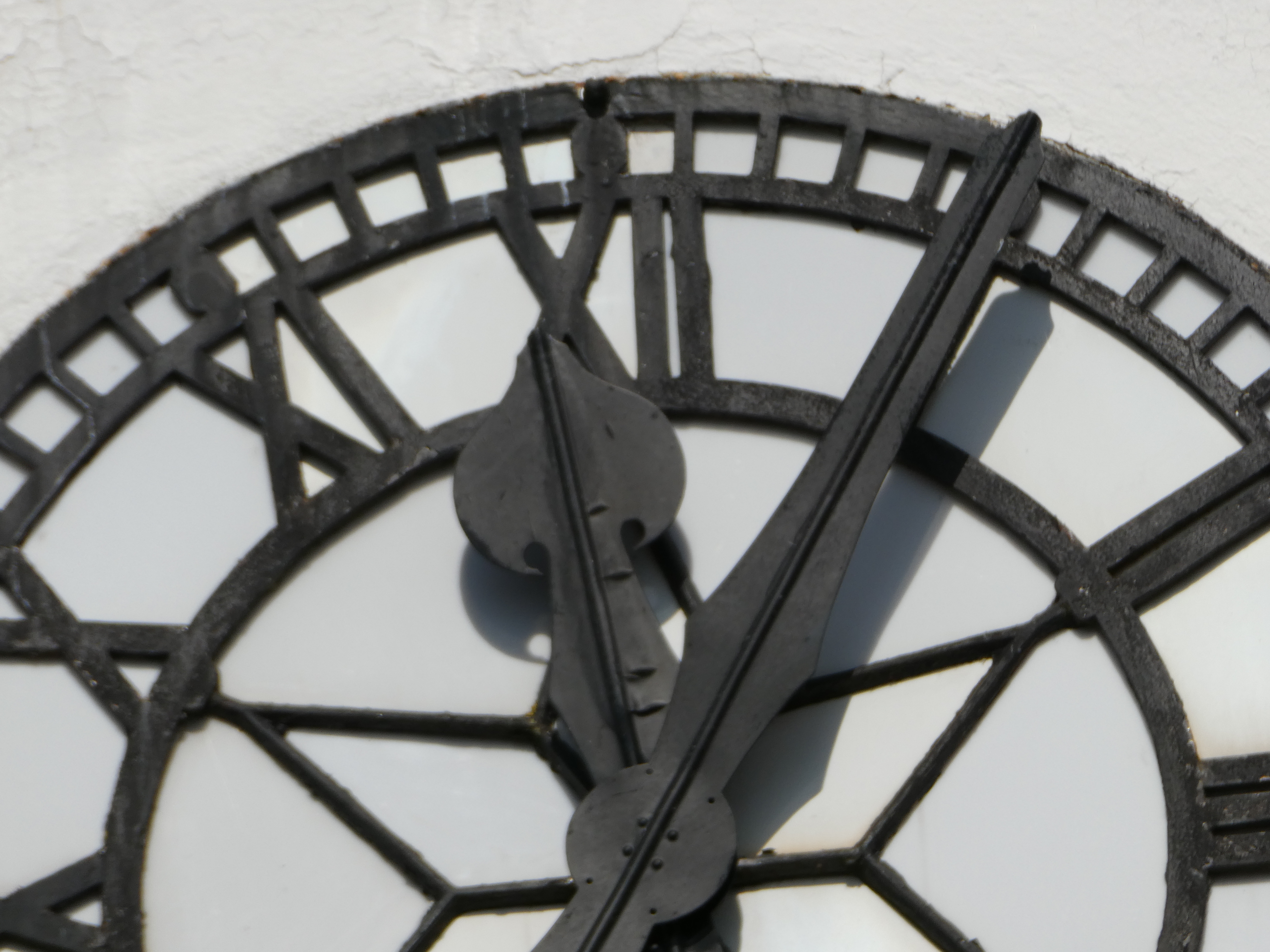



✅ You want a phone-beating zoom: The ZS99 / TZ99's mega 30x optical zoom range is undoubtedly its top feature.
✅ You shoot selfies: The 3-inch tilting touchscreen can flip up 180 degrees for easy selfies, up to 20MP and with five-axis image stabilization.
❌ You like the idea of a viewfinder: Sadly Panasonic removed the viewfinder from the Lumix ZS80 / TZ95, which is the camera that this 2025 model 'updates'.
❌ You're don't need the zoom: You don't lose quality with the optical zoom, which makes this a better zoom camera than a phone. However, if you're generally taking wide angle pics, your phone will be better.
If you want an easy entry point to photography, then a point-and-shoot could be your best option, and the Lumix ZS99 / TZ99 is one of my top picks for under $500 / £500. It's classed as a 'travel-zoom', which means you get a 30x optical zoom for a 24-720mm focal range, supported by a five-axis image stabilization, which is particularly helpful for smoothing telephoto shots. No phone comes close... yet, though we are starting to see telephoto lens accessories.
The Lumix ZS99 / TZ99 updates the older ZS80 / TZ95 model with USB-C charging, but little else has changed. We still get 20MP stills, decent 4K video and a flip-up touchscreen which works perfectly for selfies. And it's all crammed into a truly pocketable body, hence its travel credentials.
Sadly, there's no viewfinder in this new version, whereas the previous model had one. And the quality of the small sensor is bettered by flagship smartphones, so if you mostly shoot wideangle you can expect better quality from your phone. Still, the ZS99 / TZ99 offers in-camera raw editing, and is attractively priced and it doesn't have all those distractions that you get with a phone.
- Read our in-depth Panasonic Lumix ZS99 / TZ99 review
Also consider
I and my team have reviewed a whole range of beginner cameras in every category, which means there are plenty more entry-level options that almost made it into this list. Here are a few honorable mentions to consider.
Best cheap – Canon EOS R100: There's no cheaper mirrorless camera than the EOS R100, which has the same 24MP sensor and autofocus as the pricier EOS R10, which is my top pick in this guide. User experience is watered-down – the screen is fixed and not touch sensitive, but the EOS R100 is an excellent starter camera.
Best everyday – Fujifilm X-T30 III: Combining solid shooting skills with a compact design that’s easy in the hand, the X-T30 III is capable all-rounder for first-time buyers. Its retro design wins plenty of style points, while upgraded video skills make this a better hybrid than the X-T30 II. The X-T50 is more powerful, but the X-T30 III is the more affordable choice for beginners.
Best beginner full-frame for video – Panasonic Lumix S9: Now available for a triple-digit fee at Amazon, with 20-60mm lens included, the Lumix S9 is a 6K-shooting bargain for budding filmmakers. Design is lightweight, compact, and available in a number of eye-catching colors.
Best vlogging compact – Sony ZV-1: If you want an entry-level camera for recording vlogs, we think the ZV-1 is a great choice years after its release. With a 1-inch sensor, excellent autofocus and useful 24-70mm zoom range, it’s a versatile compact that easily fits in a pocket. The ZV-1 II is newer, but a price hike means the original ZV-1 is better value.
Best second-hand beginner – Nikon D3500: If video specs aren’t a priority, the Nikon D3500 is a fantastic, low-budget beginner camera. Equipped with a top quality 24.2MP APS-C sensor, it can capture rich, detailed images. The D3500 is also fairly compact for a DSLR, yet still offers intuitive controls and ergonomic handling. It lasts for ages on one charge, too. You’ll find plenty of good examples available second-hand.
Best small APS-C – Sony A6100: Technology has moved on since the Sony A6100 launched five years ago, but its tech spec still holds up well for learners today. It was our favourite beginner mirrorless camera for a long time. With a reduced price and good second-hand availability, we think it still represents good value.
FAQs
What's a good camera for a beginner?
There’s no single right answer when it comes to which camera a beginner should start with. Much will depend on what type of technology you’re already familiar with, as well as how you like to shoot. Here are three types to consider:
Mirrorless
Some learners like the certainty of physical buttons, for example, while smartphone users might prefer a camera with a touchscreen interface. Luckily, there are plenty of both styles available – and the best beginner cameras tend to offer a combination of control systems, like the mirrorless Canon EOS R10.
DSLRs
DSLR cameras are often easy cameras for beginners to use and adapt to. Because they are bigger than most compact and mirrorless models, there’s more space to spread out buttons on the body (and to label them for ease of understanding). Plus DSLR cameras tend to feature large, sculpted grips for more comfortable handling, which is important if you’re planning to get a lot of practice in. Take a look at the Nikon D3500, for example.
Point-and-shoot / compact
Some beginners will find that a smaller camera is easier to get to grips with. Even if you’re only just starting to take photography more seriously, there’s a good chance you might have used a point-and-shoot compact camera at some point in your life. If so, you might find that a premium compact like the Panasonic Lumix ZS99 / TZ99 provides a familiar experience. And because there are no interchangeable lenses to worry about, you can focus on improving other aspects of your photography, such as framing.
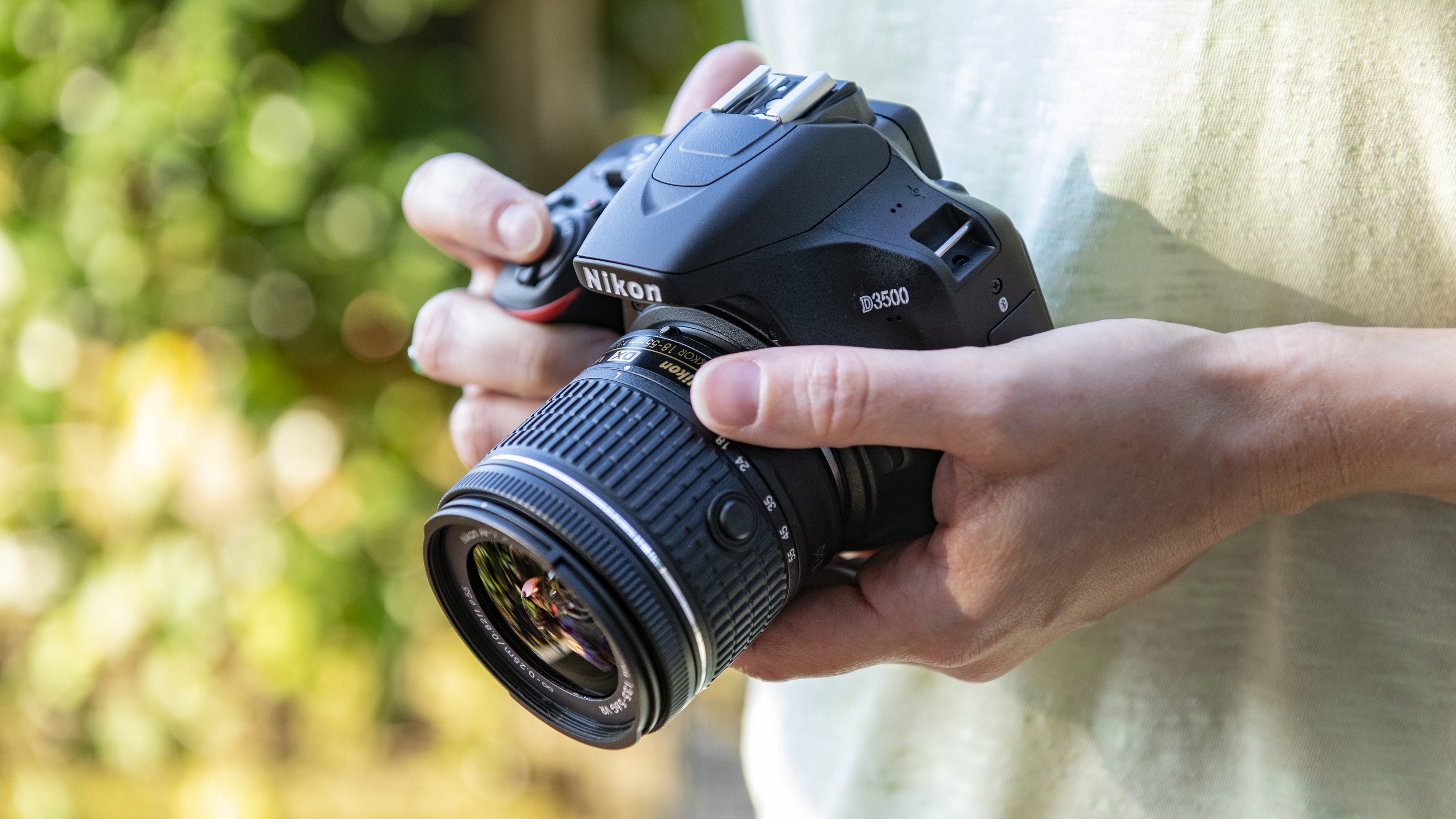
DSLR vs mirrorless vs point-and-shoot for beginners
So what are the key differences between DSLR, mirrorless and point-and-shoot cameras that beginners need to know about?
DSLRs vs mirrorless
The universal difference between DSLRs and mirrorless is viewfinder design; DSLRs have an optical viewfinder (OVF), mirrorless cameras an electronic one (EVF, though not all mirrorless cameras have a viewfinder).
DSLRs preceded mirrorless cameras and today are mostly out of production. You can still find select models new, such as the Nikon D7500 and Canon EOS Rebel T7 / EOS 2000D – check out our round up of the best beginner DSLRs.
If you want the latest camera tech, mirrorless cameras are your best bet – they are usually smaller, lighter, faster, more varied in design, have better autofocus, more features, and they shoot higher-quality video.
Should you write DSLRs off? No! They are excellent starter cameras, especially for photography, and usually have superior battery life. You're more likely to spend less on DSLR gear too, especially if you don't mind shopping secondhand
For a deep dive, check out out Mirrorless vs DSLR cameras: the 10 key differences you need to know article.
Point-and-shoot
If you want the simplest user experience, a point-and-shoot could be the right pick. Usually you simply let the camera take care of the settings, and your job is to frame and compose the picture.
A point-and-shoot could be a good starter, but you are less likely to grow your skills with such a camera. Also, there are not many low-cost point-and-shoots being made today that are worth buying. Point-and-shoots are a good pick for travels and parties. But if you want every chance to learn photography, I'd suggest a DSLR or mirrorless instead.
Still there's something to be said for using a point-and-shoot instead of a smartphone.
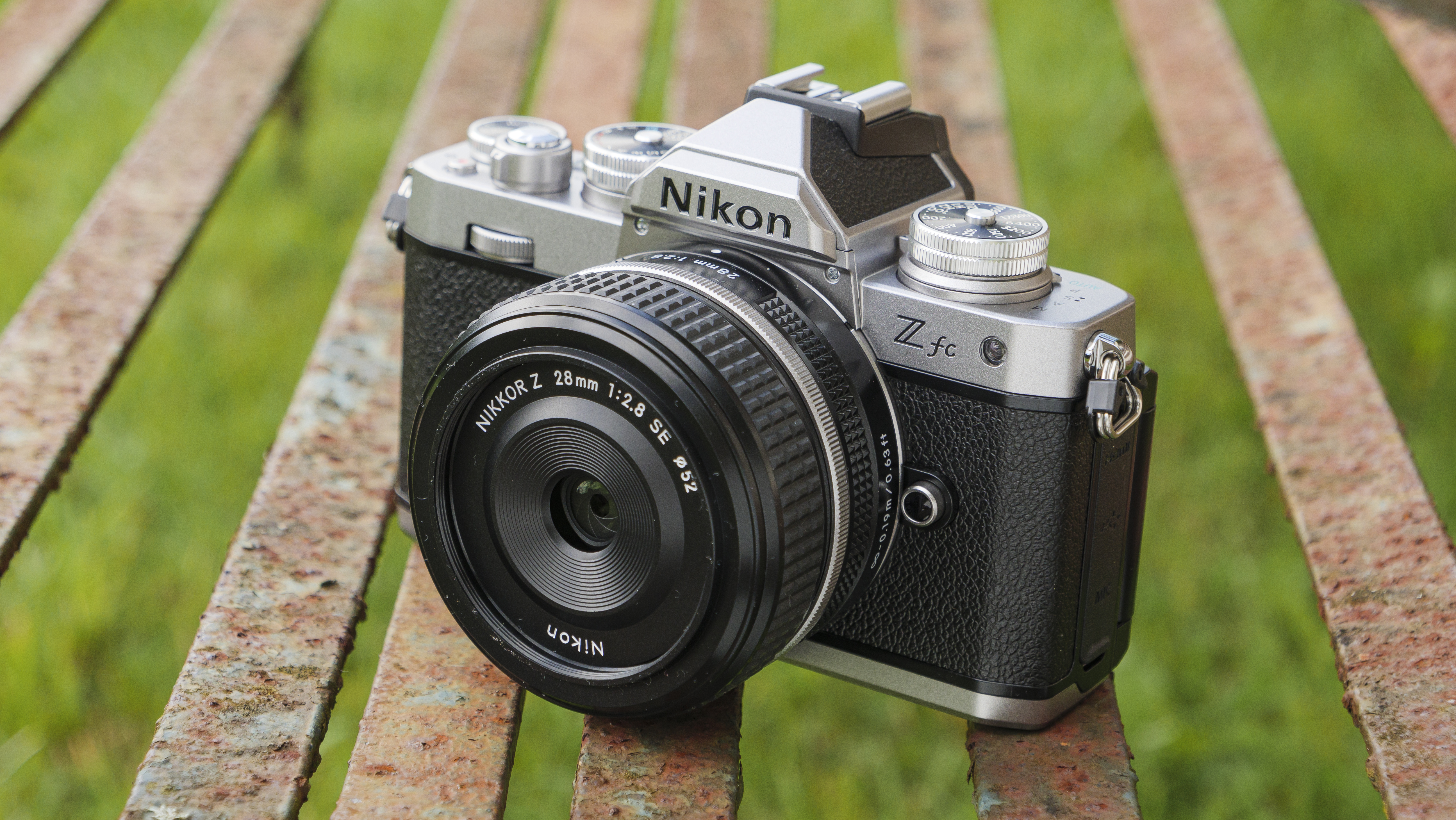
What are the best easy-to-use cameras?
Building on the questions above, most camera makers include multiple options in their camera lineup, for all budgets and skills levels.
Take Canon – it's EOS R100 is the entry-level mirrorless model. Naturally it costs the least, but it also has beginner-friendly features, such as a guided mode that takes you through the basics, such as shutter speed, aperture and ISO (I've included a photography glossary below for most of the key terms). It also has a shooting mode dial with automatic options that take care of the optimum camera settings for you, based on the scene you've selected.
When you gain confidence, you'll want a beginner camera that lets you take control when you're ready – so my advice is to opt for a camera that helps you to begin with by way of scene modes and the like, but also doesn't stifle you when you wish to spread your wings by way of manual modes.
Most beginner cameras, like the EOS R100 will have a plastic, non-weather-sealed body and no image stabilization. You'll need to spend extra for these kind of advanced features. However, they typically have the same sensor as pricier alternatives (take the EOS R100 and the pricier EOS R10), so in many respects their image quality potential is the same.
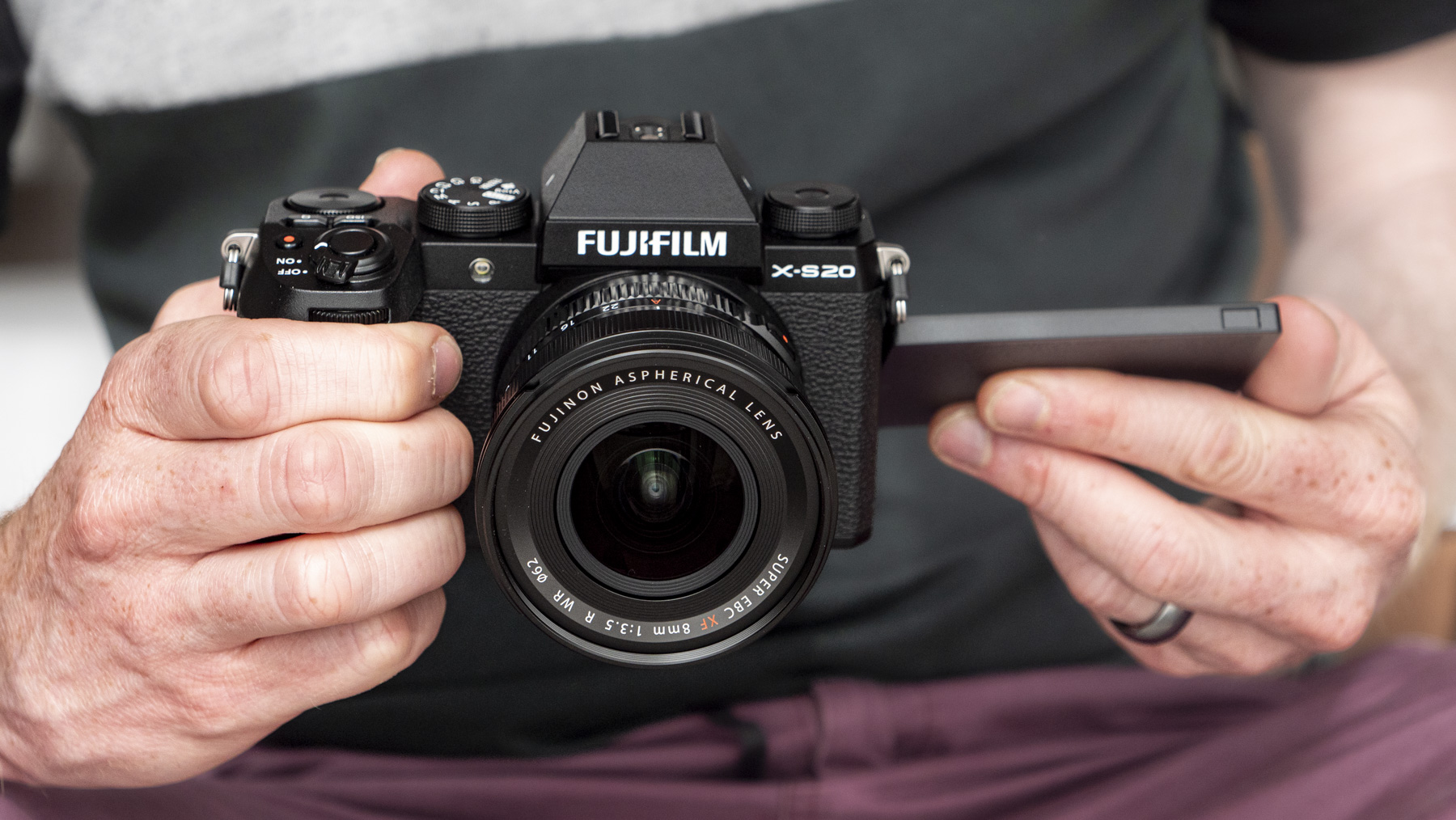
What are the top rated affordable cameras?
Affordability is subjective and, again, the best affordable cameras depend on the type of camera that you are looking for. I've put together a best cheap cameras guide that covers a range of options, from mirrorless, to instant and bridge cameras.
Given how good camera phones are, truly affordable cameras that are worth buying are rare these days. If you can spend over $500 / £400 / AU$800, the quality will jump from the options which cost less.
That being said, if you want a truly affordable camera that you'll actually use, going secondhand from trusted retailers could be your best approach. If you're in the US, check out Adorama, B&H Photo and KES, while in the UK I'd recommend London Camera Exchange and MPB among others.
How to choose the best beginner camera for you
How do I choose the best beginner camera?
Here are five things to look for when choosing a beginner camera:
1) Resolution
Referred to as “megapixels” or “MP”, resolution indicates the maximum size of images that a camera can capture. The higher the number, the higher the resolution. For this reason, a lot of camera brands use megapixels to attract customers, but resolution isn’t the whole story. 12MP is more than enough to produce a high quality print at A3 paper size.
2) Design and build
As the cliché goes, the best camera is the one you have with you – which means there’s no point in buying one that you don’t want to take out and use frequently. Perhaps you want a larger camera with physical controls. Or maybe a smaller camera with a touchscreen would make you feel more at home.
3) Sensor size
Not all sensors are created equal. Unlike megapixel counts, the larger the sensor, the better the image quality – generally speaking. Smaller sensors aren’t as good at gathering light, which means more noise (image grain) will show up in images captured in low-light. Larger sensors typically produce more attractive tones and depth. But they also come at a cost; both financial, and in terms of the camera system's size. The narrower angle of view of smaller sensors can also be beneficial if you're shooting distant subjects, as the diagram above shows.
4) Connectivity
All of the best beginner cameras offer some way to connect to your smart device or favorite social media apps. The cameras in this list all benefit from Wi-Fi, Bluetooth or NFC connectivity, or a combination of all three.
5) Lenses
A decent quality lens is critical for capturing good images. All of the best beginner cameras come with a kit or a fixed lens, which offer a standard focal length (zoom range). Interchangeable lens cameras come with kit lenses, which can be changed to suit your needs. Fixed lens cameras appeal to people who don’t want to carry extra lenses.
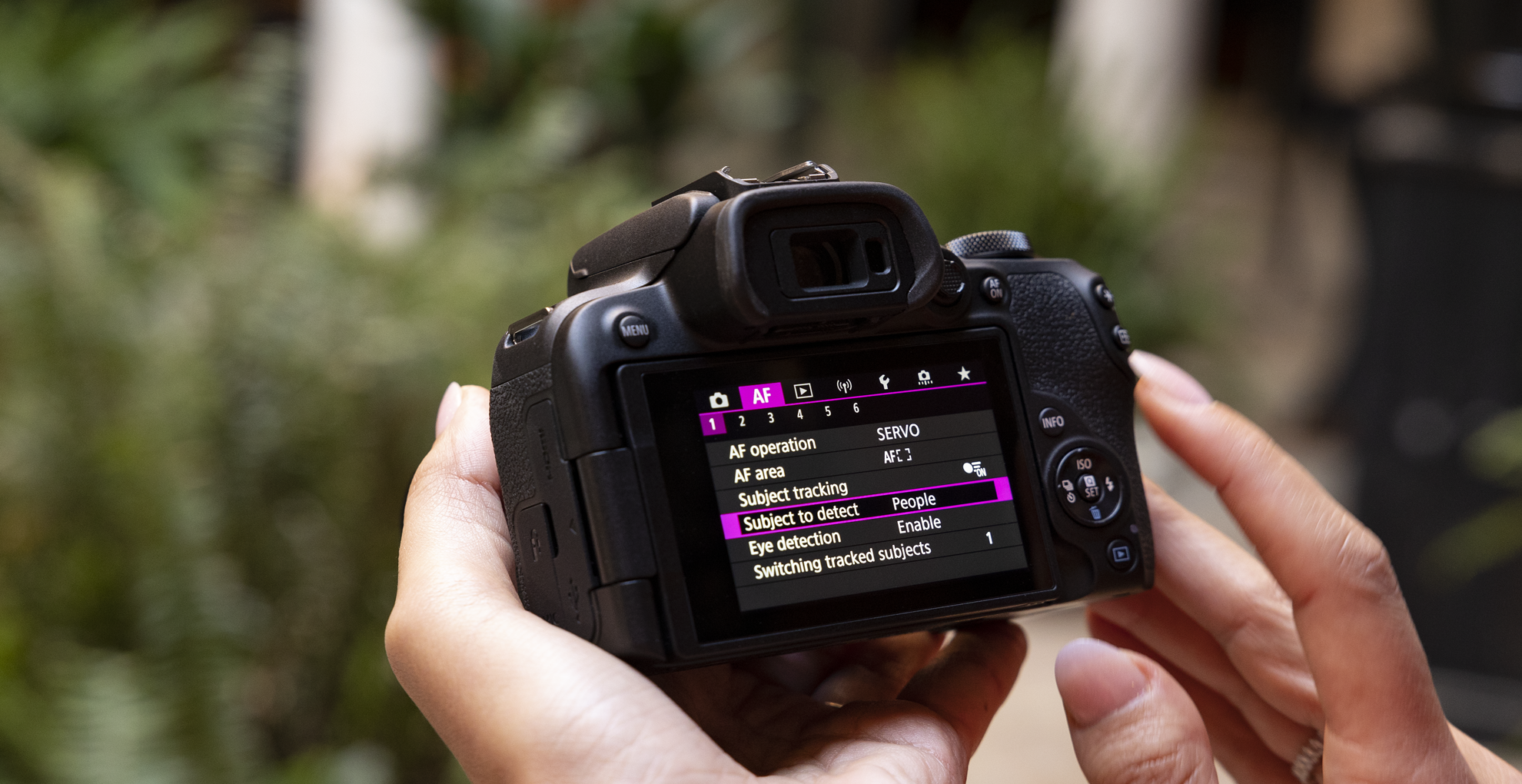
Photography glossary
When you get into photography, you’ll quickly encounter a number of terms and acronyms that might be unfamiliar. To help you navigate this technical language, we’ve briefly explained some of the more important terminology below.
DSLR: Digital Single-Lens Reflex, a type of digital camera that uses a mirror mechanism to reflect light from the camera's lens on to a digital sensor. Very few are still in production now, but they are an excellent option for beginners to learn the photography ropes, and secondhand bargains are easily found.
Mirrorless camera: A camera that doesn't use a mirror. Light passes directly through the lens to the sensor, which displays a digital preview of the image on the camera's screen or electronic viewfinder (EVF). This camera type is where the latest innovations can be found.
Point-and-shoot: Compact cameras designed for portability and ease of use. They typically feature a built-in lens and automatic settings, making them ideal for casual photographers or beginners looking for maximum simplicity.
Megapixel (MP): A unit of measurement for the resolution of digital images, representing one million pixels. A higher megapixel count generally results in a sharper, more detailed image.
Sensor size: The dimensions of a sensor, typically measured in millimeters. Larger sensors generally result in better image quality, including improved low-light performance, dynamic range and depth of field control. Common types, going from smallest to biggest, are 1-inch, Micro Four Thirds, APS-C, full-frame, medium-format.
ISO: International Standards Organization, a unit of measurement for a camera sensor's sensitivity to light. Higher ISO settings allow for better performance in low-light conditions, but can introduce grain in the image.
Aperture: The opening in a camera lens through which light passes. Aperture size is measured in f-stops, with lower f numbers indicating larger apertures, allowing more light to enter the camera.
Shutter speed: The length of time a camera's shutter remains open to expose the sensor to light. Faster shutter speeds freeze motion, while slower speeds create motion blur.
Lens mount: On cameras that support interchangeable lenses, the mount is where the lens attaches to the body. Different manufacturers have their own systems. Most accept third party lenses, some more than others. For example, Sony's E-mount is completely open, whereas Canon's RF-mount is more closed.
Zoom range: The range of focal lengths covered by a lens, usually expressed in millimeters (mm). Focal length determines the magnification of the lens. For example, a lens with a range of 24-70mm can zoom from a wide-angle view (24mm) through a ‘standard’ view (around 50mm) to a slightly zoomed view (70mm).
Image stabilization (IS): A feature that helps reduce the blurring caused by camera shake when shooting handheld. It can be implemented either in the lens (OIS) or within the camera body itself (IBIS).
Autofocus (AF): A feature that automatically adjusts the camera's focus to ensure that the subject appears sharp in the final image.
RAW: A file format that retains more image information from the sensor and offers greater editing flexibility compared to JPEG files.
JPEG: A compressed image file format commonly used in digital photography. JPEG files are smaller in size, but offer less flexibility for editing than RAW files.
Viewfinder: A viewing window that gives the photographer a preview of a scene before capturing the image. It can be optical (OVF) or electronic (EVF), depending on the camera type.
Memory card: A card used to store image files captured by a camera. Common formats include micro SD and SD (Secure Digital), and CFexpress (CompactFlash).
Hotshoe: A mounting point on the top of a camera used for attaching external accessories such as flash units, microphones or external viewfinders.
Sign up for breaking news, reviews, opinion, top tech deals, and more.

Tim is the Cameras editor at TechRadar. He has enjoyed more than 15 years in the photo video industry with most of those in the world of tech journalism. During his time as Deputy Technical Editor with Amateur Photographer, as a freelancer and consequently editor at Tech Radar, Tim has developed a deeply technical knowledge and practical experience with cameras, educating others through news, reviews and features. He’s also worked in video production for Studio 44 with clients including Canon, and volunteers his spare time to consult a non-profit, diverse stories team based in Nairobi. Tim is curious, a keen creative, avid footballer and runner, and moderate flat white drinker who has lived in Kenya and believes we have much to enjoy and learn from each other.
- Mark WilsonSenior news editor
- Chris Rowlands